Alfa female Annika Roupé on asset-rich business

Getting together Why collaboration is on the up

Alfa female Annika Roupé on asset-rich business

Getting together Why collaboration is on the up
Why there's still room for optimism in moving
Kiwi fruit Fresh opportunity in New Zealand

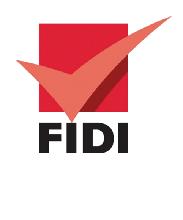
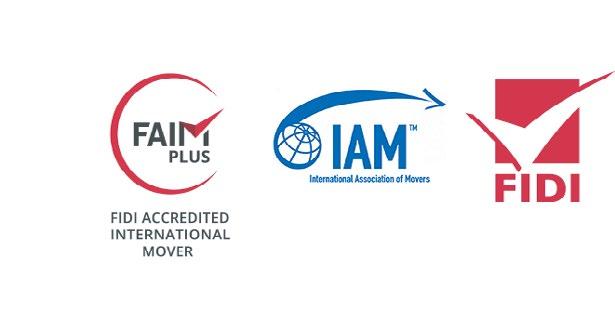



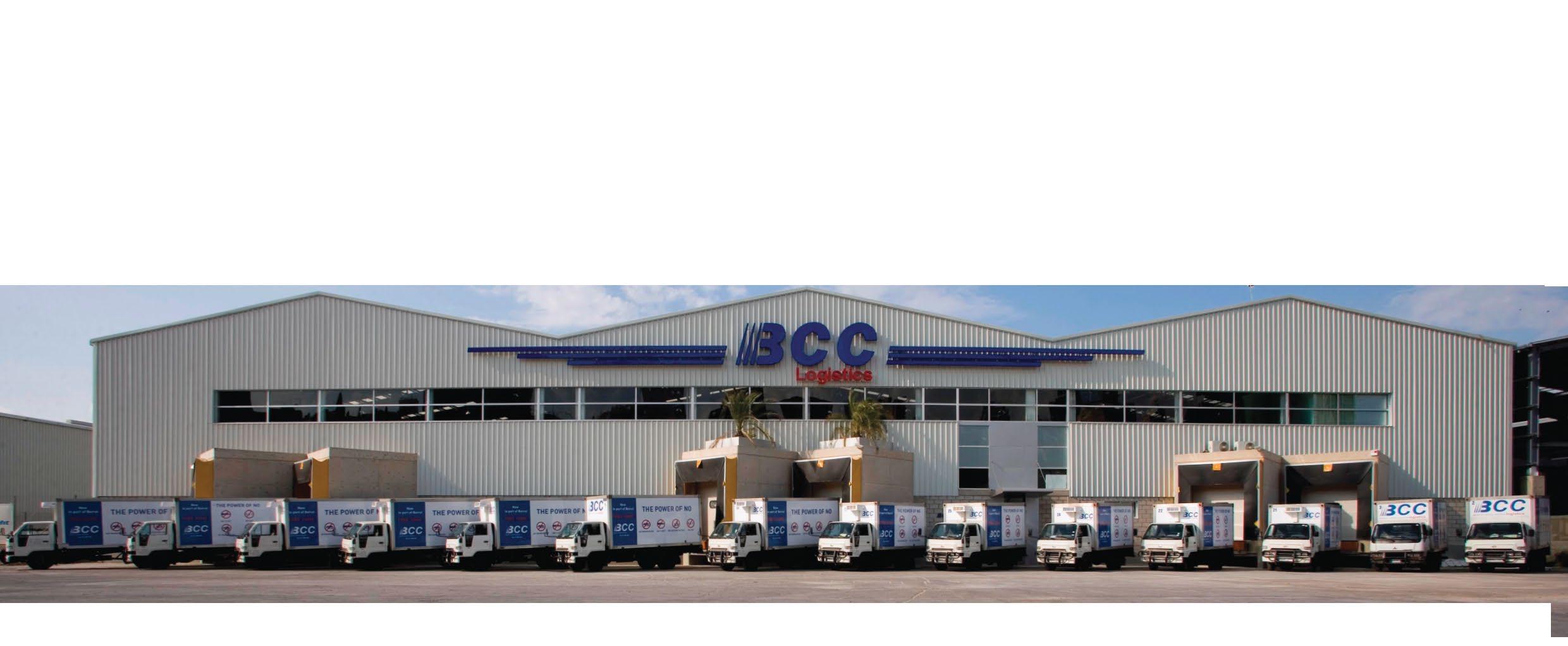

We Solve the Puzzle of Global Moving, One Piece at a Time.

From the UK to the World, Let Eurogroup Handle your Moves. At Eurogroup, we’ve perfected the art of problem-solving in the moving industry. With decades of experience and FIDI accreditation, we’re your trusted partner for seamless origin and destination services in the UK. Master UK removals with Eurogroup. Partner with us. www.the-eurogroup.com or call+ 44 (0)1638 515 335
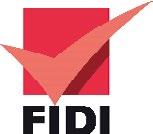
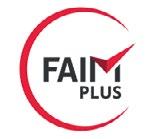
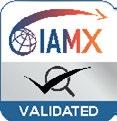


FIDI President Cédric Castro shows how latest initiatives – the FIDI Netting service and DSP certification – have been developed to help Affiliates strengthen their businesses by giving them greater financial security and independent quality recognition as membership service areas diversify
FIDI’s mission is to strengthen its Affiliates’ position as the world’s leading moving and relocation businesses, supporting them with industry-leading initiatives that highlight and boost the quality of their operations – and provide tangible benefits to their business.
The recently launched FIDI Netting service and FIDI-DSP Certification are great examples of this work, offering our membership, respectively, enhanced financial efficiency and security, and independent recognition of firms’ performance in a growing service segment.
As FIDI Focus went to press, almost half of FIDI Affiliates – including several of the big bookers –are now signed-up participants of FIDI Netting, enabling them to offset sales and purchase invoices against each other into one consolidated payment each month. After just a few months, I am delighted to see so many companies on board, including some of the industry’s largest bookers, and I am optimistic that we are on track to sign at least 60 per cent of our membership in the near future.
Netting reduces administrative burden, strengthens collaboration within FIDI, and saves every user of the system a significant amount of money. As they are trading within a secured closed loop using verified payment details, it also increases the security of the financial transactions taking place between Affiliates. As the number of users grows, so too does the benefit of the whole system, making the FIDI network more resilient, financially efficient, and profitable for the users.
Meanwhile, FIDI’s DSP certification was launched last year, which is open to the increasing number of movers offering DSP
services and pure DSP companies.
The aim is to provide independent validation of the quality of the services these companies are providing and give assurance and credibility in a fastevolving part of the market, and to support the industry as many businesses seek to broaden their offer into profitable new areas.
Difficult trading conditions last year suppressed initial demand somewhat, so FIDI is putting energy into marketing the new certification to target viable DSP prospects within and outside our network. There will be introductory rates for companies signing up to the programme and we’ll be promoting it actively, with a focus on credibility and recognition in the long term –creating a thriving new category within FIDI.
We’ll be presenting our FIDI-DSP Certification plans at FIDI’s next Delegates’ Meeting.
With this issue of FIDI Focus dedicated to celebrating the positive developments we have seen in international mobility – in the face of an extremely challenging operating environment –it’s certainly the right time to be highlighting FIDI Netting and the FIDI-DSP Certification. Both have been created to make our Affiliates’ businesses stronger and, if you haven’t already signed up to them, I encourage to you to do so at the earliest opportunity.
CÉDRIC CASTRO, FIDI President
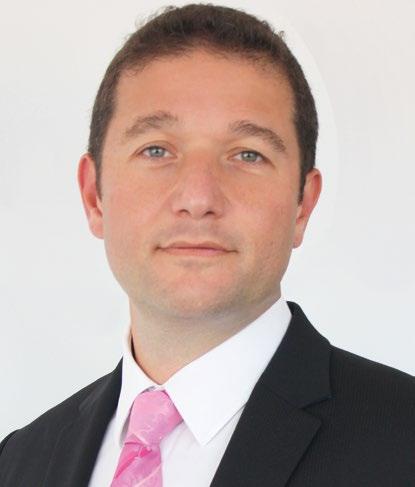
www.linkedin.
com/in/cédriccastro-43489133
Email:
cedric.castro@ mobilitas.org

10-16 NEWS
Including: global sustainability trends; military moving disruption; ESG RFP guidelines; US travel bans; Middle East disruption
86-88 OBITUARIES
Bryan Bennett, Michael Scott, Maxime Wilson, John Planes
18-19 STEVE JORDAN
A conversation with the retiring editor of The Mover
24-28 INDUSTRY POSITIVES
Why the moving industry can be optimistic about its future
30-36 CYBER SECURITY
How to combat the rising threat of online attacks
62-64 THE INTERVIEW
Head of Alfa Mobility Annika Roupé explains why she believes future moving is about assets
78 TECHNOLOGY
How a moving partnership inspired the development of virtual survey platform Yembo
44-51 NEW ZEALAND
Affiliates adapt to outbound movements post-COVID
38-39 FIDI TRAINING
Getting to grips with phishing
42-43 FIDI 39 CLUB
Sonja Tuomela on a holistic approach to combating digital threats
52 FAIM 2025
Sofie Vertenten explains the updated and stricter requirements in the new FAIM 3.4 Standard
54-55 FIDI BOARD
What you gain from standing for FIDI governance – and how to do it
56-57 FIDI TRAINING
Details of a free webinar on Google SEO and benefits for FIDI Affiliates
59-61 FIDI ASSOCIATIONS
Why collaboration between associations is on the up and Ebru

Demirel explains why she has returned to governance
67 FIDI ACADEMY
Testimonials on the enduring power of FIDI’s training school for developing businesses
69-71 MEMBERSHIP MEASUREMENT
Results from the latest annual FIDI survey
72-74 FIDI CONFERENCE
Event sponsors on the benefits of getting involved
80 JUST MOVE
Wayne Bracken on the company's client-first principles
82 TRANS DRAGON
Scott Willis on expansion strategy
20 AT A GLANCE
Statistics on New Zealand’s movers
84 PEOPLE MOVES
Including: Adams departs Gosselin; Pereira promoted to Nuss GM; Fisher becomes Santa Fe head
90 LIGHTER SIDE
Including: Globalink bear rescue; John Mason and Bournes aid UK tenants; Pickfords’ turtle art project



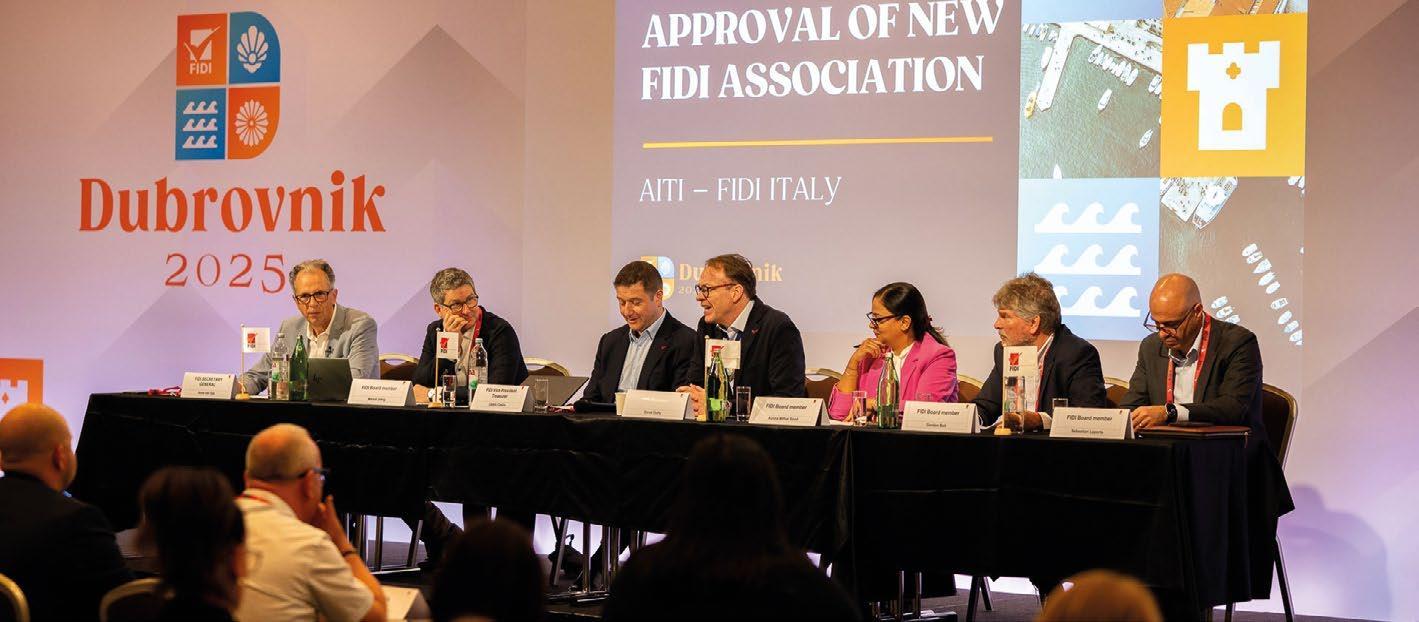

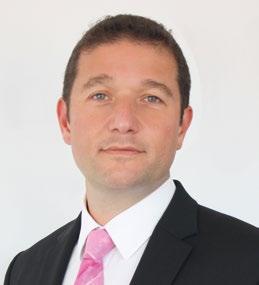
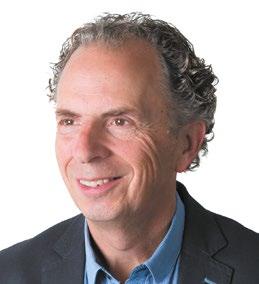


Netting and the DSP certification highlight FIDI's forward looking approach, says FIDI President Cédric Castro Page 5
Jesse van Sas urges movers to shed the underdog mindset and be proud of their core strengths Page 22
FIDI 39 Club PresidentJuan Guillermo Diaz on the crises that have shaped today’s young leaders Page 41
Pablo Regner on boosting your company’s online presence and thriving beyond traditional SEO Page 77
EDITORIAL
Editor: Dominic Weaver email: editor@fidifocus.org telephone: +44 7305 911 889 web: fidifocus.org
Advertising Sales Manager: Chris Dixon email: sales@fidifocus.org telephone: +44 1223 378 012
Published on behalf of FIDI Global Alliance by: CPL
1 Cambridge Technopark Cambridge CB5 8PB United Kingdom telephone: +44 1223 378000 web: cplone.co.uk
FIDI GLOBAL ALLIANCE
President: Cédric Castro email: cedric.castro@ mobilitas.org
General Manager: Jesse van Sas email: jesse.vansas@fidi.org telephone: +32 2 421 4751
Communications Manager: Magali Horbert email: magali.horbert@fidi.org telephone: +32 2 426 5160
FIDI Global Alliance (FIDI




With steep price hikes, staff shortages, supply chain difficulties and political upheaval among the troubles that businesses have endured since the start of the pandemic in 2020, there are plenty of reasons to be gloomy about the future of global mobility. After more than five years, this kind of thinking becomes entrenched, too.
However, in this issue of FIDI Focus – inspired by a handful of comments in this year’s State of the Industry report and conversations we had during the Dubrovnik conference – we are looking at the opposite: what is going right for the moving and relocation sector.
And there is a lot to talk about. Over the past two years, we have been hearing a growing number of positive reports about the health of businesses. These are not down to blind optimism and are not the usual clichés about tough times making firms leaner and stronger, there are clear patterns emerging. Where companies are taking time to properly understand the changes afoot in the market, they can see new opportunities and are adapting their approach to take them.
Businesses are evolving in a multitude of ways,
developing new ‘softer’ and premium services, working on their internal culture, investing in technology, and forming strategic partnerships to give diversity of service offering and a wider international reach. The resurgent notion that traditional movers’ assets of trucks, buildings, and trained staff should be at the heart of a mobility business appears to have strengthened, too.
People are in the spotlight, with thinkers, innovators, and doers, those who care deeply about the history and future of this sector leading the way with new ways of doing things. Young people, of course, feature heavily, with one contributor suggesting that smart businesses should leave the decision-making to those between the ages of 30 and 60 – what do you think?
The results of the new approach are tangible, with varied Affiliates reporting they are bucking the downward trend, not always in volume terms but certainly with their bottom line. Agility is high up the list of must-have attributes for this success. With some reporting a drop in traditional jobs of 30 or 40 per cent last year, these stories of innovation and achievement are fantastic news. Let’s celebrate them.
DOMINIC WEAVER, Editor, FIDI Focus
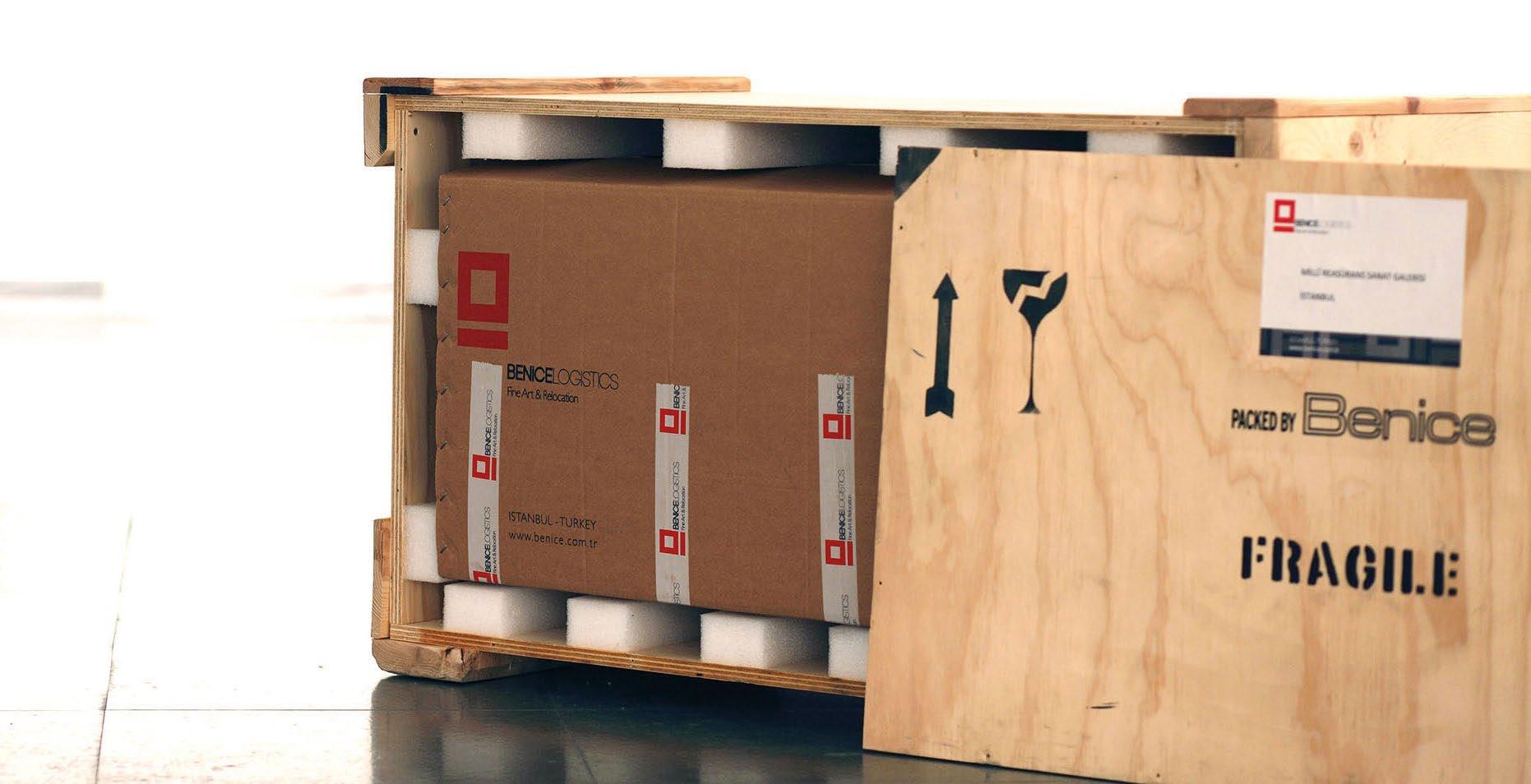
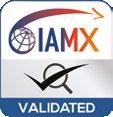

A new report on the latest trends in corporate sustainability and their implications for the global mobility industry has been published by FIDI.
The report – Corporate Sustainability Legislation:
A Global Snapshot – details how, despite political pushback in some regions, global sustainability obligations are still
increasing. Europe leads the way, with CSRD and CSDDD regulations on course to apply to around 50,000 companies by 2027; some 100,000 firms are likely to be impacted by reporting requirements by 2030.
Countries such as Japan, India, China, Brazil, South Africa, and the Gulf states, are moving towards mandatory reporting and
The Competition Authority of Kenya (CAK) has announced an investigation into potential anti-competitive activity in the shipping and logistics industry.
According to online shipping news platform Splash 247, the inquiry follows complaints made by the Kenya Transporters Association (KTA) and Kenya International Freight and Warehousing Association (KIFWA). They claim that multinational firms control more than 70 per cent of the logistics business through exclusive deals or having vertically integrated operations – even though 90 per cent of the country’s trucking sector is owned by Kenyan companies.
The organisations have raised concerns about closed contracting, uniform pricing, delays in documentation, preferential treatment, and lading arrangements that bypass independent service providers.
In March this year, the KTA contacted Kenya’s National Assembly’s Departmental Committee on Trade, alleging that shippers Maersk, CMA CGM, MSC, and PIL control logistics in the country, and marginalised local companies.
CAK is scheduled to complete its investigation on 30 September 2025.
aligning with standards. The report says the global mobility sector can expect increasing pressure from clients to report on their Scope 3 emissions – those not owned by a company but that it impacts in its supply chain. While the initial focus has been on large businesses, smaller companies must now ensure they are properly prepared.

The report is available as a free download from the FIDI.org website.
FIDI has launched the updated 2025 version of the FIDI x Worldfavor Carbon Calculator, which supports Affiliates in measuring and reporting their environmental impact.
The revised version introduces several changes, including new Scope 3 categories such as packing materials, homeworking, and purchased IT equipment.
There is also a new reporting template export function, which allows Affiliates to download a customisable report containing their emissions data and a methodological explanation.
In the coming weeks, FIDI will invite Affiliates to voluntarily calculate and
submit their 2024 emissions. The purpose is to establish 2024 as a baseline year for future reporting. While this step is not mandatory, it is strongly encouraged, and Affiliates are expected to be able to provide at least their Scope 1 and Scope 2 emissions, as well as selected Scope 3 categories.
To assist members, FIDI has made a range of resources available on the Sustainability page on FIDINET, including guidance materials, FAQs, and templates. Additional support will also be provided by the FIDI team.
For further information, contact: sustainability@fidi.org
Military movers faced challenges to cope with the number of moves scheduled, following the US Department of Defense (DoD) announcement on 18 June that it was cancelling its contract with HomeSafe Alliance (HSA).
In an interview with Air Force Times in July, IAM’s Vice President of Government and Military Affairs, Dan Bradley, said that IAM supported the DoD’s action on the Global Household Goods Contract (GHC), but said movers were working against the clock to handle the volume of moves outstanding.
‘Our members are working feverishly to cover as many shipments as they can under the current constraints,’ said Bradley. Cancelling the GHC, the US Department of Defense cited concerns about provider HSA’s ability to deliver services – which is believed to have been worth up to US$20 billion over its maximum potential nineyear duration. The contract had been beset by issues, including legal challenges and delays. Domestic moves under the agreement were reported to have begun in nine states in September 2024.


FIDI Affiliates Orbit International Moving, Canada, and Sonigo, Israel, joined forces to move an immersive installation that commemorates the victims of the Hamas attack on the Nova Music Festival in Israel on 7 October 2023.
The Nova Music Festival Exhibition: Oct 7 Where the Moment Music Stood Still shares the stories of survivors and families of the victims, aiming to foster reflection, education, and allyship.
Flippers International has announced it has been selected to manage international relocations for Spain’s Ministry of Defence and the Civil Guard personnel over the next few years, following a lengthy bidding process.
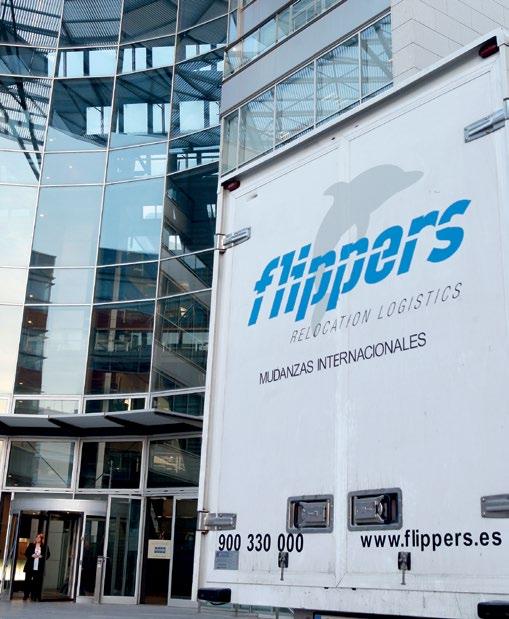
‘The collaboration between Flippers International and the Spanish ministry will facilitate the moving process for the institution’s personnel, said the company’s Gustavo Santos.
‘It will consolidate Flippers International´s reputation as a trusted partner in international relocations for the Spanish ministry.’
It combines art, education and community engagement to address the rise in hate and antisemitism, transporting visitors to the Nova Music Festival, a celebration of peace and love, before it was attacked.
After its stop in Toronto, Orbit’s team stepped in to dismantle and carefully pack the exhibition and artwork displays in six 40ft containers, ready for its onward journey to Germany. This involved building custom crates for fragile items, organising customs requirements and shipping, and complex coordination of multiple containers, cranes, special equipment, large crews and team supervisors.
‘This move was a great example of how trusted FIDI partners work together across countries,’ said Adi Shaked of Orbit. ‘Sonigo and Orbit coordinated at every step, keeping high standards and clear communication throughout.’
David Sonigo from Sonigo said the partnership ‘shows how strong global partnerships help us deliver great service, wherever the job takes us’.
Spanish Affiliate SIT Spain has moved to new offices in Madrid. It says the move will help boost the company’s local, national, and international operations, which include moving, relocation, and immigration services, air transport and handling, fine art transport, and storage.
According to the company – a family-owned business spanning three generations and handling around 3,000 moves a year – the new offices ‘have been designed to foster collaboration, innovation, and the wellbeing of everyone who makes SIT Spain possible – and to continue delivering the best in each of our areas’.
The new 22,500m² premises includes storage capacity of 30,000m³.
‘The inauguration of this new Madrid headquarters represents a major step forward for our 240 employees and our fleet of more than 75 vehicles,’ said the company. It has released a video showcasing the new facilities.
Get professional marine insurance solutions from experts with over 100 years combined experience. With fully automated online solutions for you, competitive rates from A rated insurers, and peace of mind claims handling for your clients.

Talent mobility around the world remained steady last year, according to the latest Worldwide Immigration Trends Report (WITR) 2025 by Fragomen.
The annual report by the immigration lawyers’ firm shows no significant change in immigration restrictiveness, giving a Talent Mobility Index score of 42 out of 100, despite an increase of eight per cent between 2020 and 2024 and the high number of elections around the globe during the past year.
Average scores for major regions –including Africa, the Americas and the
Asia-Pacific – were largely unchanged, while more than 40 countries were highlighted as becoming more open to the entry of foreign talent as the result of easier online and shorter application processing.
Meanwhile, more than 50 countries were identified as having more restrictive entry regimes, because of increasing application fees, longer government processing times and new labour market testing requirements.
You can download a copy of the report for free from Fragomen’s website.
The US remains the world’s biggest aviation market, according to the latest figures from the International Air Transport Association (IATA).
Statistics shows there were 876 million passengers during 2024, an increase of 5.2 per cent year on year. China is the world’s secondlargest passenger market, with growth of 18.7 per cent compared with 2023.
The report also revealed that the Asia Pacific region still leads the world for busiest ‘airport pairs’. The JejuSeoul (CJU-GMP) route in South Korea is the most popular globally, with 13.2 million passengers flying between the two airports in 2024.
FIDI Affiliate Security International Moving (SIM) has managed the relocation for a new passenger terminal at Jorge Chávez International Airport in Peru, which opened on 1 June. The company was tasked with moving the entire operational ecosystem from the old terminal to the new facility without disrupting service for passengers using the airport.
Selected through a public tender, SIM worked closely with the ORAT (Operational Readiness and Airport Transfer) team of Lima Airport Partners (LAP) to execute the transfer. It coordinated with more than 40 stakeholders, including airlines, government agencies, logistics providers, and suppliers.
In total, nearly 2,000 cubic metres of furniture, IT systems, archives and operational equipment were transferred over 34 hours of continuous work. Strict security and safety protocols were observed, with all personnel trained, vetted, and fully equipped.
SIM general manager Yvonne Dubreuil de Martínez said: ‘This was a critical operation in a highly demanding environment. Its success lay not only in technical capability but also in the strategic integration between the different stakeholders, the flexibility of the work model, and the rigorous approach


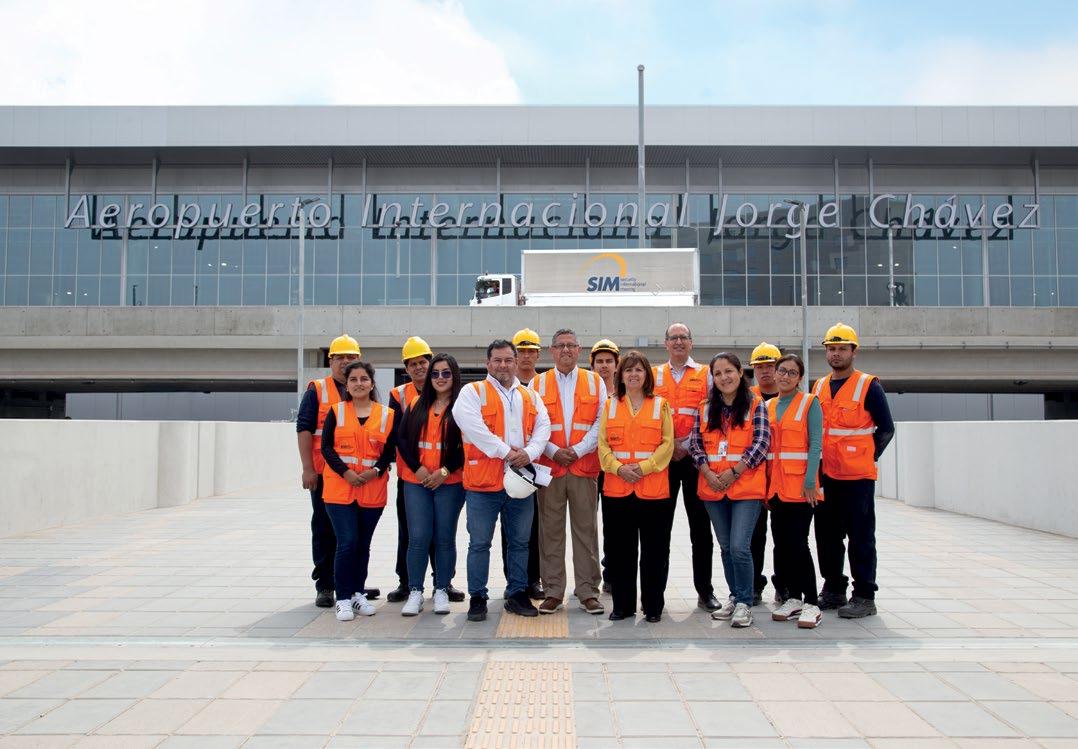
of the execution team. For SIM, it meant the opportunity to demonstrate that FIDI members in Latin America can lead world-class projects with precision, regulatory compliance, and strategic vision.’
Contact us or scan the QR code today, to learn how we can help you unlock the full
and keep your clients protected with ease.
From January 2026, non-Saudis will be able – legally – to own property across most of Saudi Arabia, including Mecca and Medina. The significant reform is part of the country’s Vision 2030 initiative to diversify the economy and attract people and investment and is expected to include opportunities in cities including Riyadh and Jeddah.
The European Union DirectorateGeneral for Migration and Home Affairs says the new European Travel Information and Authorisation System (ETIAS) will come into force in the fourth quarter of next year. The registration requirement will apply to travellers who have a passport from a country not needing a visa to enter a Schengen country.
Asian Tigers Indonesia has advised its supply chain of new customs regulations affecting household goods shipments that will be introduced by the Indonesian Ministry of Finance.
In a letter to agents and partners, the company said the new rules (PMK no.25/2025), which came into force on 27 June, require every box to be labelled, with information including a description of the items, their condition, quantity and estimated value.
They also require all Indonesian citizens returning to the country to register through an online portal before leaving their country of residence, while foreign nationals wishing to import household goods into the country must hold a valid work visa, as well as an IMTA work permit.
FIDI has changed email addresses. The original contact, fidi@fidi.org, is no longer in use and has been replaced with contact@fidi.org
The Coalition for Associations in Global Mobility, founded by FIDI and five sister associations, and formerly known as the Coalition for Greener Mobility, has released its vision for a more consistent approach to environmental, social and governance (ESG) in moving and relocation industry RFPs.
The Bridging the Gap report, published in partnership with sustainability consultancy JustOne, gives guidelines for global mobility firms to ‘embed sustainability into all aspects of business to future-proof the industry and ensure sustainability goals are met’.
Based on nearly 400 real-world sustainability-related RFP questions, the report offers analysis and solutions that aim to give clarity to relocation service providers and show them where they can improve.
Maura Carey, ESG Programme Lead at Dwellworks LLC, said: ‘Bridging the Gap provides stakeholders across our mobility ecosystem with clear, grounded guidelines on how to frame, measure and consistently expand sustainability performance. A set of core standards enables us to be more responsive and specific to clients, while giving our downstream partners clarity about performance expectations and what is required to earn more opportunity.’
The research highlights how, during 2025, there has been a shift from ESG as a reporting framework to sustainability as a core business strategy. As financial risks and opportunities linked to environmental and social issues become clearer, companies are moving beyond brand reputation to focus on value creation, resilience and long-term success, despite political pushback in some regions.
Dave Carlos, Managing Director at JustOne, said: ‘Social and environmental issues are business issues, and the companies that embed sustainability, rather than bolt it on, are the ones best positioned for many benefits such as long-term growth, resilience and talent attraction – regardless of political or economic shifts.’
The report offers tools such as simplified RFP questions, examples of good and best practice, and guidance on how to embed sustainability without overburdening teams.
Key insights from the report include:
l Suppliers face inconsistent and burdensome RFP requests: many ESGrelated questions overlap, are poorly defined, or fail to reflect supplier size, scope of activity and context.
l A growing desire for impact: many businesses want to do more, but need better guidance, clarity, and consistency in the ESG questions they receive.
l Corporate demand is growing – but varies widely: some clients are well aligned with sustainability goals and provide supplier support; others include ESG questions without follow-up or clarity on how responses are used.
l Supplier readiness is mixed: some suppliers have mature strategies; others are just starting out and struggle with limited time, skills or resources.
l The industry needs standardisation and support: a harmonised approach to sustainability in RFPs will benefit everyone in the supply chain.
The report also includes:
l Examples of minimum, best and exemplar practice across ESG themes.
l Engagement and insights from 21 companies around the world.
l Predictions for the future of mobility and sustainability –including the rise of value-based sustainability strategies and the risks of ESG backtracking.
According to the coalition report, there is growing industry consensus that tackling sustainability challenges is now about collective transformation, rather than the performance of any individual company.
The report can be downloaded at globalmobilitycoalition.org

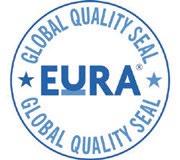
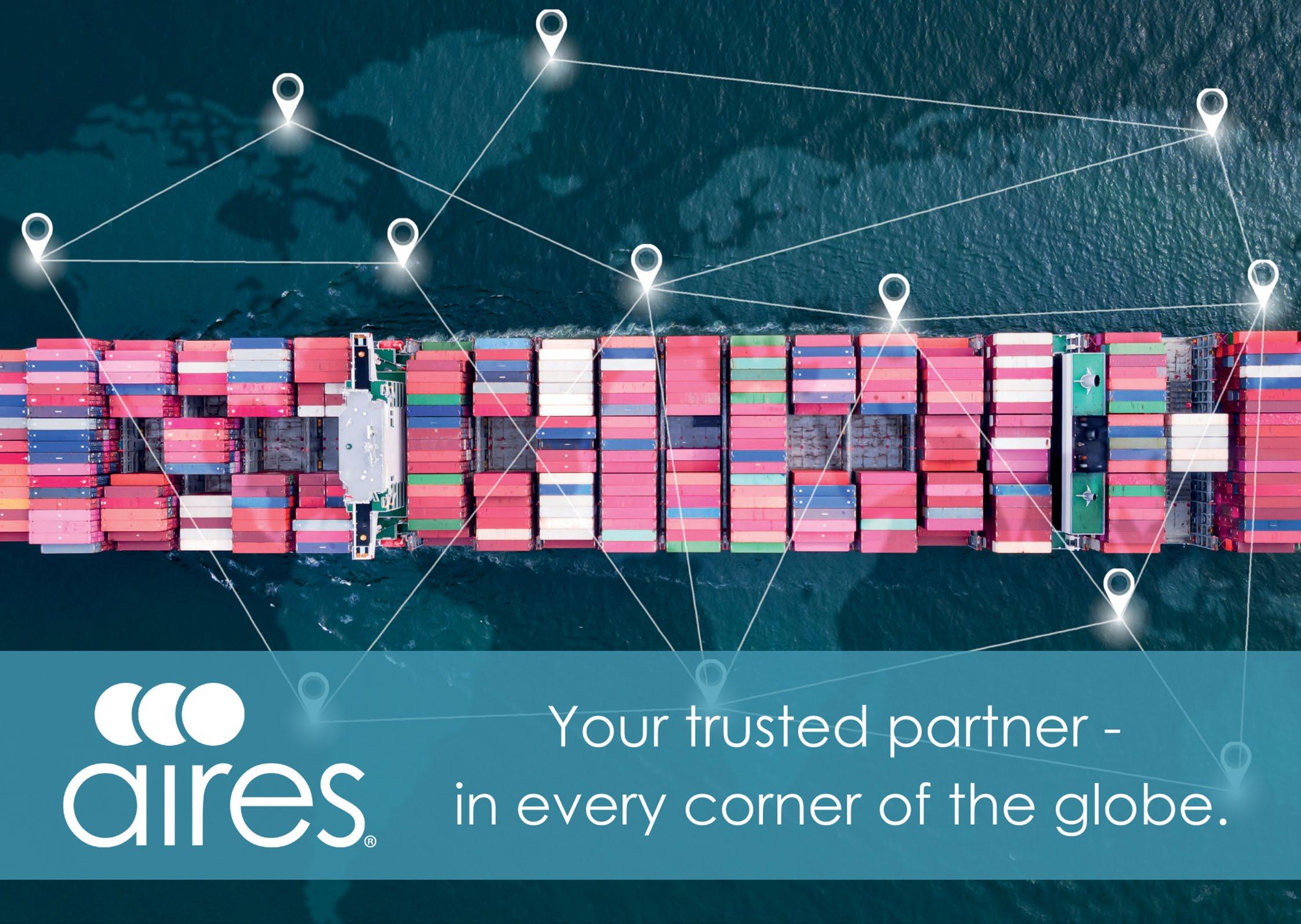
An
overview of FIDI’s support for Affiliates’ new reporting obligations, by
Magali Horbert, FIDI Sustainability
Strategic Communications Manager

Expectations for transparent sustainability reporting are increasing globally. As
FIDI’s 2025 Corporate Sustainability Legislation - world snapshot report shows, major economies are strengthening rules that require firms to disclose their environmental and social impacts. Meanwhile, multinational clients and investors are demanding reliable data to assess supplier practices, regardless of local requirements.
These global developments link to changes in FIDI’s own quality programme. The new FAIM Standard, which will be rolled out in early 2026, includes a strengthened pillar on corporate sustainability reporting (see p52 of the new Standard). This builds on the same logic that saw FAIM 3.2 introduce data-privacy requirements in 2016, ahead of Europe’s General Data Protection Regulation (GDPR) legislation, which was rolled out two years later.
The aim is to ensure FIDI Affiliates are ready for future compliance needs and positioned as top-tier partners for clients demanding transparency.
In the meantime, FIDI will begin encouraging Affiliates to report on their 2024 carbon emissions using the enhanced FIDI x Worldfavor Carbon Measurement Platform. This initiative will focus on Scope 1 and 2 emissions (which cover direct emissions from owned or controlled sources and indirect emissions from purchased energy), as well as straightforward Scope 3 emissions, such as business travel.
Though this initial reporting is not mandatory in FAIM, it aims to help FIDI members build their data-collection capabilities gradually and integrate sustainability into their operations in a practical, manageable way.
The recent report Bridging the Gap by sustainability experts JustOne, underlines that companies that are not prepared to deliver clear, comparable data risk losing opportunities as these expectations become embedded in procurement processes.
JustOne is a UK-based sustainability expert that has worked with the Coalition for Greener Mobility to develop the RFP report Bridging the Gap. Based on their in-depth knowledge of the relocation industry, JustOne has developed an exclusive Sustainability Starter Kit for FIDI and EuRA members. Available
FIDI has developed extensive tools to help Affiliates address the challenges:
l The Sustainability Resource Page on FIDINET includes a range of educational material, tools and guidelines.
l The upgraded FIDI x Worldfavor Carbon Calculator, rolled out this summer, now includes updated emission factors and more activity groups, notably packaging material generally used in HHG moving. The platform now also allows users to produce client-ready report branded with your company logo.
These resources are designed to help FIDI Affiliates build structured, credible approaches that meet compliance needs and client expectations.
If your company is at an early stage, it is essential to take a strategic approach. Jumping straight into carbon measurement can be counterproductive without first setting priorities. Start by identifying what sustainability issues matter most to your company and stakeholders (eg, via a ‘materiality assessment’). From there, build policies and assign internal responsibilities, then progress to formal reporting.
This message was central to FIDI’s recent Sustainability Reporting 101 workshop (a link to which is available on FIDINET) at the FIDI Conference in Dubrovnik, which encouraged members to embed sustainability into core business strategies before producing data.
FIDI will continue to track the developments around compliance, help to make sense of corporate sustainability requirements and provide support for Affiliates. It will also continue to push for greater coordination and standardisation of sustainability practices across the global mobility sector.
To succeed, FIDI needs the engagement and insight of its members. If you have questions, or ideas and suggestions for tackling these challenges together, please contact me via email at magali.horbert@fidi.org
for a special low fee, the package includes support to measure and certify your company’s carbon footprint, along with ready-to-use marketing materials like a certification badge and footprint certificate. Members can customise their kit with optional services such as bespoke workshops, EcoVadis support, and reporting guidance. For more information, contact Dave Carlos at dave.carlos@justone.co.uk
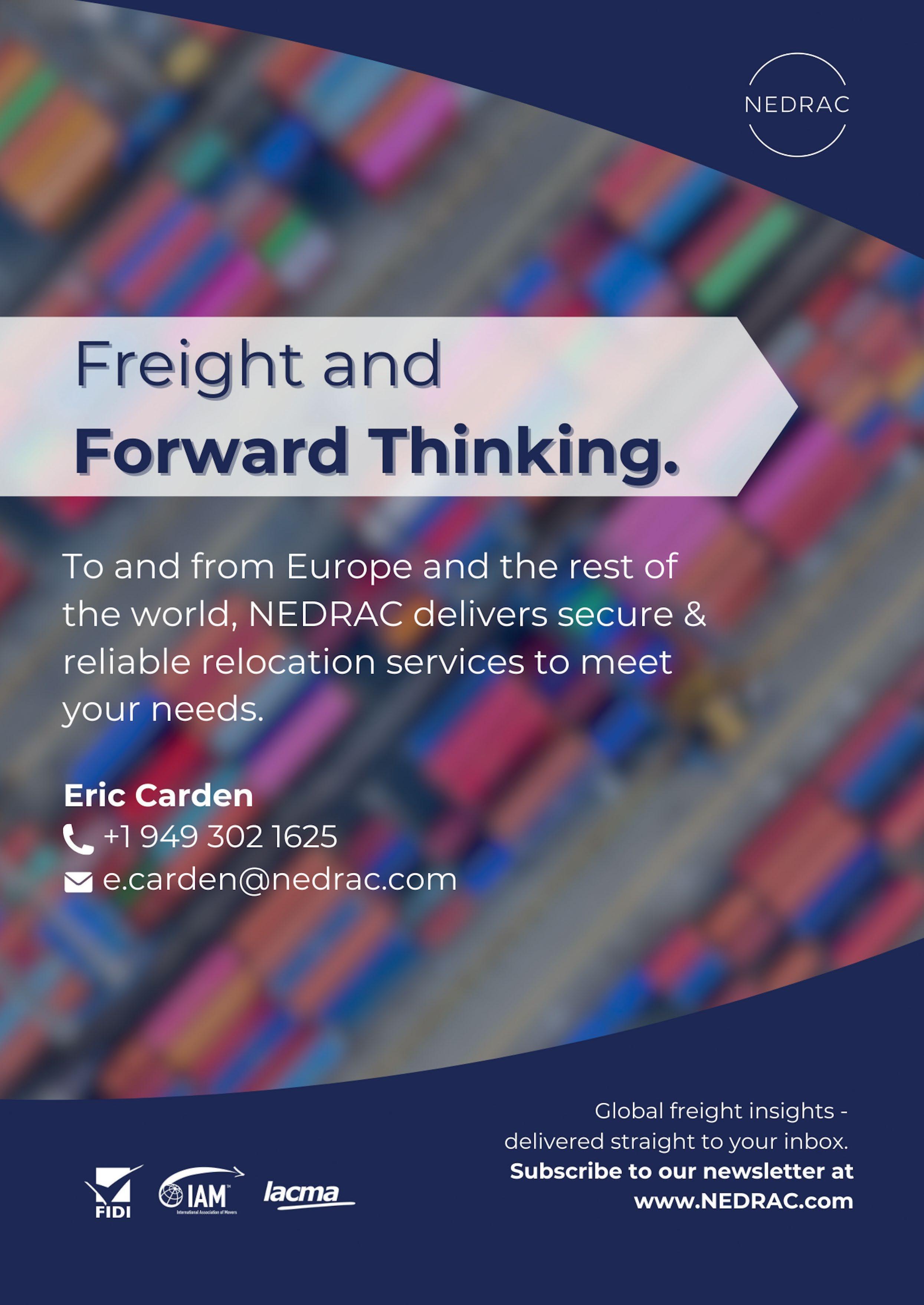
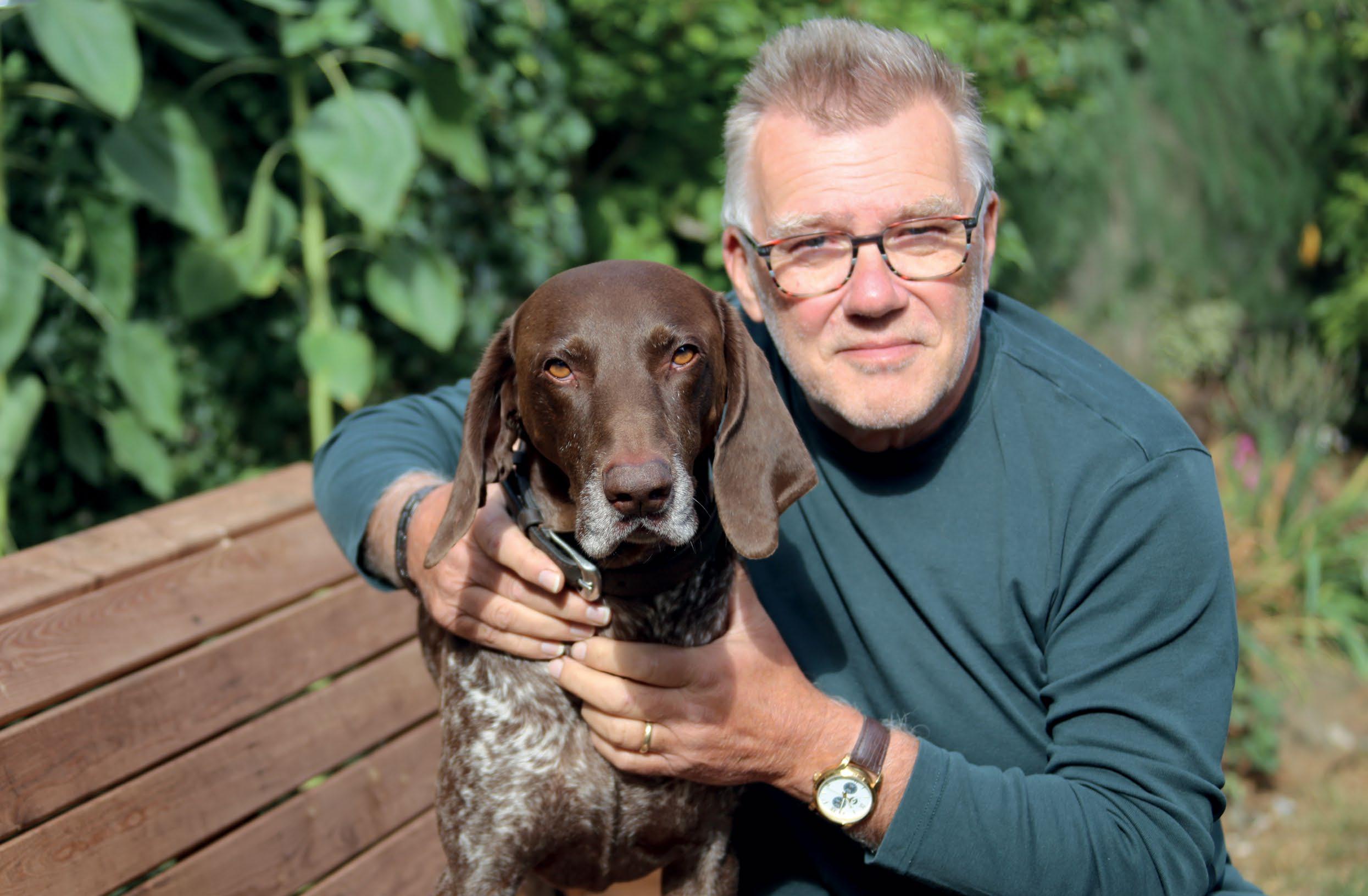
As Steve Jordan steps down from The Mover, the magazine he built from scratch 14 years ago, he speaks to FIDI Focus Editor Dominic Weaver about the future of the international moving and relocation business. He reflects on the privilege of interviewing industry icons, tackling its toughest topics, and maintaining independence in an evolving business. And while he may finally be taking a break, he insists he’s far from finished
After two decades of monthly deadlines, Editor and founder of The Mover magazine, Steve Jordan, is stepping back, leaving the magazine he launched in April 2011 to take a break that has been a long time coming. ‘I’ve been doing this for 20 years,’ he says. ‘When you’ve got to get a publication out regularly like this, you can’t take time off – I haven’t even had a fortnight’s holiday in all that time.’ Jordan entered the moving industry in 1974 with Scotpac, then went on to join a new venture, Avalon Overseas, specialising in US military and migrant work. Avalon was sold in 1989 to Trans Euro. He left the sector three or four years later after becoming a single parent and looked to find a compatible job. ‘I had to find a job I could do without leaving the house much,’ he says. ‘I had this idea I could be a writer –and fortunately it turned out I could do it.’ In 1995, he returned to the sector not long after, when Paul Mason of John Mason, who was OMNI treasurer, asked him to edit the organisation’s magazine. This led to him producing a magazine for BAR from 2004
until 2011, after which he decided to set up his own publication.
‘I started The Mover mainly because I didn’t think there was anything else in the industry that was independent,’ he says, ‘and I thought the industry needed it’.
As the magazine changes hands to a new publisher, The Media Connexions, and editor Patrick Hicks, he hopes this independence remains for the long term. ‘It’s what has made the magazine what it is and allowed us to do the things that made us different,’ he says. However, he adds that the industry needs to support it, too. ‘So many people over the years have said to me how much they enjoy and appreciate the magazine,’ he says, ‘but only a small proportion of them ever advertised in it. They don’t seem to join the dots and understand that this is what keeps it profitable and going’.
Of all the many articles he has written about the moving business over the past two decades, Jordan says it’s mainly the interview features that he really remembers.
‘It’s the characters who make this industry, and having the opportunity to
interview the top people – like Alain Taieb, Bill Graebel, Eric Lim or Chuck Kuhn – has been a tremendous privilege,’ he says. ‘Of all the stuff I’ve written over 20 years, it’s only these that I really treasure, because in every one of them I tried to get under the skin of the person a bit.
‘One thing I’ve noticed is that whenever you talk to anybody in this industry who has been very successful, you immediately know why. It’s because they have a fundamental understanding of the human condition. It doesn’t matter how good you are in this business – if you don’t understand people, then you’re dead. That’s the differentiating factor between these real icons of the business that I’ve interviewed and everybody else.’
Others who Jordan says fall into this inspirational category include Robert Voerman, Paul Evans and Tom Ansley (‘start your day by having breakfast with him – he’s so enthusiastic you’re floating above the carpet for the rest of the day’). He adds that he could write a list of 30 or so more of these leaders.
Further to the interviews, Jordan adds he is also pleased with the two articles he wrote recently on sexual intimidation at industry conferences – pieces he believes were vital to write. ‘I feel very strongly about that – and I also know that it would have been very difficult for anyone else in the industry to do that as a story,’ he says.
His confidence to be an industry commentator comes at least in part from an encounter during a BAR conference in the 1980s. ‘I had been invited to do a speech about shipping when I was a young man and didn’t know much about anything, but I did it,’ he says. ‘I don’t know what it was, but after I finished, Ted Philp of Pickfords, who was an acknowledged industry expert, came up to me and asked my advice about something, just because I’d stood on the stage and spoken for half an hour. And I thought “this public speaking thing is a very, very powerful tool’. It was like a bomb going off.
‘After that, I took every opportunity to stand on a stage and present myself,’ he says. ‘It is a result of that, that I gained the recognition that allowed me to do everything else I do.’
From here, Jordan undertook Dale Carnegie training, eventually becoming an instructor for the organisation, and setting up his own public-speaking school. If he had any advice for public speaking, it would be to use bullet points (‘it sounds more natural’) rather than a written script – and to embrace nerves. ‘People complain that it makes them nervous – well of course it does! You are nervous because you care, and if you don’t care, you shouldn’t be there,’ he says.
Among Jordan’s retrospective reflections on the sector are the opportunities that it has missed. ‘The industry has been slow on the uptake with a lot of things – probably because there are so many traditional family businesses that have been locked into a certain way of doing things,’ he says. ‘There is no reason, for example, why moving companies shouldn’t have been offering relocation services long before relocation companies did it. This is an oversimplification, of course, because a lot came from the real-estate business, but that doesn’t mean they couldn’t have been offering these services long before’.
‘The industry also totally misunderstood the value of self-storage,’ he says. ‘It’s pretty good in the UK now, but in the rest of Europe it’s almost non-existent’.
Jordan also says the industry also missed the boat on lead-generation business. ‘We have all these companies who
harvest leads and sell them into the industry – they don’t need that, they could have done it themselves. I ran a session on the subject at the BAR conference in Edinburgh in 2008 and people said “these are just bedroom brokers, we don’t have to worry about them”. Within two years, they’d taken all the leads, which was just pure shortsightedness’.
With traditional models under pressure, this entrepreneurial spirit in moving is now more important than ever. ‘If the industry is going to survive the difficulties, it needs to be thinking “What’s changing… and what’s going to change in 10 years’ time?”,’ Jordan says.
He believes the wealth of ‘extraordinarily good’ young people in the business is
“I should be retired and sitting around or digging my allotment, but I’m not built that way”
providing this already. ‘They have gravitated towards this industry – and thank goodness,’ he says, adding that in an industry dominated by family companies, older owners and the previous generation have a responsibility to get out of the way to let the businesses that employ them thrive.
‘Really, no-one over the age of 60 should be making decisions about a modern business,’ he says. ‘I don’t mean not respecting their wisdom or cutting them out completely. They can stay as mentors but leave the decision-making to the 30 somethings. The younger generation are ambitious and want to do things – if you
don’t let them, they will find another way of doing it and it won’t be with your company.’
Finally, he sees technology driving a significant change in the business. ‘It will make the difference between a relocation company and a moving company difficult to see,’ he says. ‘Moving companies will begin to morph into companies that are not only providing a moving service but also providing general advice and some of the softer services. You could argue they should have been providing this 50 years ago; this is an opportunity to regain the space they should rightfully have.’
Despite stepping down, Jordan is unlikely to be resting entirely. He has four children and eight grandchildren to keep him busy and will continue to be involved in his wife’s dog-walking business.
In addition, at the age of 71, he still plays table tennis at a high level – despite a persistent knee injury. ‘When I’m focusing absolutely intently on the game, I can’t feel the pain’, he says. He also plays guitar, with a particular love of music with great lyrics, and taking part in the occasional pub gig.
‘I should be retired and sitting around or digging my allotment, but I’m not built that way,’ he says, adding that he will continue with some industry PR projects, including work for OMNI. Jordan also admits he found handing over The Mover – a 14-year labour of love – tougher than he expected, and that he anticipates remaining in the industry for some time yet.
‘When you launch a business you nurture it, you build it, you love it and you give it everything,’ he says. ‘Selling the business feels to me like I’ve sold one of my children. If someone were to offer me something now that I was really interested in, I’d take it,’

Age of most New Zealanders reportedly moving abroad
Increase in freight rates to ports such as Southampton, Antwerp/Rotterdam and Bremerhaven <45 72%
30,000
5million NZD
Net migration to Australia over the past 12 months
12–18 months
Minimum threshold for NZ Active Investor Plus Visa
Estimated timeframe for increase in net migration to New Zealand













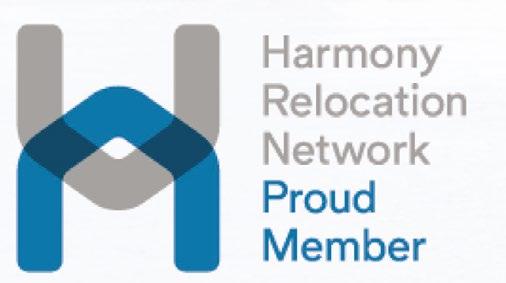








Movers and DSPs tend to suffer from an underdog complex – or Calimero effect – in the global mobility industry, and this affects their position in the food chain, says FIDI Secretary General Jesse van Sas

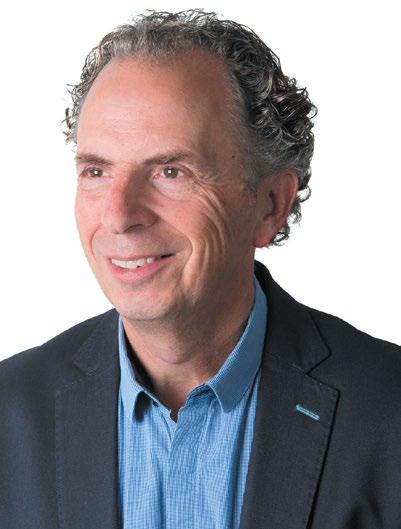
Calimero was an animated television series, quite popular in Europe in the 1970s, about a charming but hapless anthropomorphised chicken; the only black one in a family of yellow chickens. He wears half of his egg shell on his head, and every episode ended by Calimero lamenting ‘They are big and I am small, and that’s not fair’
In a professional context, the Calimero effect refers to a mindset where an individual, team, or even an organisation perceives itself as unjustly small, overlooked or powerlessdespite evidence to the contrary.
In the world of international relocation, movers and DSPs are often the unsung heroes. They are the ones who pack, lift, transport and deliver the very essence of people’s lives across borders; they are the ones who find homes and ensure that the transferee settles in, ready to take on the challenges of the job.

jesse.vansas@fidi.org
Yet, despite their critical role, many movers and DSPs continue to operate under a cloud of self-diminishment – the Calimero effect. In our industry, this manifests when they see themselves as the lowest link in the relocation chain, overshadowed by mighty procurement professionals, Relocation Management Companies, global mobility managers, or even fellow suppliers to the industry.
But let’s be clear: this perception is inaccurate – and harmful.
The relocation process quite literally begins and ends with the the teams on the ground. Without the physical movement of goods, there is no relocation. The emotional and logistical weight of a move is borne by the mover’s or DSP’s team, who must deliver not just boxes or a suitable
house, but also peace of mind. And yet, movers and DSPs often hesitate to claim their rightful place at the strategic table.
I have been reading a new book called Unpacking Employee Relocation by Chris Kline, a recognised leader in workforce mobility. The book shares insights in employee relocation programmes and covers the whole spectrum of global relocation. Guess what chapter in the book is by far the longest? You got it, it’s ‘Managing Household Goods shipping’.
As Chris Kline states in the book, moving is ‘one of the most critical elements of any relocation’. He continues by saying that household goods moves or DSP services are often treated as just another piece of the relocation puzzle, but the way they are managed can have a lasting impact on both the transferee and their company.
This underdog complex that we seem to have, can lead to missed opportunities: movers and DSPs may shy away from innovation, underinvest in marketing, or fail to assert their value in partnerships. Worse, it can create a self-fulfilling prophecy where others in the value chain begin to overlook the mover’s contribution – simply because the mover does too.
It is time to rethink the narrative. To move forward, we must first change the story we tell ourselves. Movers and DSPs, though fragmented, are not small. They are not powerless. They are not ‘the people who move boxes’; they are the enablers of global mobility, the custodians of trust, and the first and last touchpoint in a family’s relocation journey.
Let’s stop thinking like Calimero. Let’s start thinking like the indispensable professionals we are.
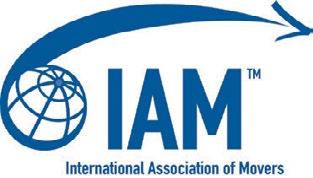
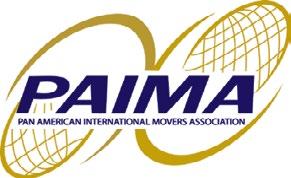

Contact us:
Contact us:
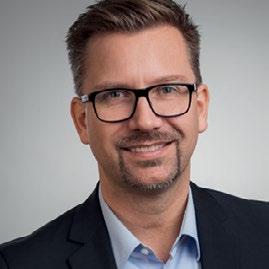


Hendrik Donner
Hendrik Donner
hendrik.donner@henk-international.de
hendrik.donner@henk-international.de
Kosa Freihöfer kosa.freihoefer@henk-international.de
Kosa Freihöfer kosa.freihoefer@henk-international.de
4,552 EMPLOYEES 17 GLOBAL LOCATIONS 1 MOBILITY SOLUTION CHALLENGE ACCEPTED. www.henk-international.de
Natalie Gerth natalie.gerth@henk-international.de
Natalie Gerth natalie.gerth@henk-international.de
www.henk-international.de







Despite – or even because of – five years of upheaval in the form of sharp cost increases, geopolitical turmoil, severe shipping disruptions and more, many FIDI Affiliates’ businesses are in great health. FIDI Focus Editor Dominic Weaver spoke to some of them about how they have adapted, and why technology, premium services and the personal touch are among the must-have ingredients for success
The 2025 FIDI Focus State of the Industry report details some particularly strong headwinds for the international mobility industry. The fifth issue of this annual look at the global trends impacting the business highlights challenges including geopolitical turbulence – fuelled by wars in Ukraine and Gaza, rising nationalist sentiment, and more than 70 elections globally during 2024 alone; protectionism, characterised by stricter immigration rules, a scaling back of some international collaboration, and general winding back of globalisation; disruption to supply chains from Houthi attacks in the Red Sea, drought impacting the Panama Canal, other weather-related challenges; and rising energy and other costs.
The report also highlighted an ongoing shortage of jobs in key parts of the industry; a trend towards mergers and acquisitions creating larger operators and pressure on smaller businesses; political pushback against sustainability and other ESG initiatives, including the US withdrawal from the Paris Agreement; and a worldwide economic slowdown that has seen a decline in volumes of up to 40 per cent for some Affiliates. There are more, too.
The report paints a picture of an industry that, five years on since the start of the pandemic, faces challenges on many fronts – including political, economic, environmental and operational.
However, against this gloomy backdrop, there are stories of optimism and renewal that stand out particularly brightly. Isabelle Harsch, CEO of Swiss Affiliate Harsch, describes how agile thinking, partnerships, attention to cash flow and being proactive about growing its cash-on-delivery business, have helped the company thrive; Fiona Conroy speaks about the role of company culture and transparent working in the recent expansion of Conroy Removals in New Zealand and Australia; while, in China, Allen Lyu, Managing Director of Shanghaibased AMR International Relocation, says ensuring jobs are profitable before taking them on and focusing on customer service and quality have been essential ingredients in helping the firm outperform a local fall in jobs of 15 per cent.
Subsequent upbeat stories and social media posts – in May this year, for example, Mercovan Argentina International Removals announced that it had carried out the largest number of moves in a single month for the past 15 years – suggest that these instances are not isolated and despite, or perhaps even because of, the challenges there is an increasing number of companies who have adapted, grown stronger, and are flourishing in the difficult trading environment.
Fabio Manuel, founder and CEO of Portuguese Affiliate Invictus – which joined FIDI in 2023 and opened a branch in Madeira in June, and offers an in-house veterinary department as part of its pet moving services – says he believes the moving and relocation sector is at a turning point.
‘From post-COVID uncertainty, rising costs and logistical nightmares, the past few years have been intense, a real test of resilience,’ he says. ‘But it’s
also forced us to grow, fast. Our company embraced transparency, invested in our people and doubled down on quality rather than quantity. We learned to say no when it protected our standards and business’.
At Brazil’s One Moving, meanwhile, Wesley Thomé says post-COVID trading has been tough, lurching from recovery in 2022-23 to crises caused by volatility, high costs and labour shortages. With client expectations higher than ever, he company looked to adapt fast.
‘We invested heavily in technology and [CRM software] Salesforce transformed our internal processes and customer experience,’ he says. ‘We also grew through acquisitions in Portugal and Chile, and most recently acquired a relocation business in Brazil so we can better serve corporate clients and RMCs.’ He adds that the company prioritised staff training and standardising procedures to get consistency across its markets.

Likening recent unpredictable trading to ‘a treadmill that randomly speeds up, slows down, and occasionally catches fire’, Simon Hood, Managing Director of John Mason International, says the business is, nevertheless, ‘marginally up’ on preCOVID levels. ‘This feels like a win, when you consider what we’ve all been navigating,’ he says.
The many challenges Hood mentions include unpredictable shipping timetables with rollovers that are so frequent they are almost routine, the impact of US tariff uncertainty, and continual congestion at ports such as London Gateway. But he also cites a dramatic change in the way people find themselves a mover. ‘Website click-through rates have dropped 32 per cent since AI Overview started spitting out answers – that’s a third of your traffic gone,’ he says. ‘People don’t want 100 answers any more, they just want one name they can trust.’
For John Mason, the answer to these has been to invest and evolve, says Hood. ‘We looked after our people, kept a strong culture, and put our money where it counts: into people, property, tech, and systems.’ Rather than dropping prices and making cuts, he says, the company has invested in virtual surveys, digital documentation, and good internal communication, all of which has increased agility, while a property portfolio has given the company more control over its storage capacity and overheads.
Meanwhile, he says, keeping customers engaged and informed has been essential. ‘We’ve kept communication sharp and transparent, so customers know what’s going on, even when things beyond our control shift,’ he says. ‘This level of honesty goes a long way.’
At Invictus, Manuel agrees, saying companies who can foster trust are in pole position. ‘Customers are more anxious and movers are under pressure

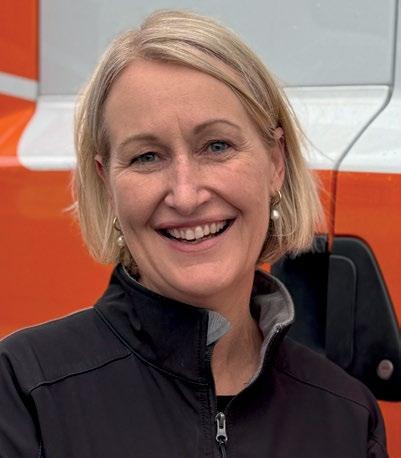



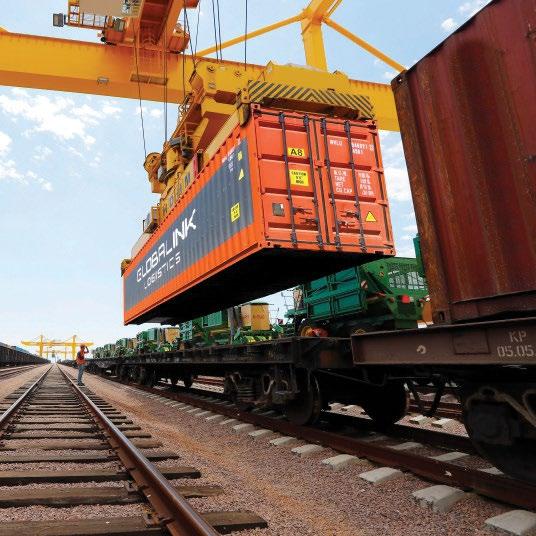





high-value niche services, including pet, fine art, and relocation and immigration support, with a significant premium segment opening up, too.
‘High-net-worth clients, professionals and expats with complex moves need proper coordination, whiteglove service and a team that understands local laws and logistics,’ says Hood. ‘They’re looking for reliability and peace of mind rather than comparing quotes.’
He adds: ‘We also see opportunities in helping clients think beyond the move, supporting them with storage, customs preparation and long-term relocation planning. It’s a holistic approach that will set companies apart as the market matures.’
Thomé says: ‘There is also potential to form strategic alliances to serve global accounts with local excellence.’
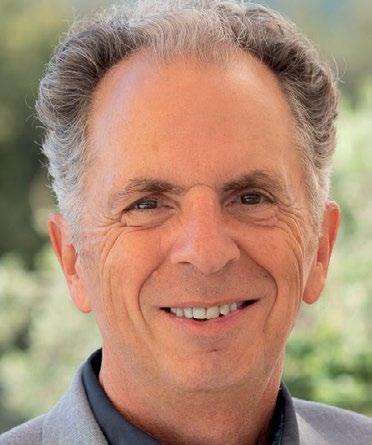
‘Five years from now, I believe mobility will be more integrated, tech-enhanced – but with new companies fragmenting the business, too,’ says Manuel. ‘The ones that will thrive are those that build strong networks of trust.
‘Tech will take over the admin and paperwork, but customers won’t accept being fobbed off by bots when their container’s stuck in Dubai. They’ll want answers from people who’ve been through it before,’ says Hood.
‘Companies that can balance automation with actual human care will be those that succeed. Someone who can explain what’s going on when their container ends up in the wrong hemisphere. Someone to say, “Don’t worry, we’ve got this”. That’s the future.’
The 2025 FIDI Focus State of the Industry report can be downloaded from the FIDI Focus website.
Disruption comes in many forms and shapes. It can be competitors with a new way of working, technological advancements, events beyond your control, such as pandemics or legally imposed rules – there is no end to it. Disruption has a negative connotation, but that is really not correct. Disruptors are perfect triggers to change, to adapt to new reality, to do better, even better than the disruptor is doing.
In the past 10 years, relocation services providers have massively seized the opportunity to become more customer-focused, embracing the demographical changes in our client base with millennials and Gen Z’s focusing more on technology,
sustainability and quality. At the same time, movers and DSPs are increasingly realising that a race-to-the-bottom on rates and fees cannot be won in the end and will only produce the short end of the stick for the supply chain in relocation. This is leading to a renewed focus on true customer service, proven quality and a financially healthy bottom line.
With that, there is a new pride growing among the movers and DSPs, as a very essential frontline service to not only the corporate or governmental client, or the RMC, but also to the end customer, the family moving their goods and their life to a new foreign location and culture.


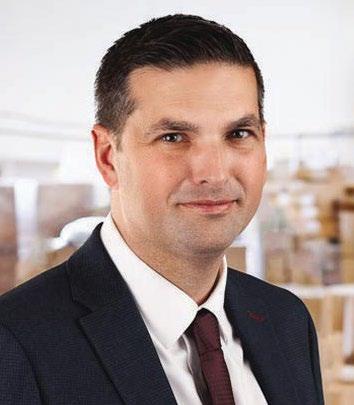

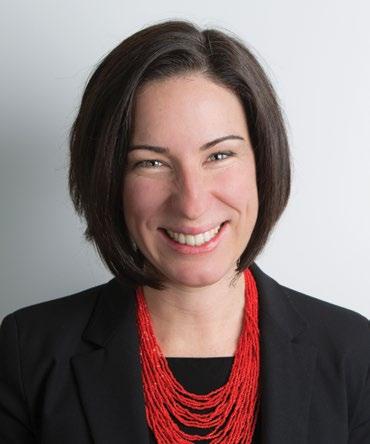
By Magali Horbert, FIDI Sustainability and Strategic Communications Manager
As an antidote to the recent political backlash to ESG in some regions, here are some reasons to remain positive about sustainability and related initiatives.
l Companies with a global footprint are steadily embedding sustainability into their core strategies – in recognition that the climate crisis poses a significant long-term business risk. For our industry, the main risks include supply chain disruptions (especially for transportation of HHGs), risks of climate catastrophes on facilities (floods and wildfires affecting warehouses, for example) and working conditions (for example, drivers working in heatwaves).


There is an increasing understanding that sustainable practices are commercially beneficial (as well as ethical). Many moving and relocation companies are still investing in greener technologies and more efficient logistics, lowering their carbon emissions. Those that have already made these changes report immediate benefits, such as reduced operating costs, greater efficiency and a stronger marketing position.
Collaboration within the industry is gaining momentum, with companies and industry associations working together to establish and share best practices
24 - 27
across the relocation supply chain. This cooperation is raising standards in sustainability and driving greater understanding in other operational areas.
l Regulatory demands and evolving client expectations mean that, even in the face of some resistance, sustainability remains firmly on the agenda. For many companies, preparing for upcoming reporting requirements is no longer optional.
l The Coalition for Greener Mobility, of which FIDI is a founding member, is fostering collective action by bringing together industry players to tackle shared ESG challenges, focusing on measurable progress rather than isolated efforts. This collaboration around the topic of ESG is working so well that we have decided to widen the scope of the Coalition.
l Increasingly, sustainability is being integrated into RFPs by corporate clients, pushing suppliers to elevate their ESG performance across the industry.
l More companies are expanding their focus beyond environmental measures to include wider social aspects, such as worker wellbeing and diversity initiatives.
















































With the imminent arrival of a FIDI best practice report on cyber security, Andrew Bennett looks at what Affiliates can do to protect themselves from increasingly sophisticated crooks, who are targeting an industry that some believe is in a particularly vulnerable position

These days, from the perceived safety of our laptops, many of us could be just a click away from doing our businesses serious damage.
Imagine the scenario – it is the peak of the moving season, customer demand is fierce; and your office network suddenly slows to a crawl.
It’s not long before you realise someone has gained access to your systems, which you thought were secure, and is siphoning off files containing information that includes client contracts, payment information, and employee details.
Within hours, this sensitive information is posted for sale on the dark web. Welcome to the world of pain that is a data breach.
No specific figures exist for moving firms, but within a wider environment of small and mediumsized enterprises, the European Union Agency for Cyber Security, ENISA, noted a 25 per cent rise in attacks targeting the transport sector, which includes logistics and moving firms (ENISA, 2023).
Elsewhere, the UK government’s Cyber Security Breaches Survey 2025 found that 43 per cent of businesses had reported a cyber breach or attack in the past year. According to the Identity Theft Resource Center (ITRC), there were 3,205 data compromise incidents in 2023 in the US, costing businesses an average of US$9.36 million per incident.
According to insurance company Reason Global, cyber attacks decreased between 2023 and 2024. However, this may reflect increased awareness and training around threats such as phishing, rather than a true drop in the frequency of attacks.
Breaches are becoming more common, especially as firms migrate to digital platforms, says Pen Test Partners, a cyber security consultancy whose EU head, Jo Dalton, gave a keynote speech on this subject at the last FIDI Conference. Ransomware, phishing and data-theft attacks are rising, but many go unreported, she says.

Among the moving companies globally that have been targeted by cyber criminals – and which is proactively battling threats – is Asian Tigers.
Group Chairman Gordon Bell says: ‘We are on the lookout for this type of attempt by bad actors to get in between us and customers. In this case, a fraudster masqueraded as a trusted associate. They used highly convincing spoof email and social engineering tactics.
‘The email domain was slightly different from our real one, the email address was a little suspect, and, luckily, the customer spotted it and notified us. This was a phishing scam and they are on the rise around the world – but in Asia especially.
‘We believe in proactive transparency. When a threat emerges, we move quickly – not just behind the scenes but also visibly, for the benefit of our customers and partners.’



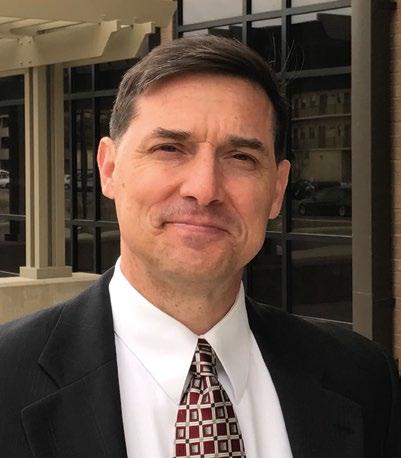
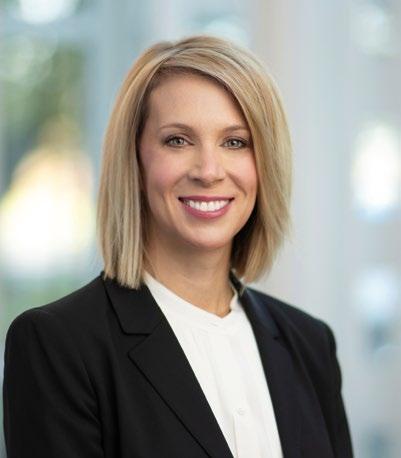
“If cyber crime isn’t already on your executive agenda, you’re asleep at the wheel”




Asian Tigers has recently updated its privacy policy to reference scam risks and include local contact points for suspicious activity in each market.
‘We launched a customer protection message on our website – with plain language and visuals –because not everyone speaks legalese,’ said Bell.
‘Importantly, we’ve embedded this intelligence into our artificial intelligence (AI) digital concierge, “Cindy”, so customers can get up-to-date scam warnings and best practices instantly.’
The FIDI 39 Club has been pushing for members to be proactive on cyber security. ‘Cyber security is increasingly vital for international moving companies because of the sensitive nature of the data we handle each day. From passport scans and visa documents to financial data and personal addresses, movers are entrusted with highly critical information,’ says FIDI 39 Club President Juan Guillermo Díaz.
‘A breach could not only compromise client trust, but also expose the moving companies to legal and financial liabilities. As global mobility becomes more digitised, the attack surface expands – making robust cyber security not just a technical concern, but also a strategic imperative.’
In the US, international mover and relocation specialist Aires believes that cyber security attacks pose a ‘significant and growing threat to international moving and relocation companies’.
Hugh St Martin, the company’s Director, IT Services and Security, says: ‘These organisations handle sensitive personal data – addresses, financial details, passport information, and so on – operate across multiple jurisdictions, and manage complex supply chains and high-value transactions.
‘Threat actors do not discriminate by industry –they seek any vulnerable target. Given the interconnected nature of our industry, an attack on one company can have ripple effects across the sector. Cyber security must be treated as a serious, shared concern.’
Joleen Lauffer, President at Aires, agrees that moving and relocation companies are ‘attractive targets’ because of ‘the volume of personal data they store, the complexity of their IT systems –often spanning multiple countries – and the
presence of legacy systems that may harbour vulnerabilities’.
She adds: ‘Attackers are opportunistic and use automation and AI to identify and exploit any weaknesses, regardless of industry.’
Worryingly, as well as external threats, there are less obvious risks to companies. According to Dalton: ‘External hackers are often the primary concern, but insiders – whether current or former employees, contractors, or business partners – can all pose significant risks to an organisation’s security.
‘Insider threats are especially dangerous because, typically, insiders have legitimate access to systems and sensitive data, making it easier for them to exploit vulnerabilities without immediately triggering alarms.
‘Trusted partners or contractors who have access to the company’s systems and networks can also, intentionally or unintentionally, become vectors for cyber attacks.’
While awareness is growing about the power of cyber criminals – and the damage they can do to businesses, big and small – there are calls for company executives to avoid complacency.
Asian Tigers’ Bell puts it like this: ‘If cyber crime isn’t already on your executive agenda, you’re asleep at the wheel. Our industry moves lives, careers and sensitive data, which makes us attractive targets. I’d say awareness is growing, but not fast enough.
‘We’ve all invested in strong backs and sturdy trucks. Now, we need firewalls, two-factor authentication and training. Training, vigilance and honest internal discussions are non-negotiables.’
More than one part of the Asian Tigers Group operation has come under cyber attack. The company’s Indonesian office recently intercepted a phishing attempt that impersonated internal contacts.
‘While the threat originated from outside our environment, their team didn’t wait for corporate protocols; they published an immediate online alert with resolution steps,’ explains Bell.
Asian Tigers China has also been proactive, investing in advanced endpoint security and reinforcing protocols across regional offices. It has also taken the extra step of training its non-technical staff –often the first point of contact for fraudulent attempts

– on how to spot and escalate anything suspicious.
Back at Aires, Lauffer says: ‘Executives must treat cyber security as a board-level priority. It’s no longer a question of “if” but “when” an incident will occur.’
She recommends that business leaders’ actions include understanding their organisation’s risk tolerance and investing in security infrastructure, as well as staying informed about emerging threats.
In addition to investing in good training, the right software and a security culture, international movers can be helped by the insurance industry to combat cyber threats.
Jacob Dolan, Business Development Executive at Reason Global, says: ‘Insurers play a dual role: underwriting policies and supporting improvement by guiding clients to strengthen their defences. Cyber cover typically includes first-party (breach response, business interruption, ransomware) and third-party (liability) elements.’
An encouraging factor is that more managers in the industry are taking cyber security seriously, and the topic has gained significant traction within the FIDI 39 Club for younger movers.
According to its Board, club members recognise that cyber threats are no longer hypothetical – they see them as ‘real and rapidly evolving’.
During recent FIDI 39 Club Board meetings, cyber security was identified as a key topic for the year to come, along with AI.
‘As a community of young professionals, we are naturally more digital native, but that doesn’t automatically mean we’re cyber-aware,’ says Díaz, of the FIDI 39 Club. ‘FIDI can empower this generation with practical tools and peer-led initiatives to champion better cyber security from within their own companies.
‘Throughout this year, the FIDI 39 Club is committed to supporting members with resources, interactive learning and training sessions that not only raise awareness, but also foster collaboration and mutual support within the network.’
The FIDI 39 Club will be hosting a winter panel on cyber security and AI, and a FIDI Academy course on digital proficiency and cyber security is available to all FIDI Affiliates, free of charge, reflecting FIDI’s proactive stance.
While discussions within the young movers’ club suggest that awareness is growing, implementation varies. Some companies have robust training and internal audit programmes, while others are just beginning to explore these areas.
‘In an industry such as moving and relocation, where much of the process still relies on legacy systems, manual workflows, and personalised service – especially when dealing with sentimental household moves – the younger generation plays a vital role in driving digital transformation by introducing personalised, efficient, and quick solutions,’ adds Díaz
‘They’re helping companies adopt better customer relationship tools, streamline operations and enhance online visibility – key factors for staying competitive in today's global market.’
Moving companies want to see influential trade organisations such as FIDI continuing to make a difference. ‘By fostering collaboration and awareness, these organisations can help protect the entire industry,’ says St Martin, at Aires.
He believes FIDI and other trade bodies can help members by sharing threat intelligence and best practices, offering training and resources, and facilitating ways for industry peers to exchange information.
He would also like to see guidance provided on responding to incidents and options explored for cyber insurance.
One key piece of assistance that FIDI provides is the requirement for Affiliates to incorporate planning against cyber attacks into their response to the regular FAIM audits. This helps businesses integrate security measures into their overall operations, ensuring that cyber security becomes an integral part of their daily practices and long-term strategies.
While dealing with cyber security can seem like another headache, doing it is no longer optional.
‘In the end, cyber crime doesn’t respect borders or company sizes,’ says Díaz. ‘But if FIDI continues to position cyber security as a shared responsibility –backed by real action and practical support – we’ll all be better equipped to face what’s coming next.’
“A breach could not only compromise client trust, but also expose moving companies to legal and financial liabilities”

Maxim Ternier, Cyber Security Manager, EY Consulting, Belgium
Maxim Ternier, Cyber Security Manager at EY Consulting, in Belgium, and his team are ‘ethical hackers’, whose job it is to test just how vulnerable companies’ IT systems might be to a real-world cyber attack.
‘We perform lots of different exercises to simulate how real attackers would behave, but instead of abusing this for personal gain, we report them to the organisations so they can fix them and be better protected,’ Ternier explains.
As more organisations become the victims of cyber security breaches, there is little room for complacency. ‘If the client says “my systems are secure”, we can challenge them to see how secure they really are and whether or not they could be abused from a hacker’s perspective,’ says Ternier, who believes the main vulnerabilities for moving companies in terms of hackers entering IT systems are likely to originate from two sources.
‘You can have a lot of defensive measures in place, but the human factor is the weakest link.’ Malicious emails sent to an employee or employees are, therefore, often how cyber attacks start.
Another weak point for companies is the use of multiple portable devices that all have mobile connections to the company’s IT systems. These can include laptops and mobile phones, and the recent working from home culture has reduced security. ‘The compromise of such a device, or losing a device, can be an initial trigger for getting access to the network or sensitive information,’ Ternier says.
Hackers may go to some lengths to ensure a malicious email looks legitimate before they send
downtime for your system and the impact on your business could be major,’ he adds. Here are some key tips that will help to combat cyber security hacks:
l Always use secure passwords. Ensure the passwords are complex, rather than very obvious ones, such as ‘Password123’, or basic personal information, such as a family member’s name. And rotate your passwords on a regular basis to increase security.
l It is important to know what is happening within your company’s IT environment. Consider installing a centralised Secure Information and Event Management platform that captures log-ins and other data about how your system is being used.
l Be proactive in testing your IT systems’ security. Consider doing a penetration testing exercise using a trusted supplier, who will test your system for weaknesses.
l Consider the worst-case scenario – what is your incident-response plan? What are your policies and work plan so you can recover as efficiently as possible and resume business as normal? Which of your business systems are the most critical?
l If you are hacked, stay calm and implement your back-up plan. You will also need to work out what caused the cyber incident in the first place.
l Employees are often the weakest link in the cyber security chain, so ensure all staff are fully trained in best practices and how to avoid falling victim to some of the most common cyber-crime tactics (see elsewhere in this article). Be careful about the use of removable USB drives that contain sensitive information; they can be lost – at great cost to a company.
l Think carefully about your communications. It is good practice to inform affected parties if your systems have fallen victim to a cyber attack, but


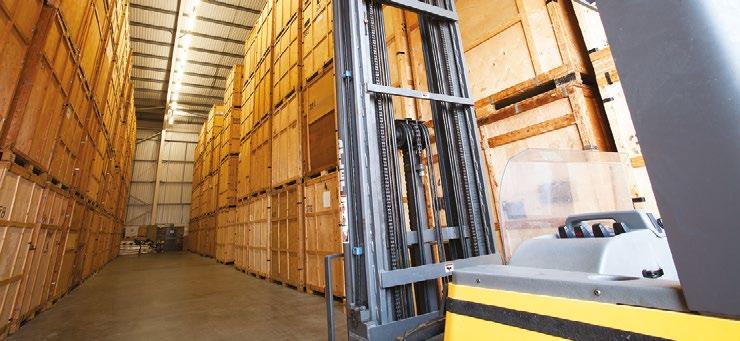






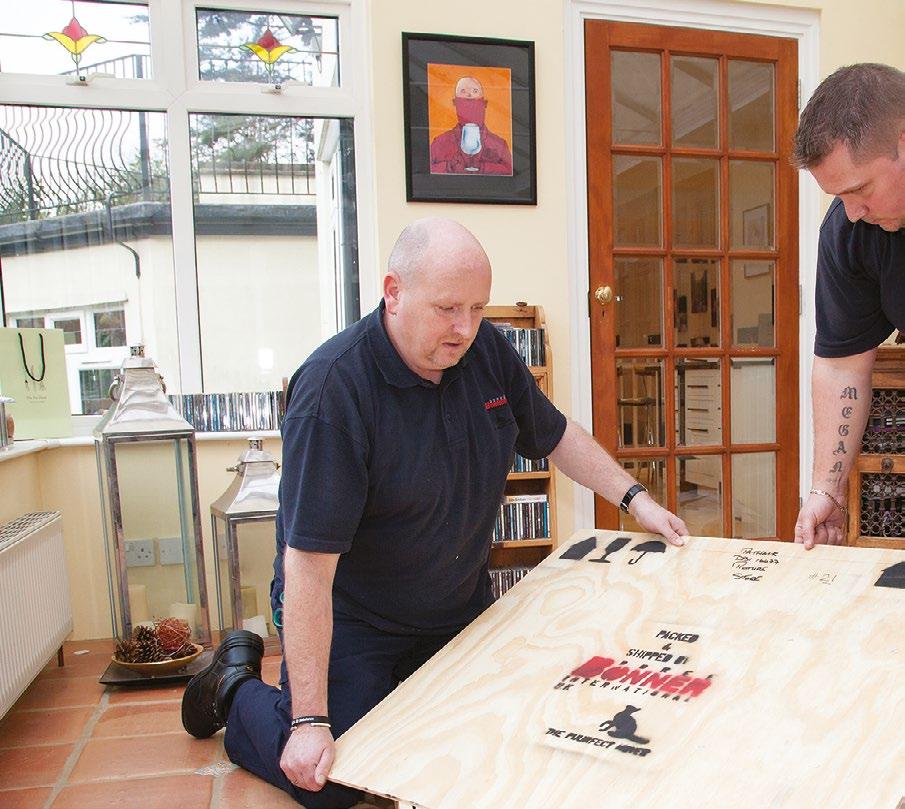







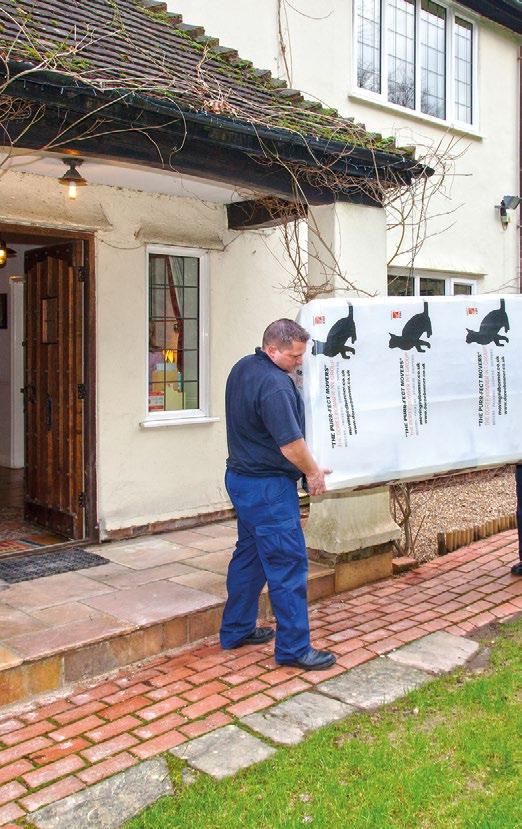


From whole house contents to cars, single items or pieces of art, no one is more careful than Doree Bonner International. We’ve been moving our customers’ possessions around the world for over 90 years - providing the highest standards of service at sensible prices.
For a free origin survey or destination rate, email us and get your clients move off to the ‘Purr-fect’ start. email: imports@dbonner.co.uk website: www.doreebonner.co.uk
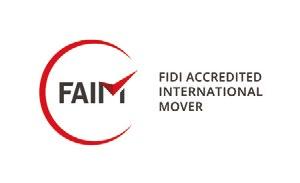


FIDI is taking a proactive approach to protecting its data – from running phishing simulations to implementing robust password policies. Andrew Mavin, FIDI’s in-house IT expert, tells us how the organisation has improved its own systems and why even small businesses need to stay on high alert

When you work in a tight-knit team, often from home, or your friendly office, it’s easy to slip into thinking, ‘Surely nobody will bother hacking us.’ After all, we have only a handful of endpoints (laptops, phones and other IT kit) and a pretty modest IT setup.
But that’s exactly the kind of thinking cyber-criminals adore. Because the truth is: it doesn’t take a giant multinational to be worth their time. Moving and relocation companies handle high-value personal and sensitive data like passports, payroll info and shipment details, making tempting targets, regardless of your company’s size.
“The fanciest software can’t save you from a staff member who unwittingly clicks the wrong link”
At FIDI, we’ve seen first-hand how the threat landscape is evolving. Phishing attacks have surged, and we have experienced attacks of varying sophistication. We have taken a proactive approach to protecting ourselves.
A few months ago, we called in an experienced third-party auditor


to give our IT infrastructure a thorough inspection. They found a handful of small, but very real, holes - some left over from legacy systems, others sheer human oversight. This was a surprise, as we pride ourselves for our diligent, process-driven approach in everything we do.
With some expert help and assessment from our IT service provider, we patched the gaps and tightened our setup. But here’s the honest bit: building a perfect, unbreachable fortress is a utopian dream. The aim isn’t to eliminate risk completely; it’s to make sure we’re always improving, following best practices, and to be ready when we do, inevitably, get phished.
That’s why, when we recently moved to a new IT provider, we took the opportunity to build a more resilient system from the ground up.
But even the fanciest software can’t save you from a staff member who unwittingly clicks
the wrong link. This is why we doubled down on employee training – because people are your strongest asset but, sometimes, can be your weakest link.
At FIDI, we’ve teamed up with our external IT partners to roll out an ongoing training programme. It works like this: l Random test phishing emails get sent to staff without warning.
l If someone clicks a dodgy link, it is immediately flagged up and they are sent through a tailored learning module.
l And yes, I (as FIDI’s IT point of contact) get a friendly report on who clicked what – meaning I get to tell them off and make sure they know better next time.
On top of that, staff attend regular online sessions covering specific cyber security topics, capped with quizzes to ensure the key lessons stick. This programme will continue throughout the year, and we will definitely keep a similar approach in the future

‘Passwords are like underwear...’ ...don’t let people see them, change them often, and never share them with strangers.
So along with training, we’ve made sure strong password policies and Multi-Factor Authentication (MFA) are enforced across all our systems. Because a password alone isn’t enough any more - especially not if it’s something like FIDI2024!.
far)
There are many phish in the sea, and even savvy staff can occasionally get hooked. Attacks evolve constantly: AI now crafts eerily convincing emails and even deepfake voice calls. The biggest takeaway? Continuous training and awareness are essential, and so is having a clear plan for when (not if) something does slip through.
Our approach lines up closely
with the recently published FAIM 2025 Cyber security Guide, which all Affiliates should look into. It’s built on 10 practical principles that every moving company, no matter the size, should weave into daily operations.
Here are a few highlights that echo our own practices:
1. Be proactive: Keep tabs on your endpoints and systems and regularly update management (and your IT partner) of any red flags.
2. Have a game plan: Document your incident response process. Who calls whom? Where are your backups? How will you notify affected clients? Practise this plan at least once a year.
3. Keep systems current: Run monthly security updates or act instantly when critical patches are needed.
4. Train, test, repeat: Run phishing and hacking simulations, hold short refresher courses and make cyber security part of normal workplace chatter.
FIDI’s cyber security practical guide is downloadable on FIDINET
l Secure your identity: MFA everywhere, plus unique passwords
l Secure your endpoints: Use advanced protection against malware and shady behaviour
l Watch your traffic: Tools like DNS filtering block access to known malicious sites
l Get external eyes: We rely on third-party monitoring and expert audits. The investment is worth it in the long run
l Stay dark-web aware: We also scan dark-web forums to catch any leaked credentials.
The FAIM Guide stresses the importance of risk management: mapping out your threats; analysing and prioritising them; and deciding how to mitigate. This isn’t just for the audit tick-box, it’s how you stop small gaps from turning into expensive crises. And crucially, document everything. In an incident, clear records show you took reasonable steps to protect client data and uphold trust – something regulators (and your insurance provider) will care deeply about.
Cyber security should be an ongoing process of training, monitoring, patching and planning. Keeping things slightly tongue-in-cheek helps staff stay engaged – but behind the humour is a very real seriousness about protecting our data and reputation. Whether you’re a five-person office or a global network, implementing cyber security proper should be integral to daily business – even small fish need tough scales.
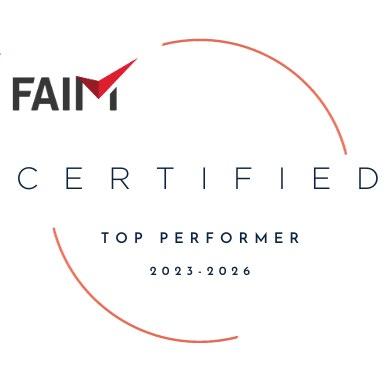

Today’s young movers have navigated a perfect storm of global crises, many of them since they entered the business. Juan Guillermo Díaz, FIDI 39 Club President, reflects on this exceptional time – and explains why he is hopeful that collaboration will forge a new kind of leadership
Ibelong to a generation that stepped into the arena with optimism, only to find ourselves navigating a decade defined by volatility, complexity and crisis. We entered the workforce after the 2008 financial crash, matured professionally during a global pandemic, and now lead organisations amid geopolitical uncertainty, cyber threats, climate emergencies and a transformed workplace.
When most FIDI 39 Club members began their careers, cyber security was a back-office concern. Today, it’s the war room. Every company, regardless of size or industry, is under constant siege from invisible enemies. For any firm a single breach can destroy client confidence. The challenge isn’t just fighting external hackers, however. We’re also expected to upskill teams, build cyber awareness, protect privacy and transform company culture.
After the pandemic, inflation surged, interest rates climbed, supply chains buckled, and small to mid-sized enterprises had to reinvent financial strategies month by month. Profitability today is as much about resilience as it is operational efficiency. Diversification, agility and innovation now trump long-term planning and predictability. As young leaders, we’re expected to stay lean, scale fast, digitise everything – and still preserve the human touch.
At times, it feels like we must be superhuman: navigating global politics, responding to moral dilemmas, embracing technological disruption and hitting business goals. Add to that a multigenerational workforce: Boomers, Gen X, Millennials, Gen Z – each speaking a different digital language and valuing work differently. Leadership today is about harmonising these strands; translating between generations and evolving company culture without losing its soul. Sometimes, it feels as if we need to be a mix of diplomat, therapist and visionary.
Then there’s climate change: floods, fires and heatwaves are disrupting lives and industries worldwide. As leaders under 40, we carry an unspoken responsibility to embed sustainability into everything, from operations and procurement to logistics and partnerships. But the tension is real. Many of us work in industries struggling to decarbonise. Customers demand faster, cheaper,
greener services – and we want that, too. But infrastructure, incentives and regulations haven’t caught up. Every decision is a trade-off.
Despite all this, I’m hopeful. Recognising our strengths and limits must be a daily mindset. We cannot keep pushing ourselves to burnout. Mental wellbeing needs to be central to leadership, not an afterthought. Being a leader today means showing up, reflecting often and acting with intention. It means confronting collective fatigue with honesty and turning it into fuel for a more conscious, sustainable economy.
This is a story of defiance, resilience, and reinvention. My peers are rewriting the rules of leadership. We’re more collaborative, connected and values-driven. We ask hard questions, admit when we don’t know and dare to care – not just about shareholders, but people, planet and legacy.
We are not perfect and, yes, we’re tired. But we’re not backing down. Beneath the chaos, a new kind of leadership is emerging – one that’s unafraid to say ‘I need help’; or ‘Let’s slow down and think’; or even, ‘Please world, give us a break!’
This isn’t a weakness. We need space to reflect, breathe and act meaningfully. We weren’t handed a roadmap. What we got was challenge after challenge – and the opportunity to lead any way. That’s what this decade demands and, strangely, it is what empowers us.
We’ve been battle-tested. We’ve learned to pivot and recover fast. Our adaptability, global awareness and digital fluency aren’t just survival tools – they’re the DNA of future-proof leadership. We must embrace technology not as a threat, but as an enabler. AI, automation and data can free us to focus on what really matters: connection, trust, creativity and long-term thinking.
How are we preparing to overcome global challenges? How are we sharing ideas, building leadership communities and learning together?
In a world that often feels overwhelming, it’s time to pause, reflect, and collaborate at a new level. We are all navigating the same storms, and we all need space to reset and reimagine.
This article is an invitation to FIDI 39 Club members and all FIDI Affiliates to start that conversation. The club offers many ways to share your voice – let’s think together, act together and evolve together.

“Beneath the chaos, a new kind of leadership is emerging –one that’s unafraid to say ‘I need help’”

With digital threats increasing, moving and relocation firms must take a robust and holistic approach to protecting themselves throughout their operations. Sonja Tuomela, Vice President of the FIDI 39 Club, explains why cyber security will be a key focus in the year ahead

Digital tools have reshaped the way we work and live. However, alongside the convenience and opportunities they bring come rising challenges – and cyber security is among the most pressing of these. In a world increasingly flooded with information, misinformation and sophisticated threats, distinguishing between real and fake can be difficult.
While any connected business is potentially at risk, the international moving and relocation sector is uniquely vulnerable. Every day, our companies handle vast amounts of customer data: addresses, identification documents, visa paperwork, contact lists and, sometimes, sensitive corporate information.
This data has now become one of the most valuable assets for companies – but it is an equally attractive target for cyber criminals.
Imagine this: it’s peak season, your inbox is overflowing, and you receive an email from a trusted partner. The email looks legitimate and has a tone that feels familiar. It contains a link asking you to review and access a moving document or invoice – which you click. Suddenly, your screen glitches and access to your computer is shut off. Shortly after, your inbox begins to send spam messages to everyone on your address lists – you know this from the calls you start getting from industry friends and colleagues reporting strange messages they are receiving from ‘you’. Your IT department scrambles to react as a sense of panic rises. You’ve been phished.
In this scenario, the consequences are immediate and can be very frightening. Data might have been accessed by unknown entities. Clients’ personal information could have been exposed.
Operations halt. Company reputation is on the line and you wonder if this could have been avoided? The incident weighs heavily on the whole company, especially if it has happened during the high season, when everyone is scrambling already with the amount of work.
Unfortunately, these scenarios are no longer rare or hypothetical. Real-life examples of phishing scams and data breaches are surfacing regularly across all industries, including ours.
The threats go far beyond phishing, including ransomware attacks, denial-of-service disruptions,
social engineering and insider threats. The hackers are constantly evolving their approach, finding new loopholes and methods at a fast pace, and posing risks to the most advanced systems. Somehow, we need to keep up with all of this.
Governments and regulatory bodies are reacting, albeit slower than the pace of change demands. In Europe, the General Data Protection Regulation (GDPR) has set a benchmark for data protection, but as technology advances, so do the methods of attackers. Regulations are essential – but they can only do so much. Our best lines of defence are within our companies: the systems we put in place and, most importantly, our people. Companies must invest in the right level of cyber security. This includes a solid base of fit-for-purpose software, encrypted communication tools and secure cloud platforms.
One of the most-often neglected areas is, in fact, one of the most important: staff training. While businesses are already stretched thin – juggling operational pressures, compliance regulations and day-to-day pressures – adding this requirement can feel overwhelming. However, it doesn’t have to be.
The good news is that the right resources already exist and are growing, offering businesses help in tackling these issues, with many tools, consultants and platforms offering scalable protection options for companies of all sizes.
Associations, including FIDI, are stepping up to help as well.
At FIDI 39 Club, we firmly believe that our strength lies in our shared knowledge and collective responsibility. Cyber security isn’t an isolated IT concern; it must be embraced as a company-wide culture. As members of this industry, our actions have a ripple effect. One weak link can compromise the safety of the entire network.
This is why, alongside artificial intelligence (AI), we are championing cyber security as one of our primary themes for the year ahead.
AI and cyber security go hand in hand. AI is revolutionising how we operate, from route optimisation to customer service and way beyond. But, at the same time, it’s also giving cyber criminals a new set of sophisticated tools: AI-generated phishing emails, deepfake content and real-time manipulation of data.
This duality is why we need to invest in understanding both topics – the endless opportunities, but also the ever-increasing threats.
As our industry embraces AI tools and process automation, it’s crucial that cyber resilience evolves alongside innovation and the shift in workflow. For instance, as companies adopt chatbots and automated customer service systems, they must also ensure these platforms are secured against manipulation or unauthorised access. Even innocuous tools, such as shared calendars or automated notifications, can become gateways for attacks if misconfigured.
Meanwhile, increased collaboration across departments and borders means more shared digital platforms, making it essential to standardise security policies across organisations. By thinking strategically and long term, we can make sure that our enthusiasm for innovation doesn’t outpace our commitment to security.
Even with the most sophisticated technical defences, one of the most significant vulnerabilities remains: human error. Studies consistently show that between 80 and 95 per cent of cyber security breaches are because of mistakes made by employees. A single misplaced click, an easily guessed password or a confidential file sent to the wrong recipient can compromise entire systems.
This is why education and awareness are paramount. Cyber attackers are targeting systems; but they’re also targeting people, as humans are often the weakest link. They exploit human psychology, urgency, fear and familiarity. As described earlier, a well-timed phishing email during a high season can trick even the most vigilant team member. These scams are designed to bypass technical safeguards and rely on user action to succeed.
We must foster a culture of security. This starts with comprehensive, ongoing training for the whole organisation. This can’t be just a one-time thing, but continuous up-to-date training. The threat landscape changes too quickly. AI-generated phishing emails are now almost indistinguishable from real communication. New cloud vulnerabilities are identified regularly. Continuous education ensures that staff are prepared not just for today’s risks, but tomorrow’s, too.
Training doesn’t just improve defences; it creates a sense of ownership. When employees understand the stakes and feel responsible for data protection, they are more likely to flag suspicious activity, follow best practice and contribute to a safer workplace. This inclusive mindset – where everyone, from interns to executives, is involved – is crucial, especially in an industry as mobile and decentralised as ours. With employees often working remotely or on the road, we need a cyber security mindset that travels with them. So, next conference or business trip, everyone must remember to use a virtual private network and take other safety measures seriously.
It’s also worth emphasising that investing in cyber security training is cost-effective. The damage from a successful cyber attack can be catastrophic: data loss, ransom payments, legal action, reputational

harm and customer attrition. Compared with these costs, preventative training is a small investment with enormous return, rather than paying the bill if the worstcase scenario happens to materialise.
FIDI 39 Club is proud to support this cultural shift. In the coming year, we aim to dig deeper into these themes, providing practical tips, hosting discussions and spotlighting best practices from members across the globe. We believe that, by working together, we can raise the bar for our industry. We can be proactive rather than reactive.
A big shout out also goes to the FIDI Academy for recognising this need, and offering a digital proficiency and cyber security online training course tailored to our sector.
Talking of FIDI Academy, we want to remind FIDI 39 Club members that there is a 10 per cent discount available on FIDI Academy Essentials in International Moving (EiM) and Master in Moving & Mobility (MiM2) programmes– a perfect opportunity for current and future members. If you haven’t explored these resources, now is the time.
To sum up:
l Cyber security is not an optional add-on. It is a business-critical priority
l Human error remains the biggest threat to organisational security
l Training and awareness programmes are essential to eliminate the crucial human error
l Collaboration and information sharing within our association are highly encouraged
l AI and cyber security must be explored together. We are committed to being champions of this topic –for compliance’s sake, but also because it’s the right thing to do. As FIDI members, our aim should be to exceed FAIM requirements and industry standards. Let’s support each other by sharing what works, learning from mistakes and striving for a security-first mindset. Our industry thrives on trust, reliability and professionalism. By making cyber security a core pillar of our operations, we protect data – but we also protect relationships, reputations and the future of our businesses.
Stay alert. Stay secure. Stay connected. Let’s rise to the challenge together.
“Cyber security must be embraced as a company-wide culture. One weak link can compromise the safety of the entire network”

New Zealand’s strict border control shielded the country from the worst of the COVID pandemic, but –combined with other factors – this has changed migration patterns. As the moving industry adjusts to net outbound movements, FIDI Affiliates are finding new ways to adapt and thrive

“It’s increasingly evident that New Zealand is evolving into more of an outbound market”

Michael Schumann, Vice President, APAC Region, Sirva (Allied Moving Services)
New Zealand has plenty going for it as a destination in which to do business. Political stability – that increasingly rare and precious commodity – for one thing. Its people, too: ‘friendly and welcoming, whether they’re employees, customers or suppliers’, says Michael Schumann, Sirva (Allied Moving Services) Vice President for the APAC region. New Zealand, he adds, ‘is one of my favourite places to visit.’
Following self-imposed isolation in response to the COVID-19 pandemic, however, New Zealand has paid a price for the generous lifebelt government threw businesses in wage subsidies. Monetary and fiscal policy tightened, squeezing the economy. Despite a modest revival earlier this year, the economy slowed again amid weak consumer demand, high living costs and economic uncertainty triggered by global instability.
In July, it was reported that overseas migration into New Zealand fell to a two-and-a-half year low.
‘Over the past couple of years, we’ve noticed a very cautious approach to mobility spending,’ says David Bardebes, National Manager, Grace Removals Group. ‘Whether it’s large, well-established companies or smaller ones, there’s a trend of being highly selective with investments in new hires. Businesses are making sure their plans are solid before committing to any major spending.
‘We’ve been deep in the trough of the economic cycle and the sentiment in 2024 was very much “survive until 2025”. A growing number of businesses have closed their doors, often because of a lack of contingency funds. Economic uncertainty, along with fears of redundancy, has led many people to tighten their belts. Retail has taken a hit, and the housing market – which boomed post-pandemic – has cooled significantly. That’s had an impact on the domestic moving landscape.’
Bardebes is noticing ‘a clear shift’ in customer behaviour, especially this year. ‘More are selling their belongings rather than shipping everything. Cost is one factor, but there’s also less emotional attachment to furniture these days. Customers think it’s easier to start afresh.’
Graham Bell, Managing Director of Transworld International Removals Ltd, says it’s becoming ‘increasingly evident’ that New Zealand is evolving into more of an outbound market.
‘A wave of Kiwis – particularly younger adults under 45 – is heading offshore, with Australia the most popular destination,’ he says. ‘The reasons are clear: better pay, improved working conditions and more generous benefits. This isn’t just a slow trickle – it’s a strong and steady stream of talent leaving the country.
‘The majority of new arrivals are coming from countries such as India, China and the Philippines. They often travel light and that’s reshaping the way companies such as ours operate.
‘Traditional markets such as the UK and South Africa have slowed to a crawl since COVID-19. The effects are still being felt today of New Zealand’s prolonged isolation. The economy is working hard to recover, but we continue to face a shortage of skilled workers – particularly in healthcare, education, trades and hospitality.’
Grace Removals’ core business continues to focus on international and domestic removals, with a strong emphasis on trans-Tasman relocations. ‘Australia remains our busiest corridor, but we’re also seeing growing interest from clients moving to and from North America,’ says Barbedes.
The importance of two-way trade between New Zealand and Australia is exemplified by Allied
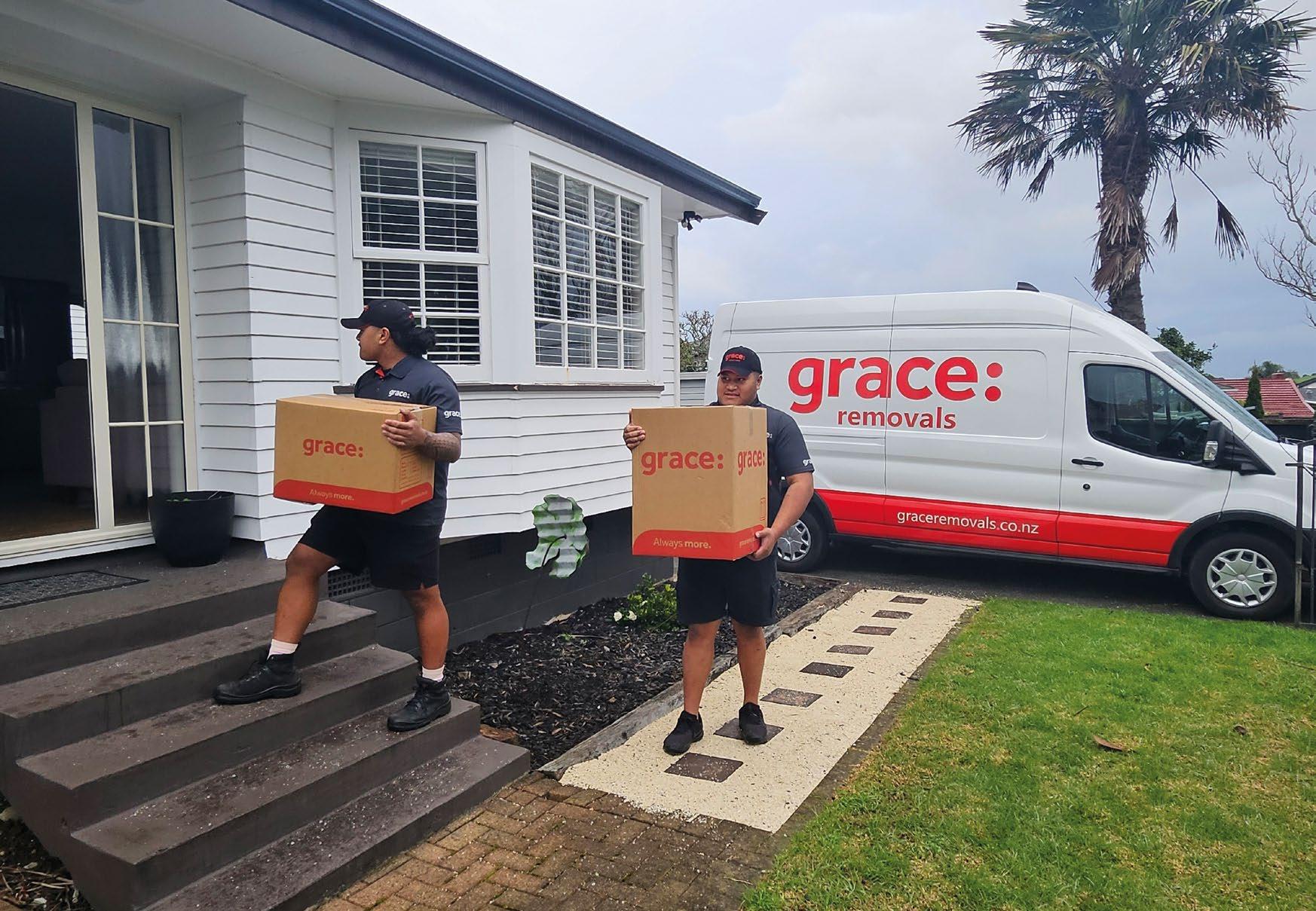






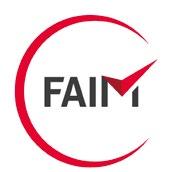
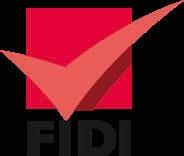
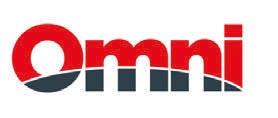
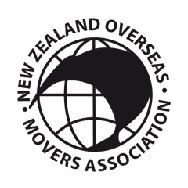

“The landscape may be shifting, but we’re ready to meet this – with experience, adaptability, and a clear vision for the future”
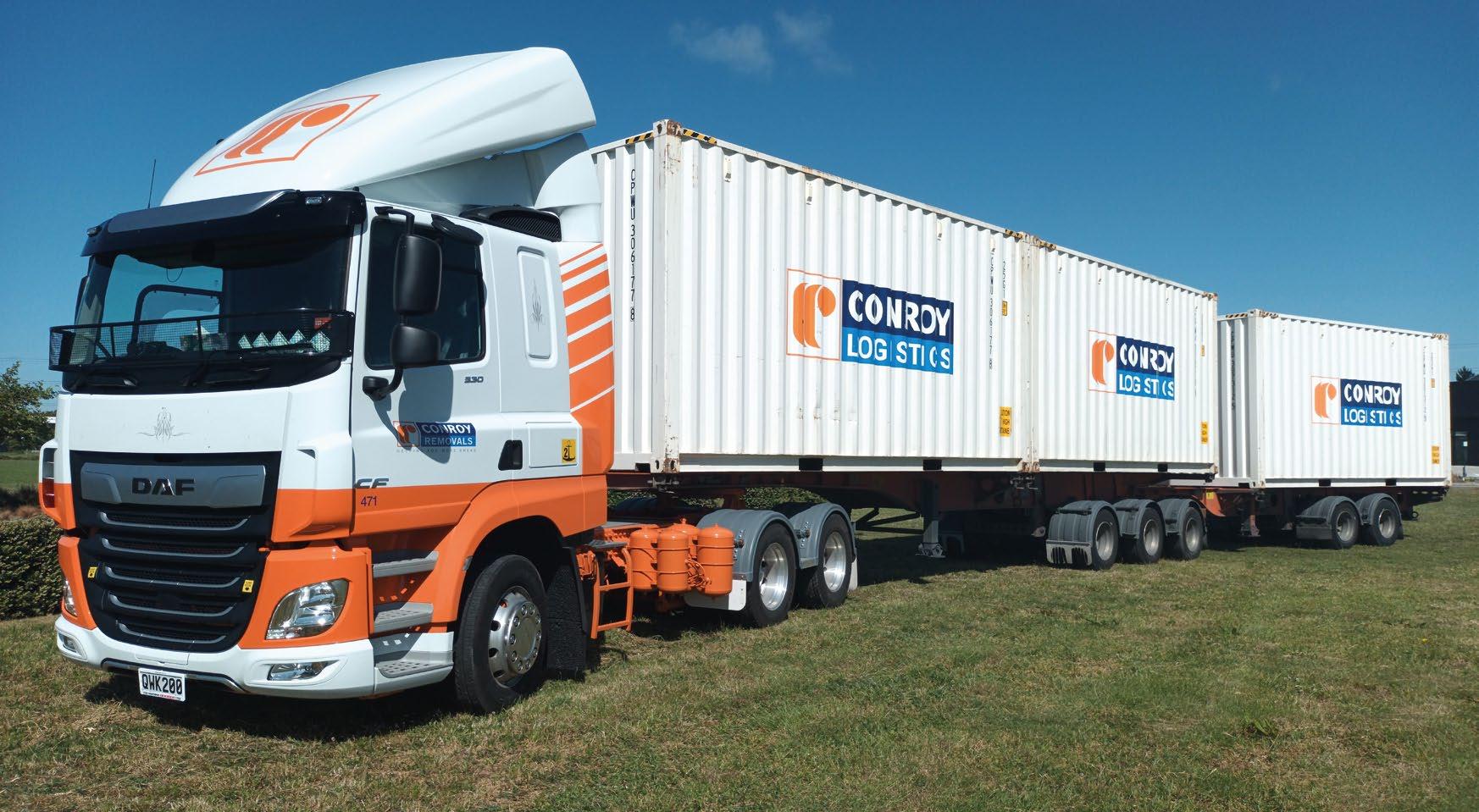
Moving Services (AMS) – ‘it accounts for 65 per cent of our relocation business’, says Schumann.
According to Mark Pitcher, Group Managing Director of New Zealand Van Lines, high inflation and interest rates have pushed ‘record numbers’ west across the Tasman sea. ‘Kiwis are a migrant bunch, and the attraction to Australia has always been there,’ he says.
Meanwhile, David Conroy, founder of Conroy Removals, reports ‘our largest and most sustained increase’ is in moves from New Zealand to Australia, with Europe and the Middle East ‘remaining strong’.
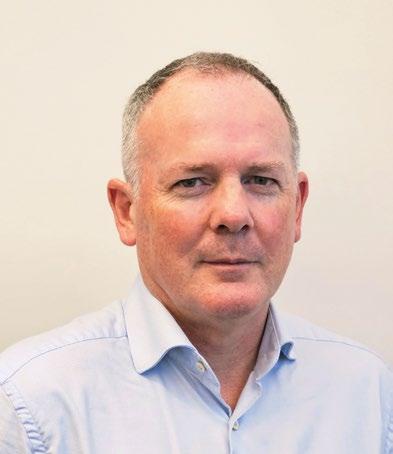
David Bardebes, National Manager, Grace Removals Group
FIDI veterans seem unfazed by the pattern of economic ups and down, Schumann among them. ‘As the New Zealand household relocations business has always run in cycles, with peaks and troughs, we feel there’ll be a shift to increased imports from Australia, with people returning home,’ he says.
Pitcher also believes the tide will turn. ‘Australia has been on a bull run, with net migration of 30,000 over the past 12 months. However, as the NZ economy improves, we’ll see the traditional cycle emerge, and the influx will return. I’ve seen four of these over my career.’
Yet the legacy of New Zealand’s draconian COVID rules persists. ‘Immigration pathways to residency were
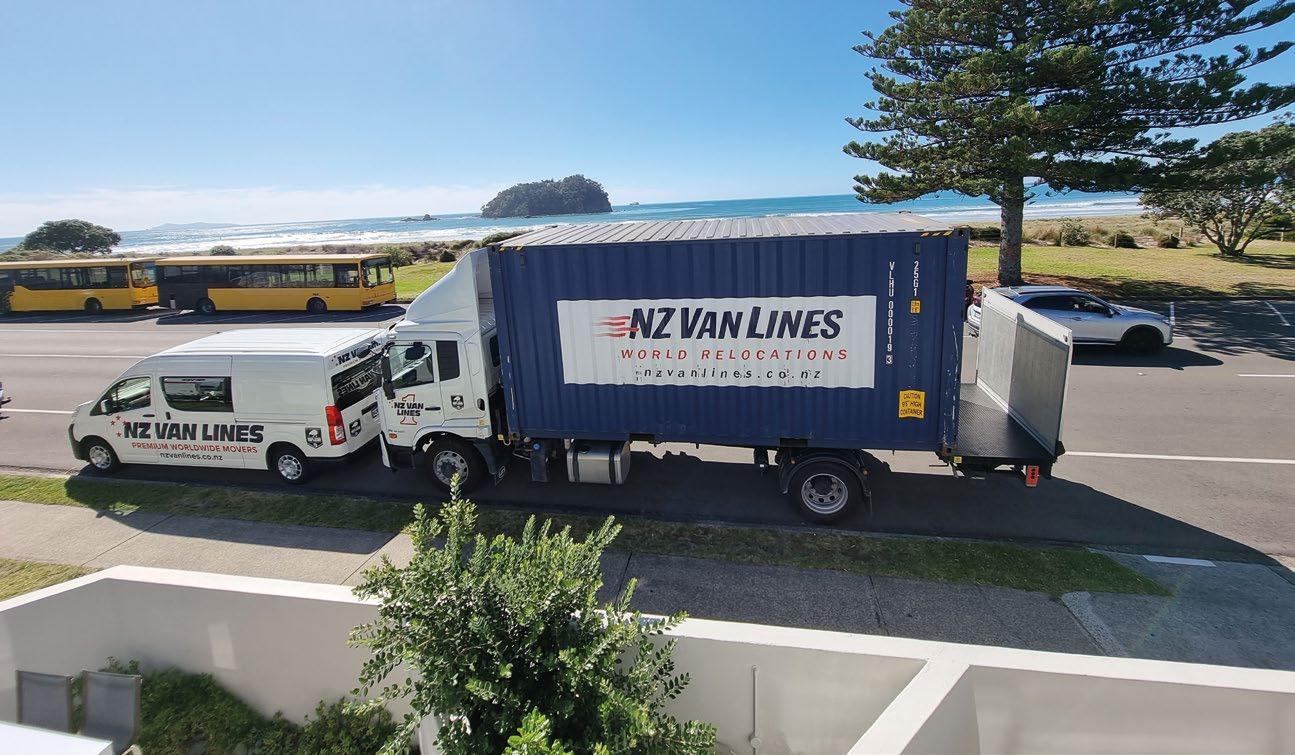
tightened, and although there’s been some loosening of restrictions, the process remains slow and complex,’ says Bell. ‘For many potential migrants, New Zealand no longer holds the same appeal it once did. Lower wages, high living costs and a perception of limited opportunity make other countries more attractive.’
Conroy appears more optimistic, pointing to the NZ Active Investor Plus Visa, an incentive for wealthy individuals wanting to live and invest in the country. It removes English tests, enables family inclusion and allows permanent residency, providing a high money threshold is met – at least NZ$5m (approximately US$2.95m). ‘The greatest level of interest has been out of the US, followed by Germany,’ Conroy says.
He also sees potential in New Zealand’s efforts to secure free-trade agreements – for instance, with India – and an NZ-Pacific Alliance that would see partnership with Chile, Colombia, Mexico and Peru. ‘These would significantly increase government and business moving opportunities. With established partners in these areas, we’re well positioned.’
Another substantial hangover from the pandemic years is the astronomical rise in freight rates, particularly affecting New Zealand given its remote position. ‘In 2021, Trans-Tasman costs surged by an average 74 per cent,’ says Bardebes. They have since dropped, but remain 28 per cent higher than before the pandemic. Rates to major ports such as Southampton, Antwerp/Rotterdam and Bremerhaven are 72 per cent higher.
Meanwhile, in the US, some ships have waited up to 50 days to berth because of severe congestion. Spot rates fluctuated wildly, sometimes by NZ$10,000 in a single month. Things have settled now, although rates remain 30 per cent higher than before the pandemic.
The impact has proved inescapable. ‘With singlehousehold move volumes affected by high shipping costs, there was a decrease in exports post-COVID, as people looked for the most economical way of shipping,’ says Schumann.

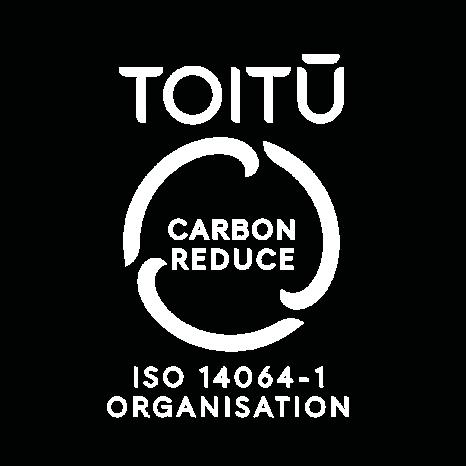
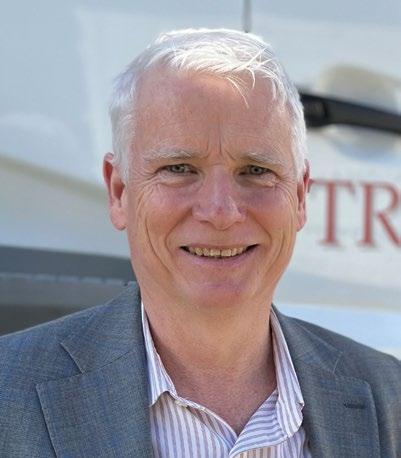
Graham Bell, Managing Director, Transworld International Removals Ltd

“Having tariffs finalised will provide clarity, and then we just need to adjust and get on with things”
Bell adds that securing reliable shipping contracts, equipment and consistent services remains a hurdle.
‘The removals industry in New Zealand is relatively small, which limits our leverage with carriers,’ he points out.
‘Through our work with NZOMA [New Zealand Overseas Movers Association], we’ve been advocating for more dependable shipping arrangements.
‘All we seek is a confirmed schedule and space – but even that remains a big ask in today’s environment. The removals industry has had to adapt. One area gaining traction is groupage shipping – a more cost-effective option for smaller moves – which has always been a core part of our business model. With more people downsizing or relocating solo, we’ve seen a noticeable uptick in enquiries, particularly for moves to Europe.’
Freight prices are just one headache, says Pitcher:


‘The past 24 months have been very challenging, with rapid inflation and supplier costs. This is compounded by wage pressure, “uneducated” competitor pricing, and the Suez Canal disruption adding three weeks to a 60-day transit to Europe. Shipping-line capacity is still an area of concern outside of the Trans-Tasman.’ That said, Pitcher reports export business as being ‘very robust, with record revenues over the past 18 months’.
President Trump’s chaotic policies have thrown another spanner into the works. ‘Decision-making involves a certain amount of gambling,’ says Conroy. ‘Having tariffs finalised will provide clarity, and then we just need to adjust and get on with things. With the US focused on operating domestically, we may see less inbound corporate business and possible retrenchments as employees return.’
According to Bell, one consequence of Trump’s leadership is an uptick in enquiries from expat New Zealanders considering a return. ‘But we don’t anticipate a significant rebound for at least another 12-18 months. It will take time for New Zealand to reestablish itself as a top destination for migrants,’ he says.
How to manage this state of flux? Mainly though diversifying and efficiencies – areas in which FIDI Affiliates are adept. Private clients represent most of Transworld’s business, but Bell reports ‘encouraging growth’ in corporate relocation, opening up new opportunities and partnerships. ‘We’re focused on expanding our market share and enhancing our services,’ he says. The company has full-service warehouses in Auckland, Tauranga, Wellington and Christchurch.
Bricks and mortar
Private cash upfront moves account for around 80 per
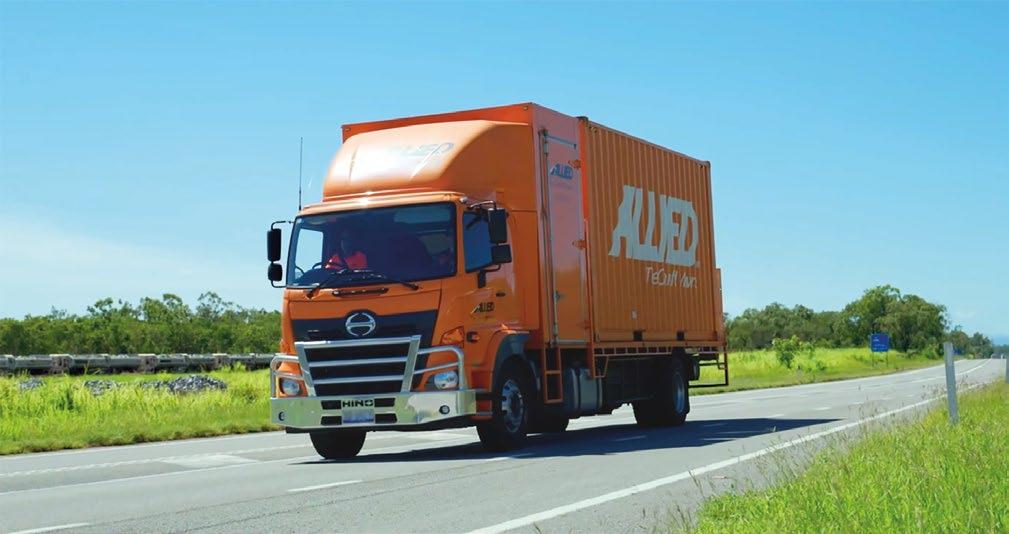
cent of New Zealand Van Lines’ trade. Pitcher says this has positioned his firm well in the current business environment through a ‘bricks and mortar’ approachowning its own fleet, facilities and containers, and employing permanent staff, as opposed to contractors and leasing.
‘Our strong brand awareness is crucial for direct consumer business through sponsorships with the New Zealand Symphony Orchestra and Royal New Zealand Ballet, which cements us as a household name,’ Pitcher adds. ‘Corporate business, with our NZ government contracts, supports COD. However, domestic intercity work has been depressed. As a result, we’ve diversified into office and warehouse relocations. It’s early days, but we’ve secured some large office moves – the most recent involving 2,500 employees – and several hotel fit-outs. Our pipeline is strong through to early 2026.’
Affiliates must manage the vagaries of a trade that’s notably season-dependent. ‘Few people like to move in winter or when the children are in school – summer and school holidays are the peak season for removals,’ says Schumann. ‘Competition can be fierce.’
There’s been a recent increase in local and national domestic moving, according to Conroy: ‘But rising costs are a constant and have to be carefully managed when competing to secure business.’
Conroy’s offer ranges from domestic to international moving and commercial logistics, including project management/third-party logistics warehousing. Groupage/consolidation is also part of daily business. ‘We’re seeing an increase in LCL [less than container load] and air shipments, particularly for corporate moves where [people] have a cash-out option,’ Conroy says. ‘We’re constantly striving to be more productive while improving services. New technology helps streamline
mundane processes, improve responsiveness and allow our people more time to provide a personalised service.’
Finding good staff can be tough, though, despite New Zealand’s higher unemployment rate. ‘We set high standards, particularly for operational staff who spend a lot of time with clients,’ says Bardebes. ‘They’re key to repeat business. We take time hiring, run thorough checks and invest in staff development. We also promote internally where possible.’
The surge in wages of a few years ago created challenges for businesses everywhere. But over the past 12 months, Bardebes feels the quality and reliability of removal workers has improved – ‘a welcome development’. That said, the job’s strenuous nature can be a deterrent. ‘Carrying heavy furniture up and down stairs doesn’t suit everyone, but it keeps you remarkably fit,’ says Schumann. ‘Many enjoy the job and each other’s company.’
And, some, the challenge. NZ Van Lines’ sister operation, The Moving Company, was recently summoned to dismantle and store three eagle sculptures, from The Lord of the Rings, hanging from Wellington Airport roof – each spanning 10m – a job mostly carried out at night while the airport was closed.
Few tales of the unexpected surpass that of the Grace team, however, whose packers arrived at a house to find a crowd outside, confronting the clients. The situation grew heated and the police were called. Yet it was the clients, whose business had gone into liquidation – leaving in its wake angry creditors – who were handcuffed and taken into custody. Meanwhile, goods packed by the Grace team were driven under police escort to a secure warehouse, where detectives searched boxes for evidence that later led to the clients being prosecuted for fraud.
What will the future look like for New Zealand’s FIDI members? Conroy sees ‘bundled’ services by way of moving and relocation support in a one-stop online offering becoming more popular, and ‘what was once reserved for corporate/VIPs will be more accessible’.
Bardebes is optimistic about 2026. ‘Inflation is under control, interest rates are easing and agricultural commodity prices remain strong,’ he says.
Meanwhile Transworld is braced for whatever life throws at it. ‘The landscape may be shifting, but we’re ready to meet this – with experience, adaptability and a clear vision for the future,’ says Bell.
“Domestic intercity work has been depressed. As a result, we’ve diversified into office and warehouse relocations”

Mark Pitcher, Group Managing Director, New Zealand Van Lines
With the new FAIM Standard set for launch soon, Sofie Vertenten, Quality Project Manager of FIDI’s FAIM Coordination Centre (FCC), gives us a sneak peek of what to expect

The next cycle of the FIDI FAIM Standard is on the horizon. To be voted on during the October General Assembly and scheduled for launch in 2026, the refreshed protocol introduces improvements that build on the existing framework in a practical and forward-looking way. Although FIDI Affiliates will be familiar with much of the content, you should prepare for some notable changes, too.
Following feedback about the confusion caused by the change in naming with FAIM 2022, we have decided to return to the previous naming convention. The upcoming standard will therefore be called FAIM 3.4 – a clear continuation of the trusted FAIM framework our Affiliates know well. This decision is about more than just labels. A consistent, recognisable naming system helps maintain clarity across audit cycles and reinforces the continuity of the FAIM programme for members and their clients.
“With
tighter auditing and stricter criteria, FAIM 2025 will support Affiliates in delivering consistent, high-quality service in an increasingly complex environment”
One of the most significant shifts in FAIM 3.4 will be in how audits are conducted. In future, all Affiliates will be audited remotely, increasing cost-efficiency. But beyond the move to remote auditing, we are also increasing the depth of our evaluations.
Auditors will no longer rely solely on documented procedures – they will be verifying if these procedures are reflected in practice, too. In addition, we are strictly enforcing the deadline to send documentation after the audit – apart from specific exceptions – to increase preparedness for audits and all-round accountability.
While the core structure of FAIM remains intact, we have taken steps to increase criteria in several key areas:
1. Cyber security
With growing threats across global supply chains, FAIM 3.4 strengthens the standard in nine out of 10 core principles (see box below). These updates will help
FAIM 3.4 is being strengthened in the following areas:
l Remote auditing
l Increased depth of audits
l Strongly limited seven-day evidence period
l Strengthened cyber security requirements
l Reinforced business continuity plan requirements
l More elaborate corporate sustainability reporting requirements
l Required use of customer feedback and claims for continuous improvement
l Enhanced supply chain management requirements
l Monitoring and respect of FAIM related deadlines (Financial Assessment & IFA).
Affiliates better protect their company, customers and partners. These enhanced safeguards reflect a need to actively manage cyber risks, ensuring greater resilience across operations, systems and the wider supply chain.
2. Risk management
Recent global disruptions have demonstrated how quickly operational risks can escalate. The revised standard includes greater business continuity plan (BCP) requirements, ensuring that Affiliates can respond effectively to major incidents - whether it be natural disasters, cyber attacks or supply chain failures.
3. Corporate sustainability
Today’s customers and corporate partners are asking tough questions about sustainability and FAIM 3.4 checks Affiliates are ready with a response. It introduces more detailed requirements with regards to reporting and accountability, helping firms align with environmental, social and governance (ESG) expectations across the supply chain.
4. Customer feedback
With the premise that understanding customer experiences is vital to stronger company performance, the new standard stipulates analysing and using customer feedback and claims for continuous improvement, fine-tuning services and correcting recurring issues.
5. Supply chain management
FAIM 3.4 encourages Affiliates to identify their critical suppliers, establish contingency options and regularly evaluate supplier performance. This ensures they are aware of risks and are ready to react to potential disruptions to their supply chain.
6. Accountability
Finally, FAIM 3.4 will reinforce the importance of respecting and monitoring deadlines, such as the Internal FAIM Audits and the FAIM EY CRB Financial Assessment. Compliance with these deadlines is not optional, and non-adherence will lead to consequences. Affiliates should no longer rely on the FCC to keep reminding them, but will need to take accountability and demonstrate their ability to follow up and meet deadlines linked to their FAIM certification.
To summarise, rather than a complete reset, FAIM 3.4 refines and improves on its previous versions. It maintains the strong foundation Affiliates expect from FAIM, but tightens controls and ensures Affiliates are adequately prepared for the challenges ahead, raising the bar overall.
With tighter auditing and stricter criteria, FAIM 3.4 will support Affiliates in delivering consistent, high-quality service in an increasingly complex environment.
l More information on the latest FAIM Standard will follow in the coming months. For any questions please contact fcc@fidi.org

As nominations for the FIDI Board open on 3 November, it’s a chance for you to step forward – or nominate someone in your organisation – to help guide the future
of FIDI. Jesse van Sas explains how
Nominations for the FIDI Board open 3 November this year.
I often say that FIDI governance can seem complicated. And, to be honest, it is. But that complexity exists for good reason: to uphold principles of fairness, equality and transparency in how our organisation is run. We might not always get it perfectly right, but our processes – from the FAIM programme to our Board elections – are designed to protect what makes FIDI strong: our shared commitment to quality, accountability and, ultimately, trust.
At the heart of this structure is the FIDI Board. It is this body that sets our strategic course, ensures we remain true to our mission and safeguards our leitmotif that ‘we do not compromise on quality.’ As we prepare to open nominations for a new Board member on 3 November, I want to take a moment to demystify the process, explain who can apply (or be nominated), and hopefully encourage more of you to step forward –or put forward someone you believe would be an asset to our community.
Let me start by addressing the most common reasons people hesitate: ‘It’s too much work,’ or, ‘I simply don’t have the time.’
Yes, being a FIDI Board member is a serious commitment. Our Board meets regularly, both online and in person, to discuss strategic matters for our organisation and the wider industry. It is an important task that should not be taken lightly. But the Board is not alone in its task: the day-to-day running of FIDI is handled by our highly capable office team. They manage the operational heavy lifting, ensuring that
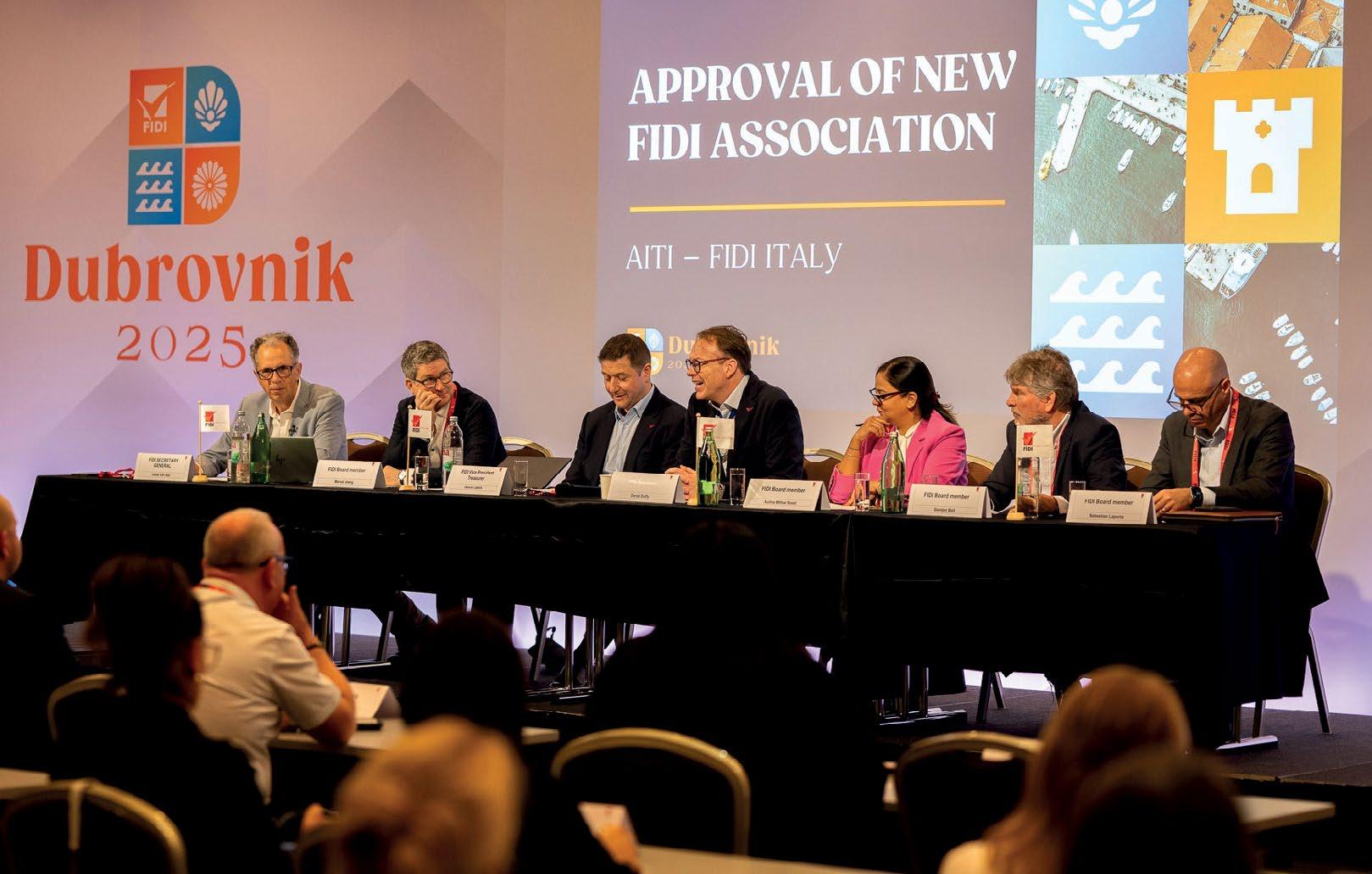
the Board can focus on steering strategy and vision, not on the administrative grind.
Time and again, I hear from past and current Board members how much they’ve gained personally from this experience: the professional growth, the satisfaction of shaping the industry’s future, and perhaps most importantly, the lifelong friendships forged with peers from around the world.
FIDI is a truly global community. Our Affiliates come from every corner of the world and represent businesses of all sizes and specialisations within international moving and relocation. It’s right that our Board reflects this same diversity.
We’ve made significant strides in this area: our first female President, Ebru
Demirel from Türkiye, took office in 2019, followed by Laura Ganon from Brazil; milestones that underscore how leadership at FIDI is open to all. Whether it’s geography, company type or professional background, we believe diversity on the Board strengthens FIDI by bringing a wider range of perspectives and ideas to the table.
Formally, the FIDI Statutes lay out the eligibility criteria. Any Board member must be an owner or officer whose principal business interest is with a FIDI Affiliate, or an employee whose main employment is with a FIDI Affiliate.
But beyond these official requirements, we also look for certain qualities that are essential to fulfilling a Board role effectively. We need people with strong, broad-based experience in our industry, who hold a senior position within their company, and who have demonstrated leadership, not only in running their own business, but also through active involvement in our sector.
The FIDI Board guides the strategic direction of our organisation and represents the interests of Affiliates
worldwide. This calls for individuals who bring deep knowledge of the moving and relocation landscape, a solid track record of decision-making and the ability to look beyond their own company to serve the global FIDI community.
So, if you, or someone you know, fits this profile, and shares a passion for shaping the future of our industry, we encourage you to think seriously about this opportunity.
the process works
Here’s how the upcoming nomination cycle will unfold:
1. Call for applications –3 November 2025
From this date, nominations officially open. Candidates can nominate themselves, or anyone can nominate a peer they feel would be a strong addition to the Board. Applications are submitted by email to the FIDI Board Nomination Committee (BNC) bnc@fidi.org
2. Deadline for applications –15 December 2025
All nominations must be received by this date. Rest assured: the list of candidates is kept fully confidential, known only to the BNC members and me.
3. Candidate questionnaires –by 30 January 2026
The BNC sends each candidate a questionnaire that digs into their vision for FIDI, their experience, and how they see the future of our industry.
4. Evaluation and selection
Based on these questionnaires and objective criteria defined in our nomination process, the BNC recommends the best candidate to the Board for approval.
5. General Assembly vote –13 May 2026
If approved, the candidate’s name will be placed on the agenda for our General Assembly at the 2026 FIDI Conference
Simone Percy, past BNC Chair
Joining the FIDI Board is a career milestone and a chance to shape the future of a global industry built on trust, precision, and human connection.
As a Board member, you help steer the direction of this worldwide network, influencing standards, strategy, and innovation across our entire sector. It’s also an opportunity to champion a cause you’re passionate about, one you believe will strengthen our industry and help guide it into the future.
If we want FIDI to remain the global leader in quality it is today, we need passionate, forward-thinking people to help steer it. Serving on the FIDI Board is truly an experience of a lifetime, a chance to broaden your perspective, to drive meaningful change, and to be part of something bigger than yourself.
Laura Ganon, past FIDI President and FIDI Board member from 2015 to 2023
The experience of being part of the FIDI Board was truly transformative for me. It pushed me to grow as a leader, stepping outside of my comfort zone. I gained invaluable insight into governance, ethics, building consensus and long-term vision, and I developed a greater sense of
responsibility for shaping the future of the association and our industry.
Most importantly, it taught me the value of service and giving back, realising that our contributions can leave a lasting, positive impact on others and help raise the standards for everyone. And, I cannot forget, it taught me to wait for my turn to speak!
From an industry perspective, serving on the FIDI Board contributes to the collective advancement of our profession. By helping to shape policies, driving initiatives such as the development of FAIM, the Board ensures that the industry keeps evolving to meet the needs of members, customers and society at large. It’s incredibly rewarding to know that the decisions and actions we took not only supported the FIDI network but also raised the bar for quality and professionalism across the entire industry.
In the end, being part of the Board is a way of giving back – using your experience and perspective to help create a stronger, more resilient, and more respected industry for the future.
To anyone who is undecided about coming forward, I would scream: ‘Don’t hesitate!’ There is absolutely nothing to lose and so much to gain. Get out of your comfort zone and make a difference not only in the industry but in your career and personal growth.
in Osaka, where the FIDI Associations will vote to confirm the appointment.
The successful candidate will then begin their term immediately, serving for a minimum of two years (renewable up to three times).
Be part of something bigger
I often say that being on the FIDI Board is about steering FIDI; but also about shaping the future of our industry. You’ll gain a broader perspective, develop new skills and join a close network of fellow leaders who share your passion for raising standards across the globe.
As we approach the opening of nominations, I hope you’ll take a moment to reflect. Perhaps this is your time to step up, or to encourage a fellow industry colleague who you believe could help lead FIDI into its next chapter.
If you’d like to know more, don’t hesitate to contact me or any current Board member. We’d be happy to share what this unique journey has meant to us.
Like many of us, I joined our family business after completing my education. Family businesses often involve a lot of hard work, but don’t always follow a corporate structure. Being involved in a professional, institutional organisation like FIDI offered valuable experiences at every level – and especially as a Board member, where the opportunity to contribute is even greater.
During my nine years on the FIDI Board, I gained insights that helped me grow personally; and that learning also brought clear benefits to our company.
What I value most is the deep exposure to FIDI’s services. For instance, while we initially aimed only to achieve FAIM certification, my experience on the Board helped me understand what it means to continuously operate in line with FAIM standards – not just reach them once.
If you’re truly passionate about this profession and can dedicate the time, I believe it’s a deeply worthwhile experience. Of course, it’s a personal decision; for me, it was an incredibly rewarding period. I had the chance to closely follow developments in the industry, contribute to meaningful initiatives, and make decisions alongside respected peers. To have that level of influence in an industry you’ve invested so much in is both fulfilling and unforgettable.
While international movers often begin with a Google search, many businesses miss opportunities because they aren’t visible enough at this critical moment. Laura Moxham, Managing Director of YBA (Your Business Angels), shows us some common mistakes and solutions –ahead of an exclusive FIDI webinar for Affiliates on this essential topic

Every day, people are searching online for exactly what your business offers – whether it’s complex international relocations, corporate moves, private overseas shipments, or another service. But if you’re not showing up when it counts, potential customers will quietly drift toward a competitor who does.
It’s not about having the flashiest website or spending the most. It’s about being found at the right moment. And for many businesses, particularly those in competitive international sectors, that visibility just isn’t there.
So, why is that? And, more importantly, how do you fix it?
This is exactly what we’ll be covering in an FIDI-exclusive webinar on 25 September hosted by YBA (Your Business Angels), a Google Premier Partner and top three per cent agency, that works closely with organisations including IAM, BAR, and the SSA.
Let’s start with one of the most overlooked areas: international work. These usually high-value jobs tend to come with better planning, bigger budgets, and customers who are ready to make a serious commitment. They often come from thoughtful, emotional, decisions – and often begin with a Google search.
Here’s the opportunity: international search terms tend to be more specific. That means less
competition and clearer intent. Instead of someone typing ‘removal company,’ they’ll search for ‘moving from London to Spain’ or ‘shipping furniture to New Zealand’. These are the kinds of searches that give you a clear window into what they want – and the chance to match your ad messaging directly to it.
The good news is, getting visibility on Google in these moments isn’t as complicated as many think. At its core, it works like this: someone searches for a specific route or service, your ad shows up at the top, they click, land on a page that feels relevant and trustworthy, and then they get in touch. That’s it. Right place, right time.
But here’s where most businesses slip up.
We frequently see ads pointing to a homepage that has a variety of messages and no clear journey
for the user to find that they want. It’s like walking into a shop that sells everything from shoes to sandwiches when you just wanted a new jacket. The experience doesn’t feel tailored to their requirements. We also see businesses targeting broad terms, when more buyer- intent words – such as ‘UK to Dubai removals’ – with a matched landing page that, for that route, tends to produce far better results. The more specific the search, the greater the intent and the better enquiries it generates.
Timing also plays a huge role. We consistently see seasonal spikes in international enquiries – spring for summer relocations, autumn for moves ahead of the new school year. But the trick is to start before the spike. Being visible when the demand starts to rise is what gives companies an edge. Those who

delay often miss the wave entirely. How should campaigns be structured? Rather than putting all destinations into one big ad campaign, the smarter approach is to break them down by route. That way, the ad and landing page can be tightly matched: ‘Need help moving to Australia?’ followed by a page with relevant copy, FAQs, and an easy quote form. That level of personalisation increases the likelihood of turning a click into a customer.
YBA has worked with many firms that had tried Google Ads, but felt it wasn’t working. A client was spending consistently on ads but getting few international enquiries when they joined us. After reviewing their account, we found the structure was too generic, the landing pages weren’t relevant, and they had no visibility on which keywords were performing. Once we overhauled the setup, tailoring campaigns to routes, updating the copy, and setting up simple tracking, they started getting more than 10 qualified international leads
per month. These were high-ticket enquiries they would never have seen before.
So, what works right now to help convert the traffic to enquiries? Keep it simple. Build destinationspecific landing pages. Make sure your phone number is clickable on mobile. Use short enquiry forms. Show clear trust markers –things such as insurance, FIDI membership, and testimonials. And make sure your website looks good on a phone, because that’s where most searches are happening.
It’s also important to track where your leads are coming from. Many firms have no idea which ads are working, and which aren’t. It means they can’t improve performance or double down on what is generating revenue. With a few simple tools, you can set up clear tracking and know exactly which keywords and ads are pulling their weight.
The digital landscape doesn’t need to be complicated, but needs

to be intentional. With a clear message, and a smart structure, Google Ads can be one of the most powerful tools in your lead-generation toolkit, letting you show up for the right customer, at the right time, with the right solution.
If you’re ready to grab more high-value international enquiries, now’s the time.
Join us on 25 September for the FIDI-exclusive webinar, where we’ll walk you through the three biggest mistakes companies make with Google Ads, how to avoid them, and what’s working right now to bring in quality international leads.
If you’d prefer a personalised look at how visible your business is today, grab your free visibility review – no jargon, just honest advice on how to improve your Google presence – and take away an action plan. Book a free review at: ybappc.team/fidi
FIDI Affiliates can book a place on this free and exclusive webinar via the FIDINET calendar
“The digital landscape doesn’t need to be complicated, but needs to be intentional”
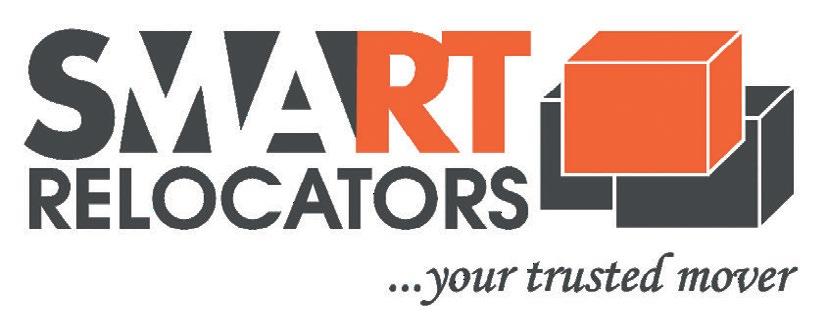
At Smart Relocators, we aim to be the most trusted partner in providing seamless International Moving, Shipping and Storage Services from Singapore and beyond. Simplify your supply chain today with our full tailored suite of origin and destination solutions across all freight modes.
www.smartrelocators.sg admin@smartrelocators.sg terence@smartrelocators.sg











Following the example set by Affiliates and the moving sector overall, FIDI is driving cooperation to support shared industry innovation and progress. FIDI Secretary General Jesse van Sas tells us more
If there is one thing that sets international movers and DSPs apart in the global mobility industry, it is that they are condemned to work together from time to time.
Not a single mover in the world can claim that all their global operations are under their own control. Even the biggest ones need local assistance, in whatever form or shape, to help them execute the full door-to-door move or deliver the whole relocation experience. On top of that, almost everyone is sometimes the booker of the business and sometimes the receiver of the business. We all scratch each other’s backs.
Cooperation in our business space is, therefore, second nature. We need each other and it is rare that movers or DSPs exclude cooperation. Even when there is a conflict – and that happens regularly in the complex world of relocation – all efforts go to restoring the relationship as soon as possible, because, before you know it, you need each other again.
Associations in the industry, such as FIDI, have behaved in the same way. Logical, of course, as FIDI is comprised of moving companies that are very much used to cooperating. FIDI has had, and still has, close ties with other associations, including EuRA, OMNI, werc, IAM and FEDEMAC. We exchange information, meet regularly, attend each other’s conferences, and even share products, such as FIDI’s Professional Cooperation Guidelines.
At the same time, however, we keep some distance from each other. After all, there is an overlap of services, such as financial protection, training and even conferencing. These areas of potential competition add a cooler note to the relationship.
There is nothing wrong with a bit of competition, of course. It sharpens service delivery and triggers association leaders to continuously focus on value creation for the membership. It is good for the members and for the industry.
In the case of associations in our relocation industry, however, competition is not always good. It can result in duplication of effort, all at the cost of the respective members. Many of the companies active in this relocation space are members of two, three or
four associations. As innovation and developments are often perceived as the same at every one, members are confronted, over time, with increasing costs for professional memberships. When margins are under pressure, this is hard to swallow.
FIDI, along with other associations, has recognised this and is working hard to get more sense into association cooperation. The Coalition for Associations in Global Mobility, of which FIDI is a founding member, is a great example of this.
The collaboration was driven by the need to tackle challenges that no single association can solve alone. By harnessing our collective power to address these challenges, providing a structured forum and delivering leadership, issues such as compliance, sustainability, ethics, advocacy and uniform processes become much more manageable and less costly.
Since our first meeting on this cooperation, during the FIDI Conference in Cannes in 2022, and subsequently at the EuRA conference in Seville the same year, I have felt a genuine desire among all the coalition partners to work closely together, beyond our own field of moving or DSP, or corporate housing.
That is a significant development in our association space, and one that we should continue to build on –and perhaps even extend. What started off as a pure sustainability initiative is growing into something bigger, all with the purpose of helping the industry with shared resources, expertise, influence and visibility.
The Coalition calls on other associations in the global mobility industry – whether small local ones, regional ones, or even global ones – to join forces with it. Each of us will still have our own unique purpose, tailored to the membership we serve, but for those challenges that transcend our individual remits, the Coalition may be the best answer.
Reach out, and let’s talk.

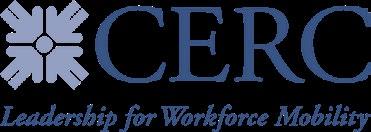






As she takes on leadership of FIDI’s Mediterranean Association, former FIDI President Ebru Demirel tells us why she is returning to a FIDI governance role and discusses the essential part regional membership engagement plays in the strength and success of the global organisation overall
After working for many years in a FIDI Board position, becoming part of its governance as a delegate representing one of FIDI’s active associations is important to me in many ways. During my time as FIDI President, I experienced firsthand that the strength of FIDI comes from its members – and our organisation can only be as strong as the level of participation we, the members, put into it.
From this work, I came to understand the significance of being an engaged delegate. Aside from FIDI’s office staff, everyone contributing to governance does so on a voluntary basis – so it is absolutely crucial for delegates to be active participants. That’s why, for as long as I work in this sector, I will strive to be active and engaged.
Getting people involved has always been a challenge, of course. But I believe that, in terms of participation, FIDI is in a good position – particularly when it comes to engagement from family-owned businesses.
In my view, the biggest reason for this is FIDI’s dedicated efforts beyond the annual conferences. It’s so valuable that FIDI organises regional online meetings to connect with its members. Through these briefings, FIDI provides detailed and transparent information about its services – and I fully
support the continuation of this practice. Being a FIDI Board member or President involves addressing a wide range of important matters, as well as developing strategies for FIDI and deciding the direction of the federation. As delegates, while we communicate our members’ expectations to the FIDI Board, we must also contribute to developing the best solutions overall by discussing the services FIDI provides and its new initiatives.
In terms of member numbers, FIDI Mediterranean is smaller than many other associations within FIDI. Nevertheless, in recent years, it has expanded with new members, and has increased its voice. It includes companies that have been members for many years, bringing significant industry experience and a deep understanding of FIDI. I believe that the fresh perspectives and expectations that new members bring – alongside the knowledge and stability of long-standing ones – will further enhance our association’s importance.
Of course, what FIDI can do is limited – by which I mean FIDI cannot directly change the forces driving rising costs or declining

business volumes, for example. However, it does support its members by providing essential and well-established services such as FAIM and FASI. The continued development of FAIM is important and, naturally, it would also be valuable for FIDI to seek ways to ease the burden on its members in relation to rising costs.
We are going through a challenging period geopolitically, and there is not much FIDI can do about that. But for as long as I serve, my main priority will be to act in line with the expectations of the membership of FIDI Med.
Before joining the FIDI Board, I thought governance was always someone else’s responsibility. However, I came to understand that no matter how much effort the Board puts in, it’s very difficult to achieve ideal outcomes without the participation of FIDI Affiliates
When we’re outside the processes, it may seem normal for things to move forward without us. But – especially during these challenging times for our industry – I truly believe that engaging with FIDI benefits all of us. That’s why I genuinely enjoy being involved in governance within this sector, to which we dedicate our efforts every day.
Having entered global mobility almost five years ago from outside the industry, CEO of Scandinavian Affiliate Alfa Mobility Annika Roupé believes that assets – from skilled people to in-house trucking capacity – provide solid foundations for a successful, modern moving business. But so too do collaboration, care and a willingness to explore new service areas.
FIDI
Alfa Mobility CEO Annika Roupé started her career in multinational finance, with roles at companies including Tetra Pak, Alfa Laval and Ericsson, where she was responsible for the Latin America mobile division. ‘The company was building networks across the region,’ she says. ‘While technically cellular is complex, I would say that the scope of the project management required to carry out an international move makes it just as complex – or maybe even more so.’
It was this complexity that attracted her interest when, mid-pandemic, a headhunter unexpectedly called about a position at Alfa Mobility, the Swedish mobility business that was acquired by investment firm Pamica in June 2023 and which has operations in nine locations, including Stockholm, Copenhagen, Helsinki and Oslo. ‘I thought they’d called the wrong Annika’, she says.
Roupé was also surprised and driven by the potential she saw in the company and for the moving industry.
‘The owners at the time had the idea that the international moving business would evaporate and that we would only focus on DSP and immigration,’ she says. ‘But I realised quite quickly that this assumption was wrong. It is my firm belief that international moving is changing – but it will not go away.’
Roupé convinced Alfa’s owners to change strategy in the parts of the business where international moves continue to play a key part. Under the four and a half years of Roupé’s leadership, Alfa has grown from 100 to 500 employees and acquired a domestic Swedish business, too.
‘I believe the moving companies that have their own trucks and staff will be increasingly important’, she says. ‘It’s the reason we purchased a local company. I felt if you own the contract, but you don’t own any assets – whether that is the consultants or the vehicles – you will be squeezed in the middle.’
Roupé adds that those companies with their own DSP or immigration consultants – two further sectors in which she sees margins recovering – are also in a strong position.
Meanwhile, she expresses concern for the RMC sector, which, she notes, also covers some of Alfa’s business. ‘I think this model is under heavy pressure,’ she says. ‘During the past 10 to 15 years, many global
contracts have been owned by one single contract owner, and they have pushed down the price of those who are actually doing the job – the ones with the staff and the trucks – to the point where many of these companies have struggled to survive or have even closed. If we look at Europe, it’s now hard to find enough of these companies – so they should gain going forward.’
These areas, where businesses own assets and do work that cannot be done by AI, is where Roupé sees potential for increasing margins – and are potential targets for the business. ‘We are interested in looking at increasing capacity on the road,’ she says, ‘as I think this is where the growth is going to be’.
Aside from the basic logistics of a move, she emphasises the opportunities for businesses to look after the peace of mind of transferees and their families with empathy and handholding services – an area she says is often undervalued and underdeveloped as a market segment.
‘We speak to big companies and what they ask for is peace of mind,’ she says. ‘They want their employees to be as productive as possible – and not worry about their family or other things. If we can get them in a mental state where they are calm and confident that their move is going well, the kids will go to a nice school, immigration is taken care of for their family members, they will be productive at work’.
These services extend beyond DSP and immigration, she adds, particularly for younger transferees. ‘Perhaps they are moving straight from their parents’ house and they’re worried about living alone,’ she says. ‘This is a big risk; if they are not happy they will go back. So can we help them find clubs and social networks for them to be involved in, for example’. While the next generations of assignees may be moving lower cubic meterage than their predecessors, they need connection and care – at a consultancy price that is negligible compared with the potential costs of an aborted move.
Roupé says public-sector moves, particularly military jobs, are on the up and believes the ‘war on talent’ will continue to drive the global need for relocation. She agrees that move volumes will decrease, but not by as much as the 20-30 per cent figure that some predict, and sees a strategic move towards developing new services and holding assets as having the potential to
“We speak to big companies. What they ask for is peace of mind. They want their employees to be as productive as possible and not be worrying”

replace revenue lost to any fall in square meterage.
‘I don’t think we will see a 20 or 30 per cent fall, even though that’s what some companies are looking at right now,’ she says. ‘Yes, the number of moves will go down overall – some parts will be smaller, some will be bigger. We need to understand who the customers are, who is moving and why they are moving.’
This will require careful thought about the correct level of investment in trucks and people and how to reach customers with new services, including the lumpsum segment. As a result, Roupé and the Alfa team are looking at ‘should we invest in more assets, and how do we capture and charge for the handholding bit’.
In addition to thinking in an agile way about the opportunities, Roupé believes the whole moving business needs to get better at the way it communicates with and sells to its customers, particularly in the private market.
People from the moving industry and beyond who have inspired Annika include:
l Jan Carlzon, previous head of Scandinavian Airlines System (SAS), who developed the ‘upside-down pyramid’ theory, which empowers front-line staff to take responsibility and make decisions: ‘To me it’s very important from a leadership perspective to be humble and to listen.’
l Brené Brown, US academic and author: ‘There’s so much, but I love her book The Power of Vulnerability.’
l Andrew Cummins, Alfa Mobility’s Move business area COO: ‘He has been a great inspiration and teacher to me.’
l FIDI people: ‘Ebru [Demirel, past-FIDI President] is a great inspiration –I admire her; Cedric Castro; William [Tighe] at IrishRelo.’
l Her staff: ‘I really get inspired by the guys and girls who are doing the job. I like the leaders, too, those with a strategic mindset but who are also able to roll up their sleeves and do the hard work.’
“I believe that once we understand our customers’ needs, which can appear complex initially, the solutions are relatively simple”

‘In my four and a half years in this industry, I have learned how reluctant we are to talk about how good we are at doing what we do,’ she says. ‘We have such a small window of opportunity when we are with the moving transferee. We need to understand their needs, counsel them, and make sure we really tailor our services to their needs. And we need to ask ourselves “Can we upscale our services to ensures their needs are met and within their budget.”
‘I do think we presume our clients understand what we’re talking about, which might mean we miss an opportunity to sell them something they actually want –like export wrapping for grandmother’s table or another precious piece of furniture, when moving standards only require blanket wrapping. Introducing clearer communication helps support good customer service, upholds quality, and could involve promoting the FAIM Standard to clients too,’ she says.
Communicating well is generally good business practice, Roupé adds, highlighting the tangible power of direct, straightforward contact with clients. ‘We see claims are always up during high season, naturally, because we’re carrying out a lot of moves. But when we actually talk to our customers throughout the move instead of emailing them – which we do a lot in this industry – our claims ratio goes down so quickly, even though nothing different has happened.
‘If you do this, they understand and feel connected. They feel they are being looked after.’
Roupé – a trained counsellor who runs sessions with young people in her spare time – underlines how important understanding of psychological motivations and being authentic are to doing good business.
‘It’s interesting to be trained in psychology and be a leader. I think about myself and how I behave when business is hard – and it’s not easy,’ she says. ‘Even though I know how I would like to behave, and even though I have worked on myself a lot, I can still be a crappy leader at times. So, I understand when the
pressure is on it’s not easy for my colleagues either.
‘If we can open up to our own insecurities, it doesn’t mean weakness, it means strength,’ she says. ‘If I can admit I don’t know everything, if I can listen, I can really let myself and my staff grow.
‘I believe that once we understand our customers’ needs, which can appear complex initially, the solutions are relatively simple. We need to unravel the complexity and deliver straightforward solutions,’ she says.
Roupé believes international networks – such as FIDI’s – and the sharing of resources could be an increasingly rich source of business opportunities, particularly with select smaller collaborations from the wider community.
‘Maybe you need to partner closely with a few players and work deeper together,’ she says. ‘Maybe you can share a sales resource, work on strategy or service offerings together. If you have two or three companies you work with and feel confident with, maybe you can start to talk about pricing models. I don’t mean cartels; more asking things like “how do we price” and “should we charge extra for additional export wrapping?” If you look at other industries, they are so good at pricing; they are pricing everything.’
Roupé believes that movers who focus on the bigger picture – that moving is about more than just logistics – will be those best able to develop meaningful new service areas into the future.
‘There is a danger that we are so proud of being movers that we forget why it is that we are moving people. For corporates, for example, it’s because they are looking to either attract people or retain them and they’re training their youngsters to become executives,’ she says.
‘We need to remember that we’re supporting this process – we’re helping people get into and feel comfortable in their jobs. When we do this, our services can be different and more than just the truck and the packing. It’s all a matter of perspective.’









































Scan to connect




Their honeycomb is strong and reliable, just like our international moving, packing and delivery services

Int’l Moving


Relocation Services
DSP (V&I, Home finding, settle-in services)

Pet Transport


Automobile Transport
Global Logistics

y Int’l Moving
y Relocation Services
y Pet Transport
Our service scopes
y Automobile Transport
y Project Cargo
y Sea &Air Freight
y Storage (RMS)





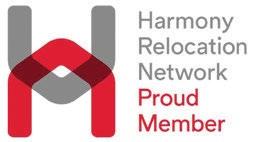
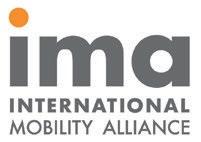

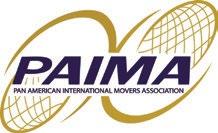

FIDI’s trainers and company heads who have benefited from in-person EiM, MiM2 and LiM courses explain why they invest in the industry-leading educational institution
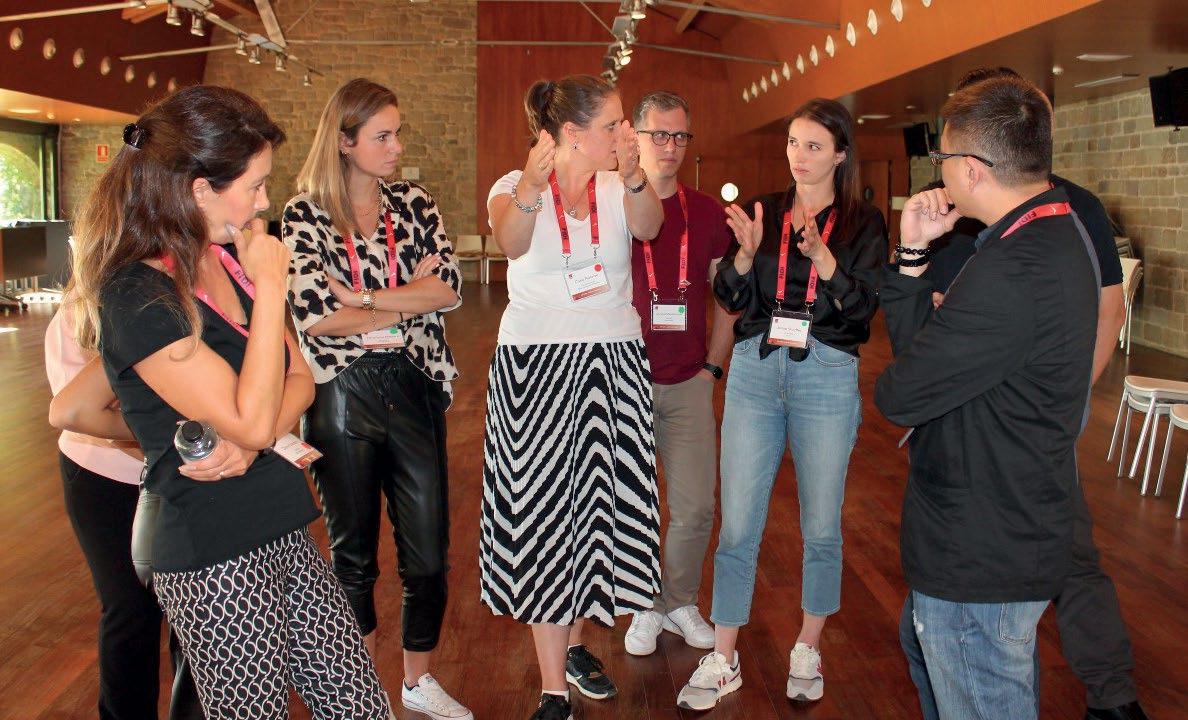
During the opening session at this year’s FIDI Conference in Dubrovnik, FIDI Academy trainers
Derek Duffy and Sara Lyrum Kronkjaer led discussions about the lasting legacy our association’s Academy leaves on the students who take its in-person courses and the businesses in which they work.
Lyrum Kronkjaer, Group Director at Aspire Mobility Group, took part in her first FIDI Academy programme in the Netherlands in 2001, under ‘pioneer and legend’ Michael Scott. She is now one of the Academy’s longest-standing and lead trainers, and spoke about how being involved strengthens employees’ international network – which means lifelong friendships, but also connections that will benefit their everyday work.
‘By the last day of the course, the students are the best of friends – and usually remain friends forever, said Lyrum Kronkjaer. ‘Some of the people I trained with during my first Academy are still some of my best friends in the industry,’ she said. ‘The extent to which you will go above and beyond to help your FIDI Academy classmate is indescribable –it’s amazing.’
For Duffy, President and co-owner of Armstrong Moving, it is about what happens at the business when his staff return after their
training – what he terms ‘Monday morning magic’. ‘After a week of training, I cannot describe the energy and passion they bring back to the office,’ he said. ‘It’s unbelievable. You’ve transformed that individual, given them energy.’
Gosselin CEO Marc Smet told the conference why his business is such a strong supporter of the Academy. ‘For our people, training is a recognition… it’s a way of rewarding and retaining them. We need good people to keep building our organisation – and the Academy is a big part of that.’
Bill Lloyd, Managing Director of Asian Tigers Indonesia, has experience of the FIDI Academy as a student and has subsquently sent staff on its courses. ‘There’s nowhere else you can get hands-on industry-specific education that the Academy offers – as well as the longterm friendships,’ he said. ‘So many of us in this room know each other because of the Academy. There’s nothing else like it.’
Hawaiian Affiliate M Dyer has sent several of its staff on Academy courses for good reason, said Anthony Shipp, President and CEO. ‘Of course, we do our own training internally, but the Academy brings a new flavour and perspective for my employees. It pushes our people to a higher standard –and when they come back, they become internal champions for FIDI and FAIM, too.’
‘The Academy is amazing because it has courses on every subject that are tailor-made for our industry and for our people.’
Laura Ganon, Fink Mobility
‘The sessions were tailored and covered a very broad spectrum of topics, combining engaging content, team building, and role play.’
Ivana Hladilo, Gosselin
‘What stood out for me was the very practical knowledge and fun activities to take part in with my peers.’
Erwan Dallasta, Asian Tigers
‘It was a fully immersive experience from day one to the end.’
Jordan Neaves, The Eurogroup Quality Movers
‘Well worth it. It reinforces what you do know, teaches you a lot you don’t know - I highly recommend it.’
Darren Bromley, MoverOne International
‘We combined engaging sessions and team building and role play. I think it created a very fun environment in which to learn.
‘The trainers are great. They challenge you. There is a lot to learn and you really grow in this experience.’
Jana Paz, M Dyer Global
‘It’s about learning from each other, debating what you’re doing.’
Ernst Jörg, Gosselin
‘Not only do you learn more about the industry, but you also learn more about your industry friends.’
Freddy Paxton, Paxton International
‘It’s great connecting with other movers from around the world, sharing insights and ideas.’
Sam Griffiths, GB Liners
Registrations for the upcoming EiM Seminar in Panama and Malaysia, as well as the LiM Forum in Switzerland, are now open. Contact Chantal Fera at academy@fidi.org to register.


Customer Relations Manager Lydia Cope takes us through the results from the latest annual FIDI Membership Survey, while Marketing Coordinator Shola Gallard examines Affiliates’ suggestions for developing new areas of service delivery

Shola Gallard, Marketing Coordinator at FIDI
Each year, the FIDI membership survey offers an essential opportunity for you – our members – to share your insights, highlight what’s working well, and tell us where we can improve. The feedback we receive is a cornerstone of our strategic planning, helping both the FIDI office and the FIDI Board to align our efforts with your needs and expectations.
Here are the key findings from the 2025 membership survey.
Between January and April 2025, 133 members responded to the survey. Notably, almost half of them have been FIDI Affiliates for more than 20 years –which really illustrates the long-standing engagement from some parts of our membership. As anticipated, quality remains the primary driver for FIDI Affiliates,
closely followed by industry recognition and networking opportunities. We’re also pleased to see strong engagement with our core financial services – FASI and Netting – as well as positive feedback on other services, such as the FIDI Academy and the FIDI 39 Club.
Currently, around 40 per cent of respondents actively use FASI, Netting, and the Academy. Meanwhile, 20 per cent reported engagement with the FIDI 39 Club. While these figures are encouraging, we hope to see participation grow even further in the year ahead.
We are proud to report that 90 per cent of respondents expressed satisfaction with FIDI services and the support provided by the FIDI office – two-thirds of whom described themselves as ‘very satisfied’. Even more encouragingly, 100 per cent of survey participants said they would recommend FIDI to a partner agent. This endorsement reinforces our confidence that we are moving in the right direction. In addition, more than 80 per cent of members reported satisfaction with the FIDI Board and their local FIDI Association, with more than half indicating they were very satisfied. We would like to extend our heartfelt thanks to our Board members
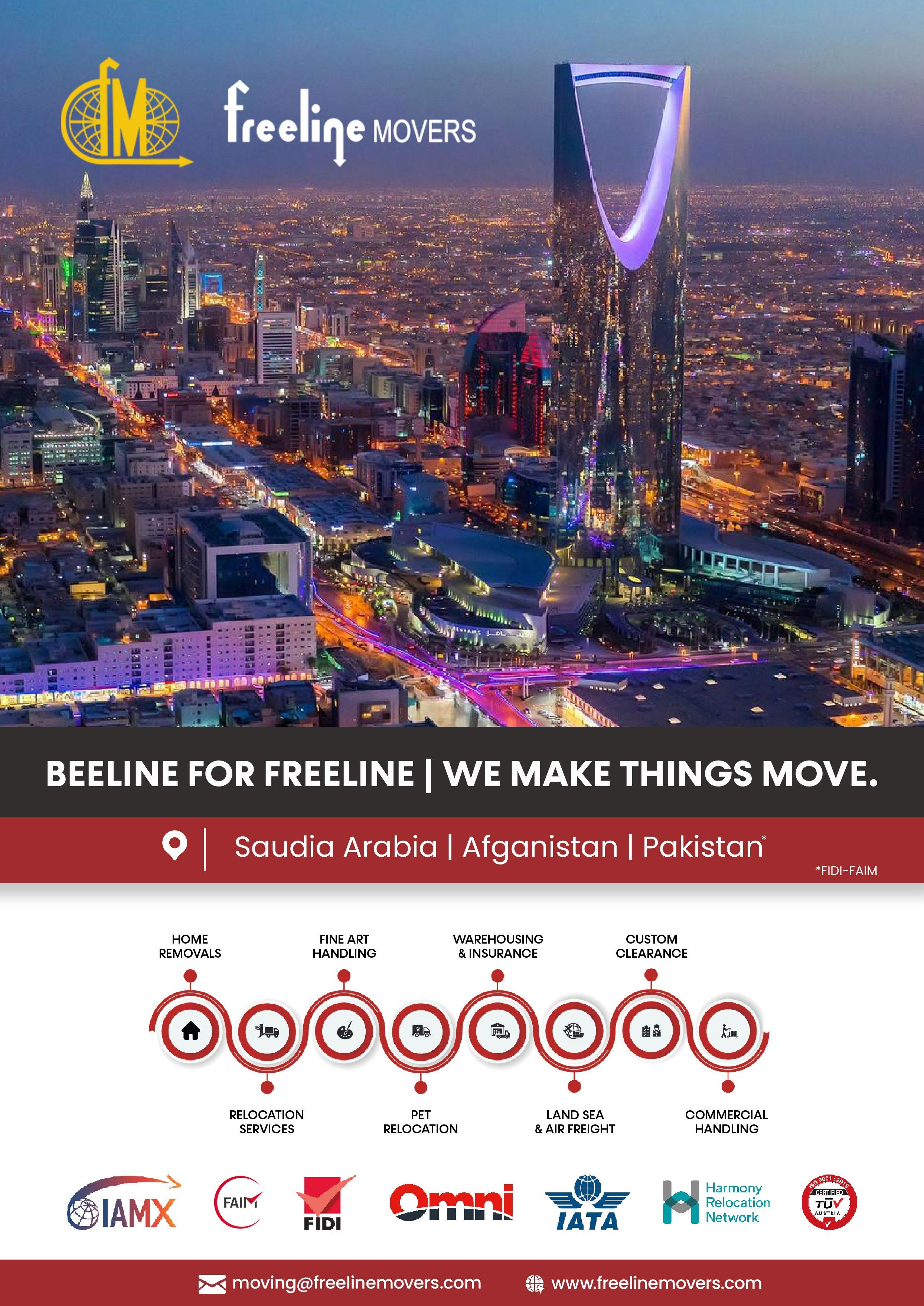
“Satisfaction with events shows that the time spent together, in person or online, continues to bring value to this community”
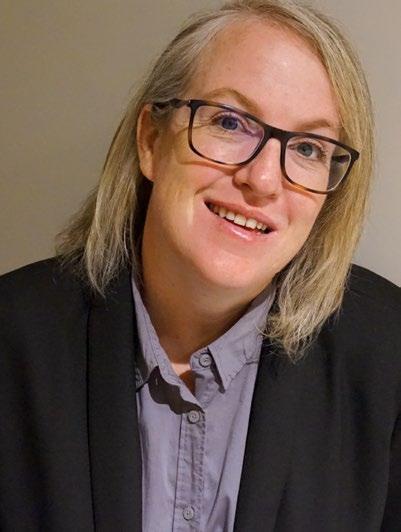

and regional Associations for their dedication and leadership. Your ongoing efforts to uphold strong governance and maintain transparent communication with members are deeply valued.
This year’s survey gave us valuable insights into how FIDI Affiliates stay connected and informed. A remarkable 77 per cent of respondents rely on FIDI’s monthly newsletter and FIDI Focus magazine, website and fortnightly News Drop bulletin to keep up with the latest news and developments in our global community. Social media also plays a strong role, with 48 per cent engaging via LinkedIn and 13 per cent through Facebook.
When it comes to communication, the feedback was positive – nearly half of respondents said they were ‘very satisfied’, and the rest reported being ‘satisfied’. That tells us we’re on the right track, and it encourages us to keep improving.
Over the past 12 months leading up to the survey, 61 per cent of participants attended the FIDI Conference, and 35 per cent joined online regional meetings. Many also took part in other key events such as FIDI Academy training sessions, 39 Club online gatherings and topical webinars, all of which were highly recommended by participants.
Satisfaction with events was strong with a 72 per cent positive rating, showing that the time spent together, in person or online, continues to bring value to this community. Thank you to everyone who took part.
Many respondents highlighted that the future of global mobility will be underpinned by technologydriven efficiencies. Through automation and service personalisation, sustainable practices and customercentric service such as real-time shipment updates, movers have the tools and knowledge to adapt and grow. Focusing on emerging markets and migration trends surely helps. Embracing these opportunities will not only secure a stable future – it also helps us to set new benchmarks for the industry.
However, there are threats, of which we need to be mindful: weaknesses including cost pressures and a ‘race to the bottom’ dynamic that jeopardises quality and innovation. Meanwhile talent shortages and market fragmentation through mergers and acquisitions are compounded by geopolitical instability and rapidly changing customer demands. Acknowledging these challenges is critical to the industry being able to tackle them head on and thrive.
If you took the time to complete the 2025 survey, our sincere thanks to you. Your contribution really is vital and appreciated, and will be instrumental in shaping the future of our network.
If you were unable to participate this year, we encourage you to do so in 2026 – your voice really matters. Our door is always open, and we welcome feedback any time of the year. So if this article gives you some food for thought, please get in touch.
By Shola Gallard, Marketing Coordinator
One of the most rewarding parts of my role –beyond digging into anonymous survey data – is revisiting the many open conversations we’ve had online and in-person, whether at conferences or during simple office visits.
These moments bring context and detail to the numbers, and they are a reminder of the vibrant community of which we are all part. One of the things we often ask is ‘what is on your FIDI wishlist?’ It’s always interesting to see the reactions. Some pause, trying to figure out whether this is a trick question. Others dive right in with thoughtful, direct suggestions for services or developments they would love to see FIDI take on. Here are some of the ideas that stood out:
l A sustainability certification programme tailored for movers: a clear sign that environmental responsibility is on everyone’s radar, and that our industry is looking for guidance and leadership in this area.
l A FIDI platform showing current industry trends: quick, accessible insights on the go that allow Affiliates to stay up to date.
l Connecting marketing teams across Affiliates: whether it’s for collaborations, news updates, exchange of best practices or regional campaigns, there’s a strong appetite for better communication and sharing.
l Bringing our ‘conference culture’ online: people love the dynamic, spontaneous conversations that happen at FIDI events.
What if we could recreate that energy and connection virtually, all year round?
l A FIDI agent rating system: this one sparks a debate. While the FAIM Standard ensures consistent baseline of quality across all affiliated companies, feedback shows that Affiliates value transparency and different perspectives on what makes a great collaboration.
l Marketing tactics and distribution targeting end customers and/or external stakeholders: there is a desire for stronger visibility of FIDI offerings and brand perception. Many Affiliates admit they don’t always get time to sift through resources available, so how can we make things more accessible and impactful?
There are many more ideas, too. Did any of these resonate with you? Maybe you have some you’d like to add? We would love to hear your thoughts: marketing@fidi.org


With preparations for the 2026 FIDI Conference well under way, we speak to long-standing sponsors about the benefits they get from supporting the annual event
By Carlos Ferri, founder and CEO
Bangkok was our first time stepping in as a sponsor; by then many of the largest FIDI companies were already trusting Shipeezi with thousands of shipments a year. To us, conference sponsorship made sense as the next step.
The FIDI Conference brings together leaders who care about doing things better, which aligns perfectly with our mission of helping movers deliver more value, visibility and control to their customers.
Sponsoring the conference allows us to show a consistent presence to the industry. It shows we’re
not going anywhere and that we’re serious about the industry and helping it grow.
Being at the event is just a part of our involvement, with some of the most valuable moments happening before the official agenda starts, and many opportunities developing after the conference has wrapped up. It’s a full experience; not just about a few days at the event.
We’ve seen clear growth in interest from FIDI companies as a result of sponsoring. It has helped us establish new connections, strengthened existing relationships, and positioned Shipeezi as a trusted partner.
We’re now working on building a better FAIM compliance checklist within our platform, so our customers can be confident their teams are meeting the high standards expected of a FIDI Affiliate.
If you believe in the industry, get involved as a sponsor – because people notice.
By Anthony Shipp, President and CEO
M Dyer Global has been sponsoring the FIDI Conference for about two years, beginning with the 2024 event in Edinburgh, Scotland.
We sponsor the FIDI Conference because Hawaii is often overlooked in the global mobility market
and, as the only FIDI-certified mover in the Hawaiian Islands, it is important for us to showcase that we are a global company operating from a unique and strategic location.
Sponsorship allows us to boost our visibility and credibility, ensuring that when the international community thinks of Hawaii, M Dyer Global is at the front of their minds. The FIDI Conference is the ideal platform to strengthen our presence, brand recognition and relationships across the network.
Through sponsorship, we support the very infrastructure that allows this community to thrive, because industry conferences depend on support. The FIDI network has offered us immense value, and we believe we have a shared responsibility to help make these events possible.
We measure our return on investment in several ways, including the increased commercial business we receive and the strength of our professional relationships. Plus the enhanced credibility within FIDI, of course. People are more willing to engage when they recognise and trust your name.
We have experienced overall growth in the volume of work from our FIDI network partners. The sponsorship has played a role in increasing engagement and trust across multiple regions, and results in measurable business momentum.
Once you begin sponsoring, consistency is key. Momentum builds over time, and staying visible year after year helps cement your place in the
network. Fellow FIDI members have approached us to commend our efforts, often saying they had never heard of us before but now recognise our brand –and this is largely due to our sponsorship visibility.
By Siddharth Mohan, co-founder
and CEO Yembo’s first FIDI conference sponsorship was in Cannes in 2022.
The FIDI Conference gives us the opportunity to connect personally with the brands that are driving the moving industry, and help innovate change in the global mobility industry.
The event allows face-to-face collaboration with executives from many countries, something that’s hard to recreate virtually. Although travelling to meet everyone in person could be cost- and timeprohibitive for some, FIDI provides a forum that gives us insights from many executives and helps us know where challenges and opportunities lie.
Having our logo on the FIDI website is a great way to showcase our brand. Access to conference attendees plays a huge role – it ensures we can reach out before the event and coordinate times to connect. Conversations continue beyond the conference, and we have many follow-up activities with the people and teams we meet.
Yembo has sourced numerous new customers from FIDI meetings. At this year’s FIDI Conference, for
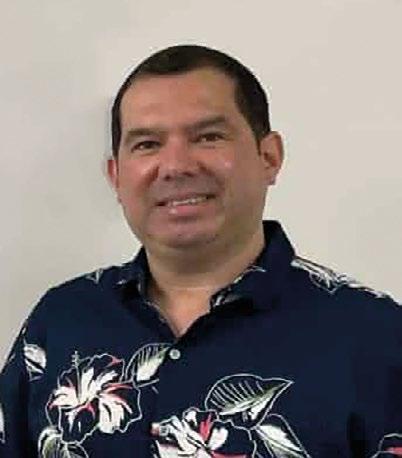
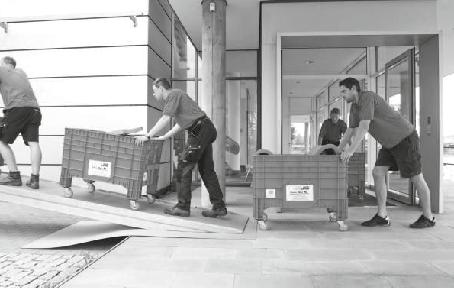
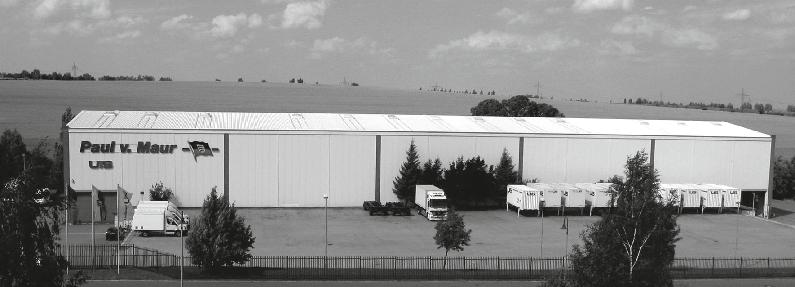
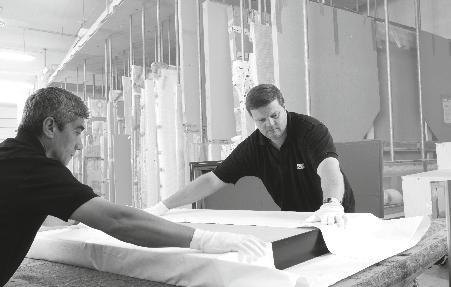

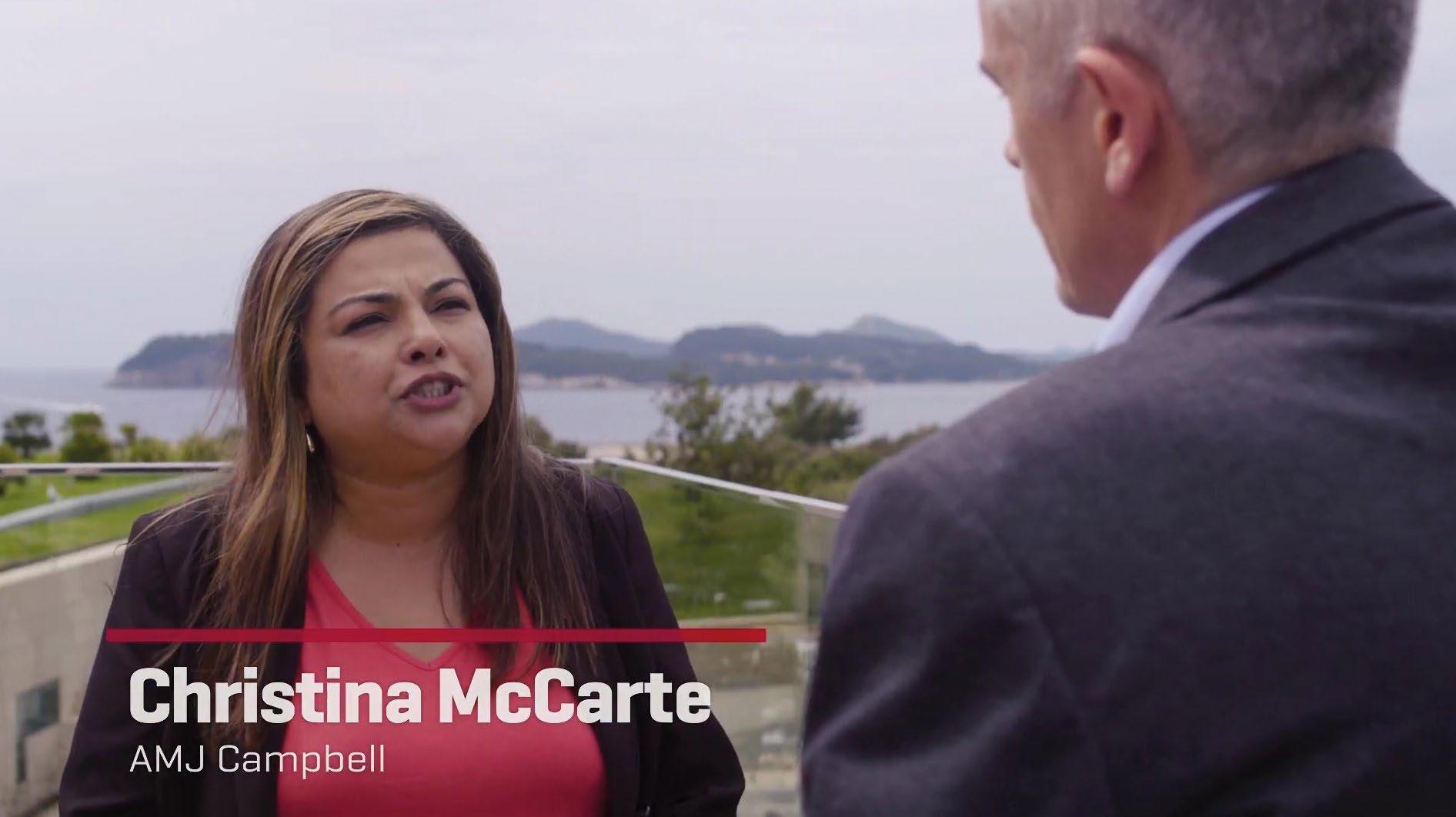

By Chris Dixon, Advertising
example, we had more than 25 targeted face-to-face conversations with prospects for our AI products and have already signed three new customers in the middle of peak season. We have several more in the pipeline who are waiting until after this busy period.
Our customers really appreciate the opportunity to meet in person and give us feedback we can use to improve the product. We had one customer who had a challenging time dealing with multiple languages, and we didn’t really understand the scope of this problem until we met them in person.
and
Sponsorship,
FIDI Focus and FIDI Conference I’m still relatively new to all this FIDI Conference stuff, but I can happily say that I’ve been to one now – and what a truly amazing event it was! One thing in particular grabbed me right away: a closeness and warm familiarity. The sort of family feeling that you might get at Christmas or a wedding celebration, but without the weird uncle.
Now, I’m just a humble salesman from Suffolk, England, but even I could see there’s something special happening when the FIDI family gathers. It’s not just business cards and handshakes, it’s genuine conversations, shared laughter and those little moments where you realise you’re talking to someone from the other side of the world, who faces the same challenges you do.
That’s why I believe supporting the FIDI Conference isn’t just another so-called ‘marketing opportunity’, it’s an investment in your community. Sponsorship gives you visibility, yes, but it also says: ‘I’m part of this and I believe in it’. Your logo might be on a banner somewhere, or on a napkin, or even on a pair of chopsticks (if I get my way), but more importantly, your presence is felt, appreciated and remembered.
So, if you’ve ever thought about getting more involved with FIDI, this is the time to shine. Step in, be seen, and be part of something truly global, connected and unmissable.See you in Osaka!
Contact Chris Dixon at sales@fidifocus.org
As a result of our conversations in Dubrovnik, we prioritised this work and shipped it as a software update before the conference concluded. They were super appreciative that we resolved the issue.
The one piece of advice I would give to anyone considering sponsoring the FIDI Conference is just do it! I wish we had sponsored it earlier. And, in addition to the conference itself, make sure you also focus on both the pre-conference reach out and post-conference follow ups.
By Christina McCarte, Director, AMJ
Around 600 delegates from the international moving industry, including business owners, their partners, and customers, attend the annual FIDI Conference.
For AMJ, sponsoring this event delivers one of the highest returns on our promotional investment.
For a few days – whether in France, Thailand, Scotland, Croatia, or other international destinations – the conference gives us the opportunity to reconnect with existing contacts, make new connections, and lay the groundwork for a successful year ahead of us.
The pre- and post-event buzz on social media, thought-leadership content as part of our involvement in the FIDI Focus Fringe sessions, and articles in FIDI Focus magazine have all helped boost the benefits of our involvement further.
Over the four years we have been involved in the FIDI Conference, the response to our sponsorship activity by our partners and customers has been fantastic. I, and the AMJ team, look forward to another unforgettable experience supporting the 2026 FIDI Conference in Japan.
10-13 May




With traditional online searches being usurped by AI replacements and digital visibility now happening ‘everywhere’, SEO specialist Pablo Regner, Sales Manager at Universal Cargo Argentina, explores how companies can keep their profile high
For years, talking about SEO meant talking about Google. It was a sacred ritual: research keywords, optimise your page, cross your fingers and wait for the rankings to bless you.
But user behaviour has changed – and so has the way people search. A recent study by Ubersuggest founder Neil Patel showed traffic from traditional search engines has dropped by up to 15 per cent in some industries. Experts point to one big factor: artificial intelligence (AI) replacing traditional search. As Mario Nawfal, founder of International Blockchain Consulting Group, put it: ‘People are tired of wading through SEO swamps and ads disguised as answers.’
Google’s take on this? It’s not anti-AI, but it has redrawn the line for what counts as ‘low quality’ content. If it shows ‘little or no effort’, ‘little or no originality’ or ‘adds no value’, it’s getting pushed to the back of the line. Generic AI fluff won’t cut it.
Time to hit refresh.
Today, your audience isn’t just Googling you. It is asking Siri, watching TikToks, scrolling Instagram, reading reviews on Google Maps, and texting their cousin’s neighbour for ‘someone who does moves’. Searching doesn’t happen in one place any more – it happens everywhere. So, the question shouldn’t be ‘Am I ranking first on Google?’; it’s more meaningful to ask ‘Am I visible, trustworthy, and clear wherever my customer looks for me?’
For service companies, the challenge is even bigger: you’re providing information, and you are building trust – even if the answer comes indirectly, through a post, a map pin or a comment in a group chat. People don’t just want to know you exist; they want to feel they can count on you, even if they don’t remember how they found you.
Each platform’s role in the new SEO game
Every platform has its own personality and, if you know how to speak their language, your brand shows up in the right place, at the right time, with the right message. Consider these descriptions: Google and your website. The daddy of the group. Reliable, khaki-wearing. This is where you drop your how-to guides, landing pages, forms. It builds trust and converts – but it’s a long-term game, not a sprint.
YouTube: The older sibling who explains everything.
Tutorials, testimonials, behind-the-scenes of your logistics process. A good YouTube video showcasing your work offers the best cost-benefit ratio for brand awareness and closing sales.
Instagram: The stylish cousin who’s always camera-ready. Reels, delivery pics, behind-thescenes stories. You’re building emotional connection and brand vibes here.
LinkedIn: The polished uncle in a suit. This is your B2B power move. Post achievements, process updates, compliance wins. Say: ‘We don’t just move boxes – we move the industry.’
TikTok: The wild younger brother. 15 seconds, a clever tip – and boom! Viral potential. Think funny logistics facts or packing hacks. Make the algorithm fall in love.
Facebook: The family group chat. Team pics, shareable posts, customer shoutouts. Communitybased and still effective.
Google Maps and business profile: Your digital ID. Reviews, team photos, location shots. First impressions happen here – and fast.
WhatsApp, email and chat: Your go-to squad for direct contact. Quick, clear, personal. It’s how customers know they’re taken care of.
X (formerly Twitter): The outspoken friend in the middle of every debate. Share insights, react to news, show thought leadership. We’d invite them to the party – just seat them next to Grandma.
Do I need to be on all these platforms? No, but you do need a strategy:
l Know each platform. TikTok isn’t LinkedIn, so don’t mix the two.
l Understand your buyer. Who is your ideal customer? Where do they search?
l Set goals. Without them, you’re just posting into the void.
l Tailor your content. Copy-pasting across platforms doesn’t work. It’s like giving a formal speech at a barbecue: awkward.
l Measure. Use tools such as Google Analytics, Search Console, Ahrefs or Screaming Frog to know what’s working.
The future doesn’t knock. It finds you. Adapting is about survival. Show up where people are looking, speak their language (emojis included) and don’t sound like a robot.
If you don’t evolve in this new world, you risk being forgotten at the bottom of the algorithm.

“Copypasting across platforms doesn’t work. It’s like giving a formal speech at a barbecue: awkward”

Lindsay and Zach Rattner spoke to FIDI Focus Editor Dominic Weaver about how their partnership brought together moving and technology – helping inspire the formation of virtual survey business Yembo
“Zach and I married and he got the inside scoop about a busy season at a moving company”
While much innovation begins in the boardroom or company brainstorming sessions, virtual moving survey platform Yembo has its roots in a relationship.
Lindsay and Zach Rattner were dating out of college and, having completed an internship with the State Transportation department, where she worked with several FIDI-accredited movers, Lindsay took a job with Hilldrup in 2011. The company sent her on the FIDI Academy’s EiM training and to the FIDI Conference in Boston the following year. ‘This really opened my eyes to how interesting and vibrant the moving industry is,’ says Lindsay. ‘I got to meet people from all over the world.’
Zach, meanwhile, was working on mobile phone technology for Qualcomm in California, and Lindsay eventually agreed with her employers that she could join him there and continue working for the company remotely. ‘Zach and I married, and Zach got the real inside scoop about what it’s like to do a busy season at a moving company,’ she says. ‘We lived in a pretty small apartment, and my phone would start ringing with client calls at 5 or 6am, so he got a really good introduction and understanding of the industry.’
In 2015, Zach was headhunted for an innovation role and was sent to an industry AI conference where
he heard a talk by Ilya Sutskever, one of the founders of OpenAI. ‘I remember coming home from the conference and my head was spinning,’ he says. ‘I walked in the door and Lindsay told me about some problem at work –something like a 20ft container had been sent instead of a 40ft one because the shipper didn’t mention they had a basement or similar.
‘I felt we were living in two worlds; one where computers had become better than humans at identifying objects and images and doing these crazily advanced tasks and the other where you have these cream of the crop firms having these issues – not for the lack of trying, it was just really logistically complicated.’
A few weeks later when the couple were buying their first house, they were helped by an estate agent who was also running a small local mover business. ‘Lindsay was talking to him about his work, and it blew my mind,’ says Zach. ‘He had the same problems as a large mover: back-office logistics, the need for accurate inventories, being labour intensive, and getting the right carton counts. The more I learned, the more I realised this process is pivotal to a successful move on the survey side and that computers could help with the workflows.’
Zach resigned from his job six months later, along with his co-founder Siddharth Mohan, to set up Yembo. They developed their first video-collection platform, giving it to a local mover for free to test the technology and customers’ willingness to use it in return for the data that helped train the AI. It was a success, with the company reporting carrying out around two and a half times as many surveys in a typical day. ‘This was well beyond what we were expecting,’ says Zach.
There then followed a five-year period of perfecting the AI – getting it to recognise unusually shaped items – to ensure it could cope with the uniqueness of every property, and focusing on its use to speed up the inventory process to save time and increase capacity, rather than replacing salespeople.
‘It’s a great accelerator, cutting the drudgery out of tasks like working out how many cartons are needed to pack your basement,’ says Zach. ‘Building a rapport with the customer is still uniquely human and we want to enable more of that’. The pandemic, meanwhile, turbocharged the acceptance of digital surveys and the company’s growth continued.
Yembo now has users worldwide and hit the 1,000+ daily inspections mark in mid 2025. To celebrate the milestone, Zach and Lindsay returned to the FIDI Conference this year. Lindsay – who now works in another industry – calls this ‘a full-circle moment’. ‘I attended my first FIDI Conference at the age of 23,’ she says. ‘It was great to see Jesse (van Sas, FIDI Secretary General) again, who was my Academy trainer, too.’
Zach, of course, was able to meet existing and new Yembo customers at the event, reflect on how far the business has come in under a decade, and the part that the coming together of moving and technological knowhow has played in the company’s success.
‘If I hadn’t been coming home and seeing Lindsay working in moving and getting that insight into what works and what doesn’t, I really think we wouldn’t have a Yembo,’ he says. ‘But it’s not a side hustle any more, it’s grown far beyond anything we could have expected.’

New Irish Affiliate Just Move was founded on the principle of putting customers at the heart of everything it does. Managing Director Wayne Bracken tells us why this approach has set the standards that prepared it for FIDI membership, and underpins its growth and success

In the relocations industry, trust is everything. Whether someone is moving their family into a new home or a business is relocating offices, they’re entrusting someone with their lives, memories and peace of mind. It’s a responsibility I take very seriously.
I founded Just Move in the belief that our biggest competitive advantage comes from our ability to genuinely care about the people we serve. The decision to lead with a customer-first mindset has played a major role in how we’ve grown the business.
Each client – a single parent moving across town or a multinational company shifting headquarters – comes with unique circumstances and expectations. To me, being customer-centric is about understanding the emotional weight of moving and offering a service that reassures as much as it delivers. It’s helped us earn the kind of trust that creates long-term relationships.
One of the proudest markers in our journey so far has been becoming an official member of FIDI; it highlights our commitment to the highest standards in the industry. It means Just Move has been independently audited and recognised for delivering exceptional service, compliance and operational excellence.
Most importantly, it connects us to a trusted international network, allowing us to offer our customers confidence and consistency, no matter to where in the world they’re moving. It’s another reflection of our dedication to our customers and underscores everything we believe in – professionalism, transparency and customer care.

1. Customer loyalty
When we put people first, they come back. Many clients have used us multiple times, while even more have referred us to friends, colleagues or family. We’ve grown through word of mouth referrals and repeat business, which speaks louder than any marketing campaign.
2. Responsive and relevant services
By really listening to customer feedback insights, we’ve launched services that directly address the needs we hear about most. These include: weekend and afterhours moves for families and professionals; storage solutions for people in between properties; eco-friendly packaging for sustainability-conscious clients; and business continuity plans for corporate relocations.
3. A motivated, customer-focused team
I’ve focused on building a team that genuinely shares our values. Everyone at Just Move – from movers to operations to admin – knows they are, ultimately, supporting people through major life changes.
We regularly celebrate feedback together and treat challenges as learning opportunities. This culture of ownership, empathy and pride makes all the difference when it comes to delivering a five-star experience.
4. Attracting opportunities
Our focus on customer care has helped us grow our reputation. We’re now the preferred partner for several developers, letting agents and commercial clients.
l Listen before you assume. The answers are usually already there – you just have to hear them.
l Small actions build big trust. This could be as simple as returning a call quickly. Clients will remember it.
l People drive the experience. Systems help, but culture and attitude are really what deliver excellence.
l Authenticity is everything. You can’t fake care. If you don’t mean it, your clients will see through it.
We’re in the business of helping people through transitions – and, as I look ahead, that won’t change. We’ll continue to listen, adapt and lead with care, because I’ve seen first hand that, when you put the customer first, everything else follows.

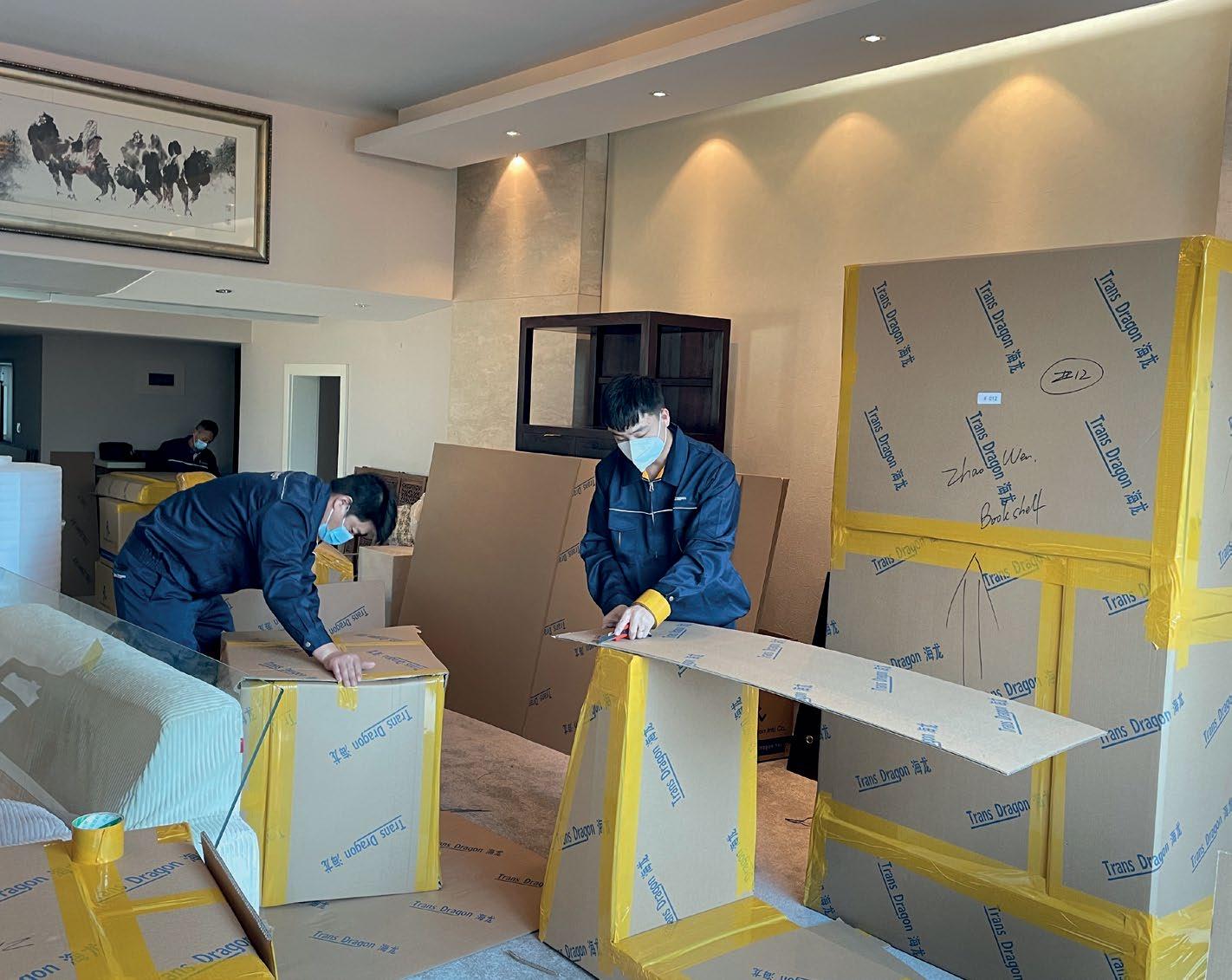
to focus on international agent relations and building locally booked business.
‘Most corporate work in China is booked overseas, primarily in the US and Europe, and is managed by global relocation companies or the larger movers,’ he says. ‘Our domestic own-booked work falls into three main categories: diplomatic; emigrating Chinese; and corporate clients with a monetary allowance.’

Holding the main Volkswagen contract for China makes Germany a large route for the company, Willis adds. ‘While we only handle this on a door-to-port basis, there are many other German companies that have expats in China,’ he says, ‘And the US, Australia and Canada are key locations for emigrating Chinese families.’
‘Like most other markets, we have seen a decrease in the number and size of moves over the past 10 years and, accordingly, have had to adapt,’ says Willis. The firm has a clear strategy for this, too.
From a logistics firm owned by the Chinese state, Trans Dragon now thrives providing a full service to clients. Director of International Services Scott Willis tells us about the company’s plans to expand within China and beyond – and why FIDI is a core part of the journey

Trans Dragon was founded in 1984 as a Chinese state-owned enterprise providing freight forwarding, customs brokerage and import/ export services. In 1999, the Beijing Customs office established its centre for clearance of noncommercial goods – and Trans Dragon was tasked with managing the facility.
As one of only a few companies legally allowed to pack and clear non-commercial goods in Beijing, Trans Dragon became the main subcontractor for packing, transport and customs clearance services for most of the international moving companies that had representative offices in the city.
The company was divested by the Chinese government in 2004 and taken on by new owners. China had experienced huge growth in the household goods and personal effects market, which began to slow in the mid-2010s, so the business moved away from subcontracting to give it more control of its own business development.
The company’s Director of International Services, Scott Willis, says: ‘Having worked for some of the top moving companies in the world for the best part of two decades, the company now had the experience and expertise to become a full-service moving company in its own right. To achieve this, the household goods department was separated from the wider company and Trans Dragon International was established.’
Willis was brought in as a partner in the company
Trans Dragon International has always served the whole of China from its offices in Beijing, Shanghai, Tianjin and Shenzhen, and it is now looking at expanding the business in southern China.
‘We have seen more interest in the so-called “Bay Area” that covers Guangzhou, Shenzhen, Dongguan and some other nearby cities – as well as Hong Kong – and will look to take advantage of those opportunities with a new team down there,’ Willis says.
There is plenty of potential further afield, too, he adds. ‘Chinese corporations are expanding overseas at a rate of knots, so this will be the big opportunity in the coming years. At this stage, Chinese-owned companies tend not to include removals services in their relocation packages, but we are hoping that this will change as their global mobility policies develop.
‘Trans Dragon International is now the largest mover of household goods and personal effects in Beijing and the north of China. From these locations, and with a network of local partners, Trans Dragon International serves all of Mainland China.’
The partners at Trans Dragon International see joining FIDI as the culmination of a 10-year process of development, from providing subcontracting services to becoming a leading international mover in terms of quality of service and volume of work.
‘We were always rated very highly by the firms that contracted us and now it is important for us to have the recognition that we have become a leading mover in our own right,’ says Willis.
Having received its FAIM accreditation, Trans Dragon is busy preparing for the FIDI Conference in Osaka, Japan. ‘We want to make a splash in Osaka, to introduce ourselves to those companies who have not had the opportunity to work with us before.’
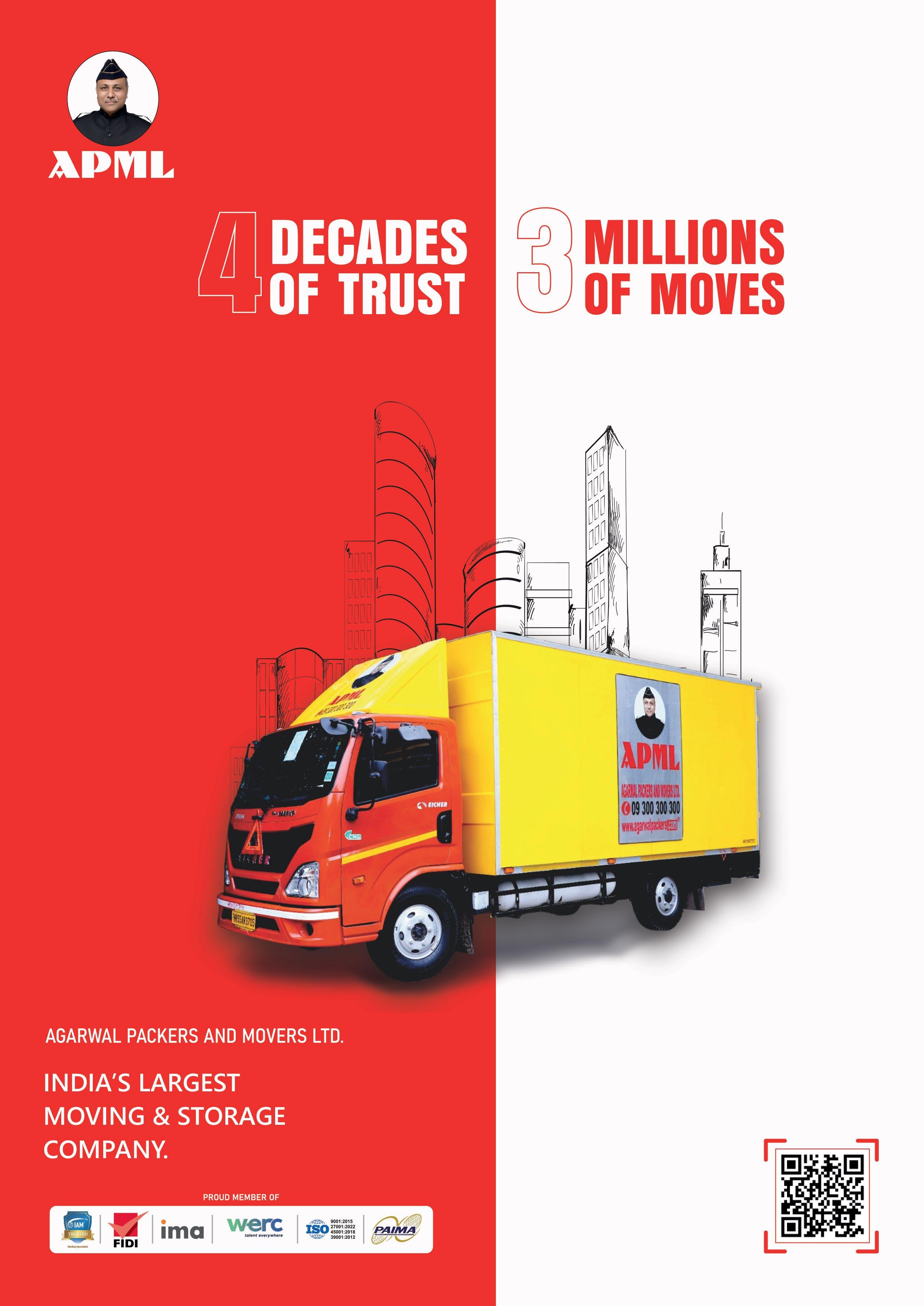
Gosselin has announced that its UK regional manager will be leaving the company at the end of August.
Iain Adams, who has been with the business since 2019, will be taking on a new professional opportunity later in the year.
‘Iain has played a key role in the successful integration of DT Moving into the Gosselin network and has been instrumental in expanding our operations in both the UK and France. His leadership and industry expertise have been highly valued across the organisation,’ said a company release. ‘We are grateful for his dedication, professionalism, and the positive impact he has had on our organisation and wish him continued success in his next chapter.’
Jason Herbert will take on responsibility for the Gosselin UK team.


Nuss Removals in Australia has announced the promotion of Sherman Pereira to General Manager.
With 35 years of local and international experience in removals, storage, and relocation services, Pereira most recently served as the company’s branch manager at Nuss Removals in Sydney. In this role, he was responsible for overseeing national
operations, driving efficiency, and leading strategic development.
‘With hands-on leadership experience in large-scale removals, relocation management, operations and business development across Australia, Russia, South Africa, and Europe, Sherman’s global expertise and strategic insights are invaluable assets to the company,’ said a company statement. ‘He has consistently worked closely with and developed teams at all levels, maintaining a strong focus on customer satisfaction, operational excellence, and exceeding performance targets.’

Emma Fisher has been promoted to General Manager at Santa Fe UK.
‘Having been at Santa Fe Relocation for 24 years, I am
thankful to my incredible team, mentors, and leaders who’ve supported and challenged me along the way,’ she said. ‘It’s been an amazing experience growing within Santa Fe and I’m excited for this next chapter –new responsibilities, new opportunities, and continued growth.’
Bill Lloyd, Managing Director of Asian Tigers Indonesia, recently agreed terms for a management buyout of Asian Tigers Indonesia from current majority shareholder Gerry Lane. The pair are working towards a complete buyout through vendor-financing, involving adjusted equity over time, with the target of completing the deal by 2030.
Note: This is a clarification of the information contained in our story on Bill Lloyd in the last issue of FIDI Focus (no. 318).
Eurogroup has announced the appointment of Jordan Neave as its Head of Global Moving Services. He will be responsible for expanding the global footprint in the private international and European moving market and developing trade services alongside the company’s Partner Relations and Development Manager, Simone Percy. Neave was born into a movingindustry family. His uncle, Richard Neave, founded Britannia Neaves, and both his parents have long careers in the industry. Relocation was part of daily life, with time spent in and around depots, trucks and offices from an early age.
His career began as a porter at Abels Moving Services, before he moved into a sales role. He joined Crown Relocations and worked in Dubai and Doha before returning to Abels in the UK. He progressed to senior consultant and then to the role of International Sales and Development Manager.


Thomas Coupat has taken the position of Managing Director

The family of former FIDI President Bryan Bennett has announced his death at the age of 97. He leaves his wife, Gudrun, four children, Richard, Roberta, Nicole and Mark, 10 grandchildren and 11 great-grandchildren.
Bryan served on the FIDI Board and was President from 1980 to 1981. After his term ended, he continued to serve on the FIDI Consultative Committee, ultimately as its chair.
Born in Wales, Bryan lived in Malaya, Singapore and the Caribbean, before eventually settling in Canada. He founded Movers International, which became TheMIGroup before being incorporated into Weichert Workforce Mobility. Bryan continued to attend industry conferences into his 80s.
Posting on LinkedIn, Bryan’s son Mark said: ‘He cared immensely for the people he worked with and all employees of TheMIGroup, and worked hard to create a culture of involvement and ownership, and was immensely proud of the company and its people.’
Jean-Michel Piriou, FIDI President 1978-79, said: ‘Bryan was a real leader in this industry, one of those who renewed the concept of FIDI at a time when the organisation was declining.
‘He was a gentleman and we had a great relationship, personally and professionally. He was also very precise and concise in his formulations: I have never met someone as able to find compromise and resolve an issue using the minimum of words.’
Writing on the occasion of Bryan’s retirement in 2018, Tom Ansley, FIDI President 1996-97, said: ‘A meeting between Bryan and me in the latter part of the 1990s had a huge and decisive impact on FIDI, when we concluded that FIDI and the international industry was missing an independently audited quality accreditation system… guaranteeing the holder of such accreditation an authentic mark of quality recognised universally. Bryan worked tirelessly and so diligently on this.’
Jean Pierre, FIDI President 1986-87, said: ‘Bryan was an exceptional man, highly driven in everything he did or undertook; our dealings were particularly inspired by our involvement in FIDI, where we both sought to professionalise the profession.
‘The FIDI School (now the FIDI Academy) was the first step towards

As FIDI Focus went to press, it was announced that Michael Scott, former Executive Director of FIDI and one of the founding forces behind today’s FIDI Academy, had died.
‘Michael’s quiet leadership and boundless passion helped transform the FIDI Academy into a pillar of learning and connection. His vision and generosity have left a lasting mark on our community, and will continue to guide us,’ said Jesse van Sas, Secretary General of FIDI.
There will be a full obituary for Michael in the next issue of FIDI Focus (December 2025-February 2026).

familiarising moving company employees with the process of international transfers, Bryan initiated a programme to standardise procedures and document flow – and FAIM was born. Bryan inspired this project, and his unwavering critical spirit propelled it to the level where any company aspiring to become an Affiliate had to pass FAIM.
‘His drive is reflected in the development of his own company, which grew into a multi-branch organisation in Canada and the US in just a few years, with a dedicated management team at its helm. This commanded admiration from the FIDI membership, and especially from international clients who entrusted the company with their employee moves.
‘I’m grateful to Bryan for bringing me onto the FIDI Board during the congress in Rome in 1981, so I had the privilege of working with him on the Board for several years.’
Ernst Jörg, FIDI President 2002-03, said: ‘When I joined FIDI in 1998, Bryan was Chair of the Consultative Committee, which was an integral part of the Board until it ceased to exist in that format three or four years later.
‘I remember Bryan as a very charismatic and dominant person, who had his own strong ideas.
‘Bryan’s physical fitness was important to him - as was golf. During Board meetings, he made it a rule to always walk from the Sheraton Hotel in Brussels to the FIDI office. He also felt that, if the Board members were giving their time to FIDI, they were at least entitled to good food and wine during the Board meetings.’
Current FIDI President Cédric Castro added: ‘Being on the FIDI Board –and especially serving as President – is a commitment to our collective future. Bryan embodied that spirit fully. He believed in what FIDI stood for, and he played a key role in building the foundations we stand on today.
‘On behalf of the FIDI Board, staff and the entire FIDI Global Alliance, we extend our heartfelt condolences to the Bennett family, his friends, and the many colleagues whose lives he touched.’
Colin Quarrington, former FIDI PR, said: ‘I am very sad to hear about Bryan. Hugely intelligent, endlessly friendly and charming, full of life and very patient with even dim types like me.
‘About 10 years ago, I was quietly reading the paper in a country hotel when a voice said: “Are you Colin Quarrington?” It was Gudrun. She and Bryan had stopped for the night on their way to see friends. By the merest chance, I had decided to look respectable that morning, putting on a clean shirt and pressed trousers – and when Bryan turned up too, I was glad that I had. Bryan somehow made you feel you should be as neatly dressed as he always was.’.
A statement from FIDI said: ‘We join the global moving and relocation community in remembering a pioneer of our industry, and a cherished member of the FIDI family.’


Santa Fe has announced the death of Maxime Wilson, Regional Managing Director for the UK, Germany and Switzerland.
‘Maxime passed away peacefully after a courageous and private two-year battle with cancer,’ said a company statement. ‘He was a deeply respected member of the Santa Fe Relocation team –admired for his calm presence, unwavering integrity and generous spirit. His loss will be felt across the business and by all who had the privilege to know him.’
Maxime joined Santa Fe Relocation as Business Controller for Europe in early 2016, leading mergers and acquisitions across Europe and the US, restructuring and shared service centre transitions, and focusing on cash optimisation and business planning.
He became Head of Finance for the UK and France in 2017, overseeing budgeting, forecasting and operational restructuring; he had a key board role for a company joint venture.
Maxime took on the role of Chief Financial Officer for the B2C division between 2019 and 2020, working closely with the group CEO to reshape the business. He was instrumental in consolidating operations into five regional hubs and advancing the company’s digital marketing and CRM strategy.
In December 2018, Maxime was appointed Managing Director for the UK, becoming Regional Managing Director for the UK, Germany and Switzerland in June 2020. In this role, he joined the group leadership and
The Planes Companies announced on 1 August the death of its CEO, John (Johnny) J Planes. Johnny started working in the business – set up by his grandfather in 1921 – in the late 1960s, alongside his father, John Planes Sr. In 1979, at age 31, he became the youngest person ever to serve on the Van Owners and Warehousemen’s Association Board of Directors.
In the 1980s and 1990s, Johnny guided the company through a period of strategic expansion, becoming an agent for United Van Lines in 1981. He was later appointed to the UniGroup Board of Directors, on which he served for more than 20 years. During this period, Planes Companies expanded throughout the Midwest of America, establishing new operating facilities in Columbus, Dayton, Indianapolis and Chicago.
Johnny led the company’s diversification strategy, reaching beyond household goods relocations into the commercial, logistics and project management sectors. His innovative and forward-thinking mind paved the way for the launch of workplace and facilities management company Global Workplace Solutions, LLC.
Johnny’s accolades include the United Excellence/Gene Anderson Award from United Van Lines in 2011 and recognition as an honouree of the Everest Award in 2013. He served as a trustee of the Cincinnati Van Owners and Warehousemen’s Association.
‘The Planes Companies and the greater Cincinnati business community honour the life and legacy of John J Planes, a visionary leader whose contributions helped shape the modern moving and logistics industry,’ said the company. ‘With nearly six decades of service to the Planes Companies, John was not only a steward of growth and innovation, but also a man of unwavering character, humility and purpose. More than a businessman, Johnny was a man of deep
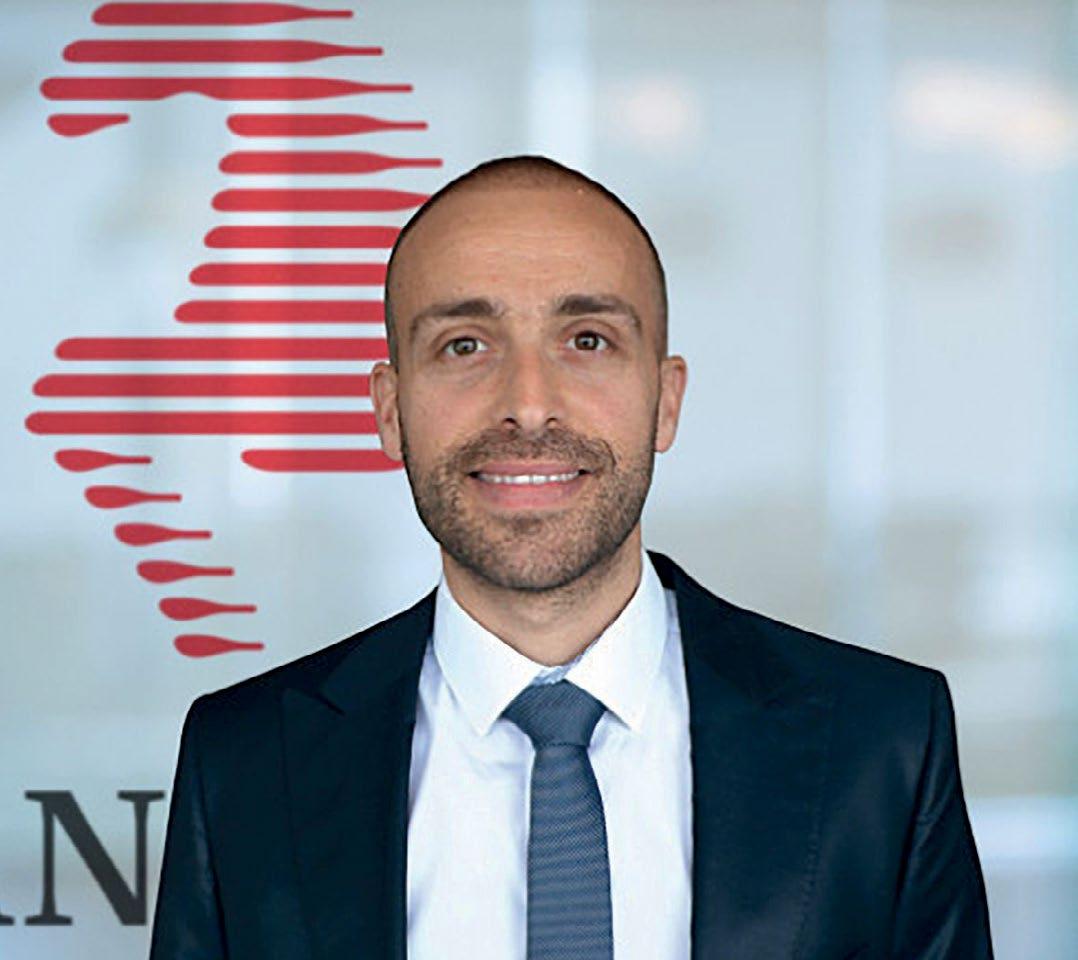
executive teams, serving as executive sponsor for key strategic customers.
‘Maxime’s leadership was marked by clarity, courage and a deep belief in people,’ the company said. ‘He had a remarkable ability to recognise potential, champion growth and take genuine pride in seeing others succeed. Many careers were shaped by his support and belief.
‘Our thoughts are with Maxime’s family and loved ones. This is a difficult moment for many of us. Maxime made a lasting impression on everyone who worked with him. His decency, thoughtfulness, humanity and brilliant sense of humour will not be forgotten.’
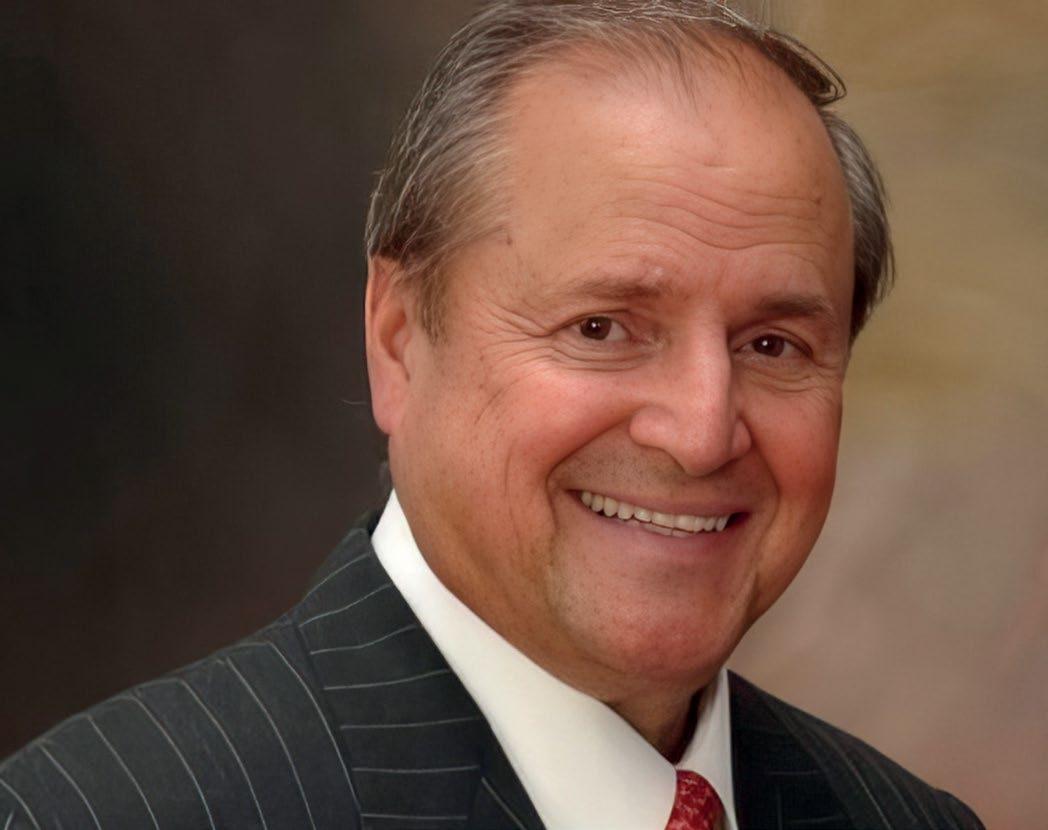
character. He was team-orientated, people-focused and family-first. His colleagues describe him as someone who led with heart, never asked more than he was willing to give, and saw every accomplishment as a shared victory with his team.’
John Sabatalo, company President, said: ‘I cherished coming to the office every day because I got to enjoy Johnny’s friendship and partnership. He had a passion and energy that filled every room, an infectious laugh, and a sense of humour that carried us through even the toughest circumstances. If I couldn’t find him in his office, I knew he was out connecting with our team – genuinely interested in their lives, their families and their goals. There was nowhere he would rather be than here, with his team, serving our customers. Johnny was a man of the people, and his legacy will live on in the culture he helped build.’


Globalink recently managed the logistical challenges involved in moving Trishka – a 22-year-old brown bear rescued from captivity in Karaganda, Kazakhstan – to a sanctuary in Belgium.
Trishka had spent her entire life in a small cage behind a private home after losing her mother to poachers as
a cub. She was saved by Dutch NGO Bears in Mind, which stepped in to offer a new life in Europe.
‘Globalink was honoured to be part of this mission,’ said Corporate Marketing Manager Danara Zharbolova. ‘We arranged Trishka’s safe journey from Karaganda to Astana by road, coordinated closely with veterinary and customs authorities, and ensured all regulatory and transport requirements were met –including the handling and clearance of the specialised metal crate provided by ZooLogistics in the Netherlands.’ The operation also involved temperature-controlled transport to keep Trishka cool en route.
Trishka has arrived safely in Europe and, after a period of quarantine she will take her first steps into an open enclosure.
Bear hugs all round.
UK Affiliates John Mason International and Bournes Relocation Solutions stepped in to help when hundreds of tower block residents in Kirby, Liverpool, had to leave their homes suddenly because of fire safety concerns.
In the absence of an official relocation plan and with no working lifts in the building, the two companies helped people move their heavy possessions out of the two affected buildings.
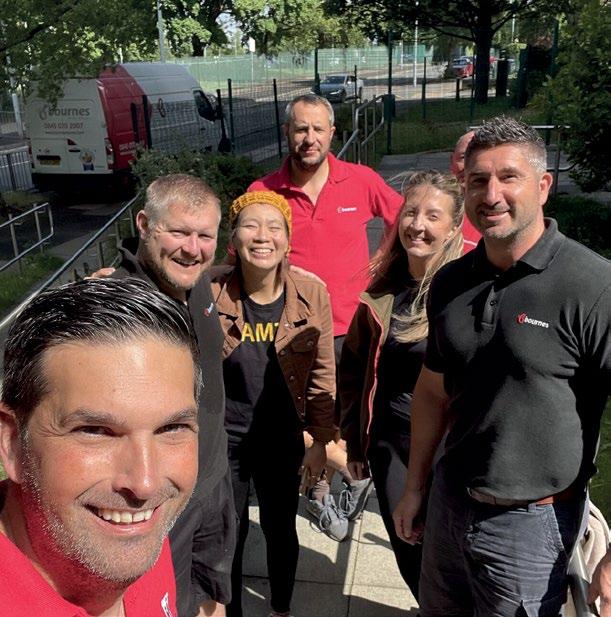
John Mason International’s Simon Hood said: ‘We were carrying washing machines down 10 flights of stairs, removing TVs from walls, shifting wardrobes, and boxes full of memories. When people are told to leave their homes with no warning, no lift, and no support, there’s no time for committees or excuses. You just get moving.
‘While this story includes boxes, bubble wrap and stairs, it’s not about stuff; it’s about humanity, community and dignity. And it’s how, when systems fall short, people show up,’ added Bournes.

Sobolak stepped in to help Austrian firefighters move essential hose washing machinery. It travelled from Hamburg using a German forwarding agent to the Sobolak warehouse in Vienna, then onto a fire service truck. The company’s Alexander Prohaska said: ‘We had the opportunity to assist the fire department with a special transport: using one of our large forklifts – escorted through the streets with blue lights – we helped move and unload a hose washing machine. We are glad to support those who – in different circumstances –always support us.’
Pickfords partnered with African wildlife conservation charity Tusk to deliver public art installation The Turtle Trail to several London locations this summer.
As appointed logistics provider for the project, Pickfords coordinated the collection and delivery of more than 16 turtle sculptures, each designed by artists and celebrities including Rolling Stones guitarist Ronnie Wood, and UK Dragons’ Den investors Deborah Meaden and Steven Bartlett. The sculptures are part of Tusk’s latest initiative to raise awareness and funds for endangered marine species, which this year focuses on sea turtles.
Pickfords oversaw the complex logistics operation from start to finish, delivering blank sculptures to artists’ studios across the country and installing the completed turtles at sites around London.







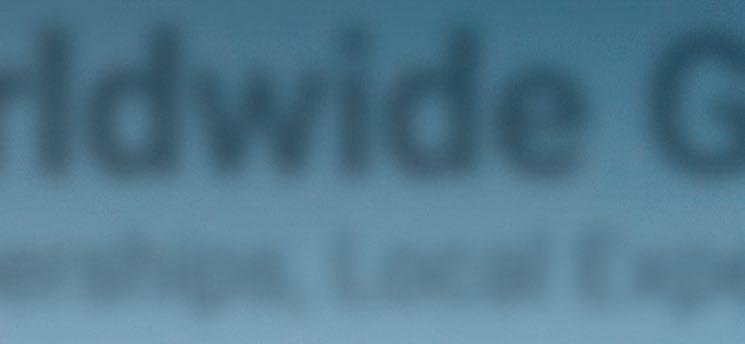









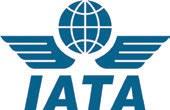
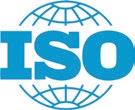





No two moves are alike. They are as unique as the people moving, each with their own reasons, destinations and unique personalities. People move for personal or professional reasons, but here at Gosselin, moving means more than just relocating people and their belongings. We support you throughout the entire process, with care, confidence, and dedication. We cater to your needs and adapt to your world, down to the smallest details.
www.gosselin-moving.com